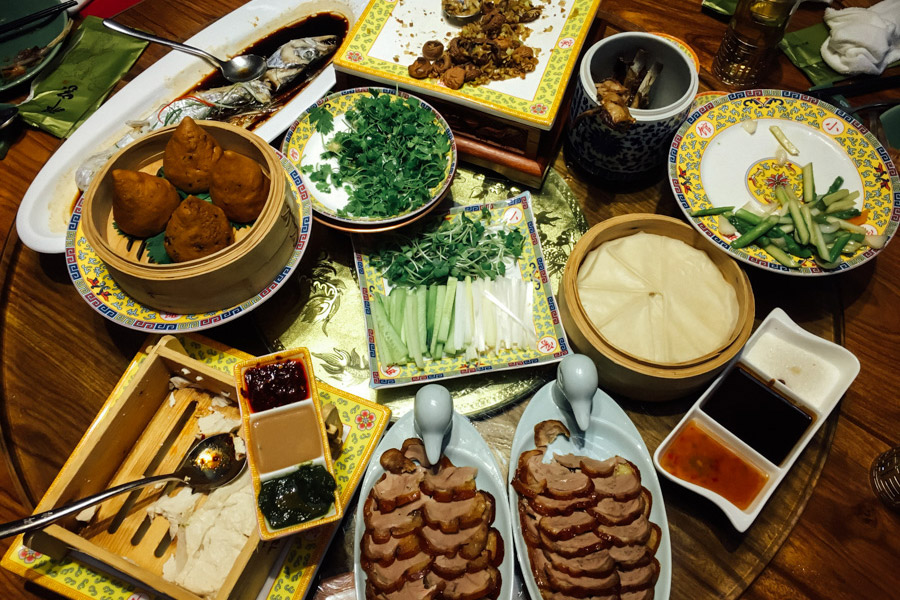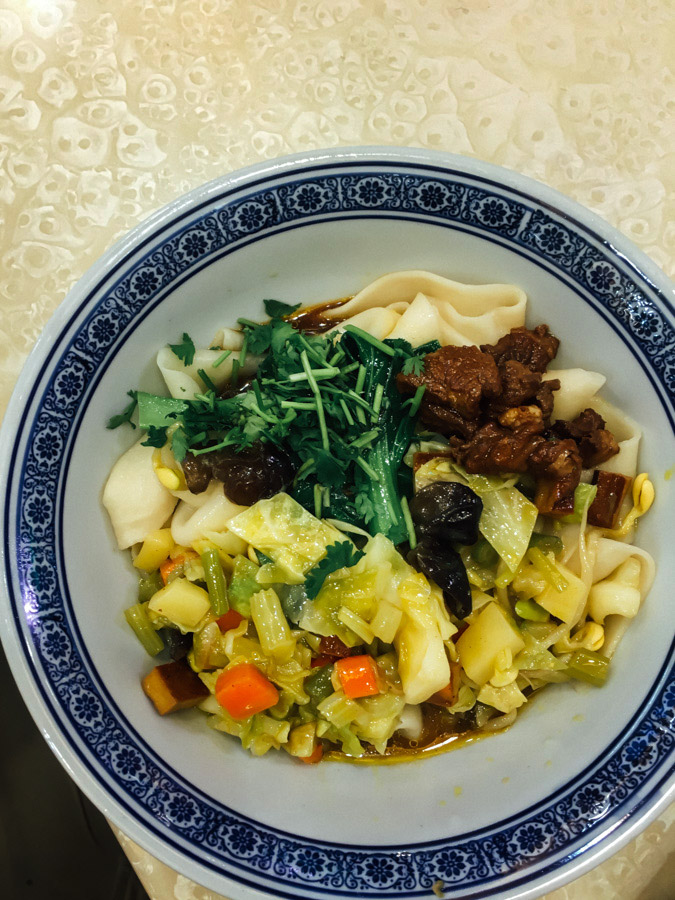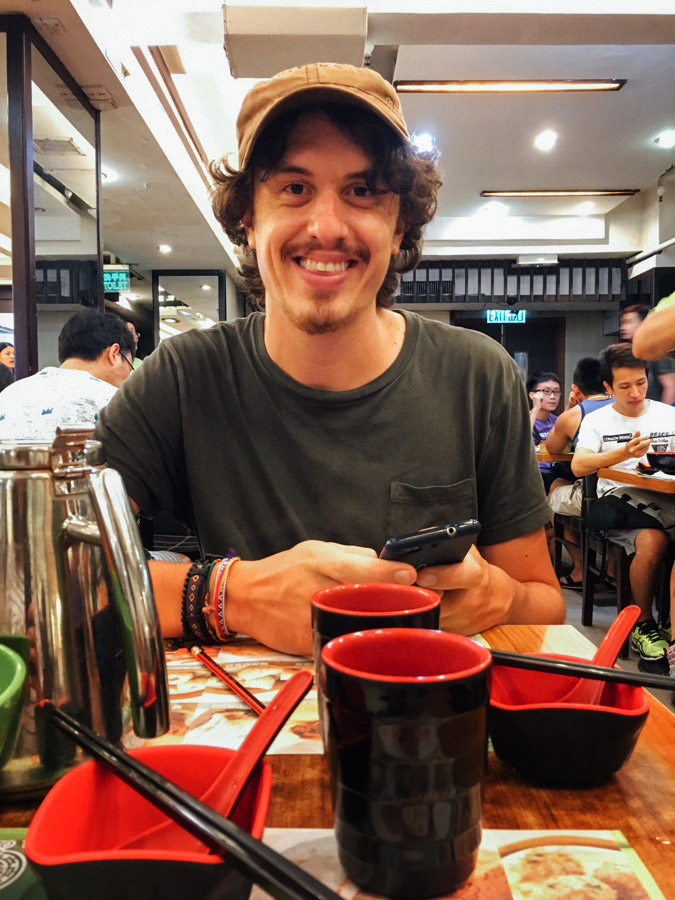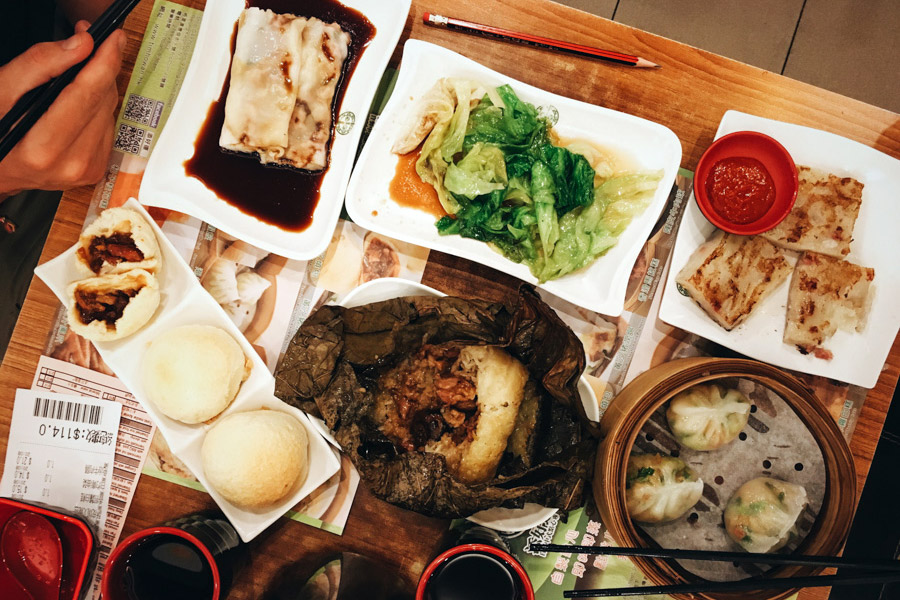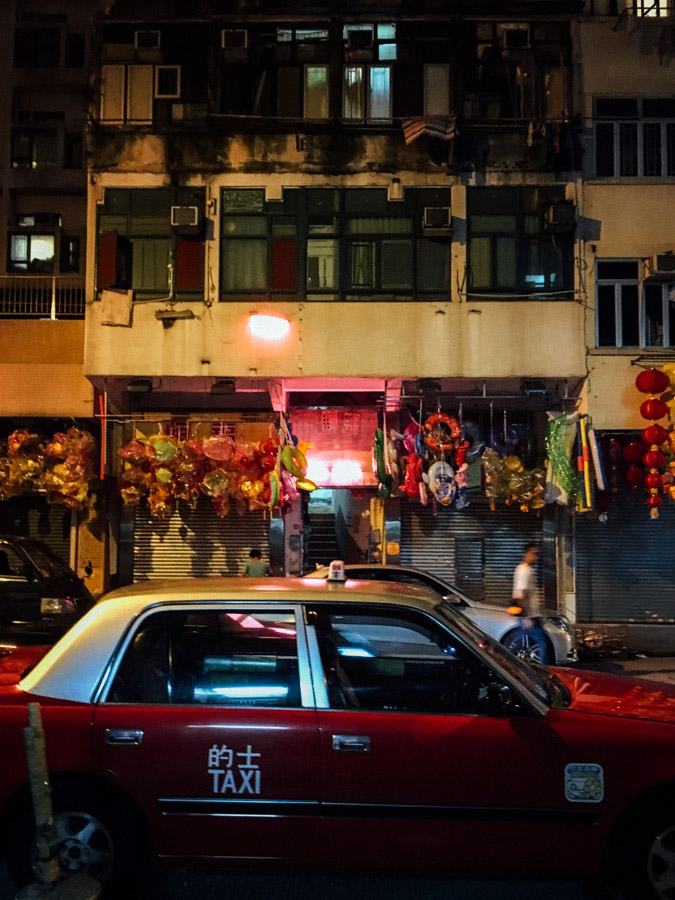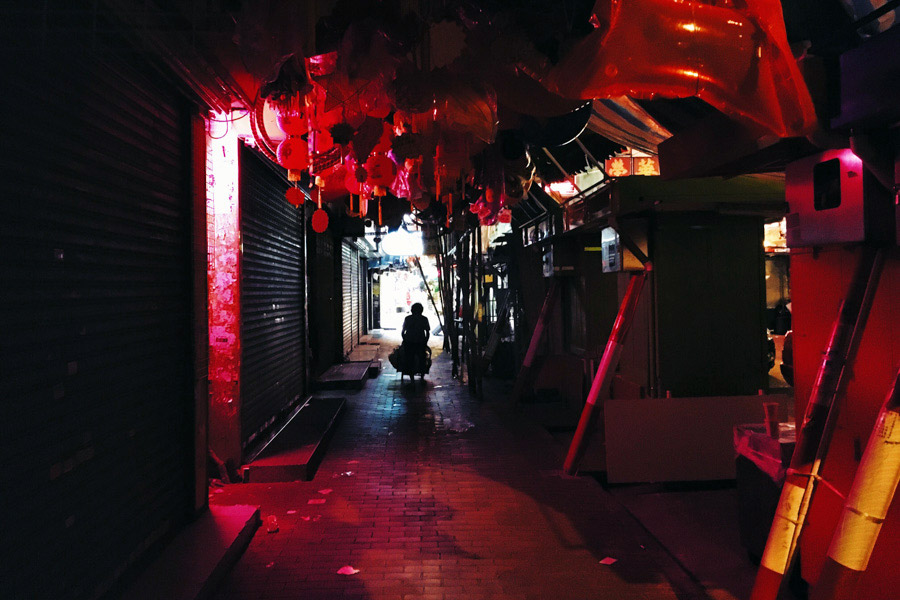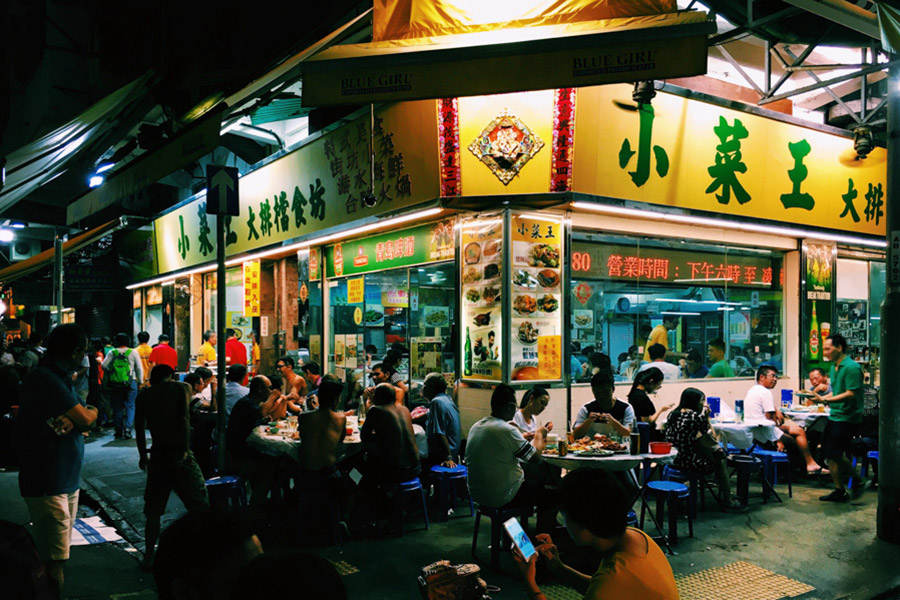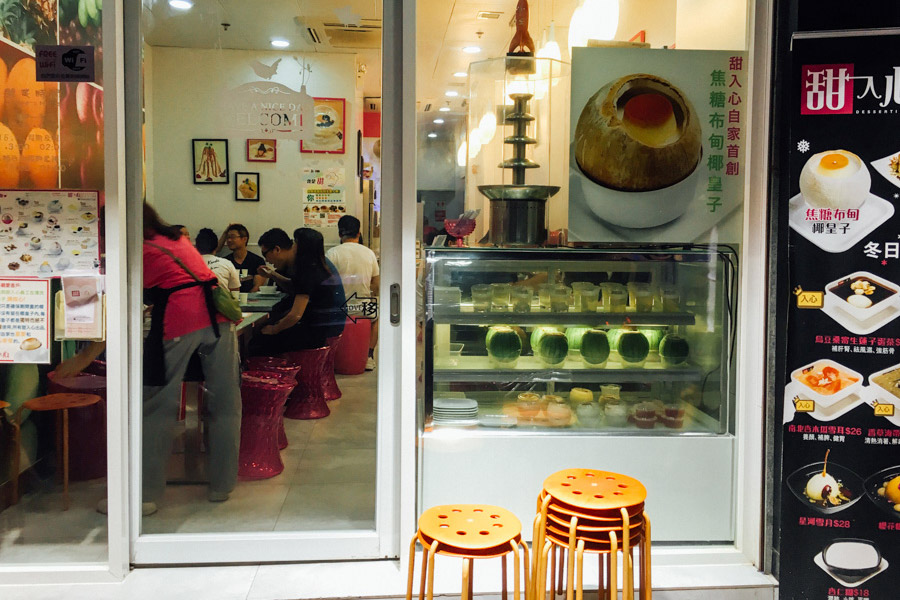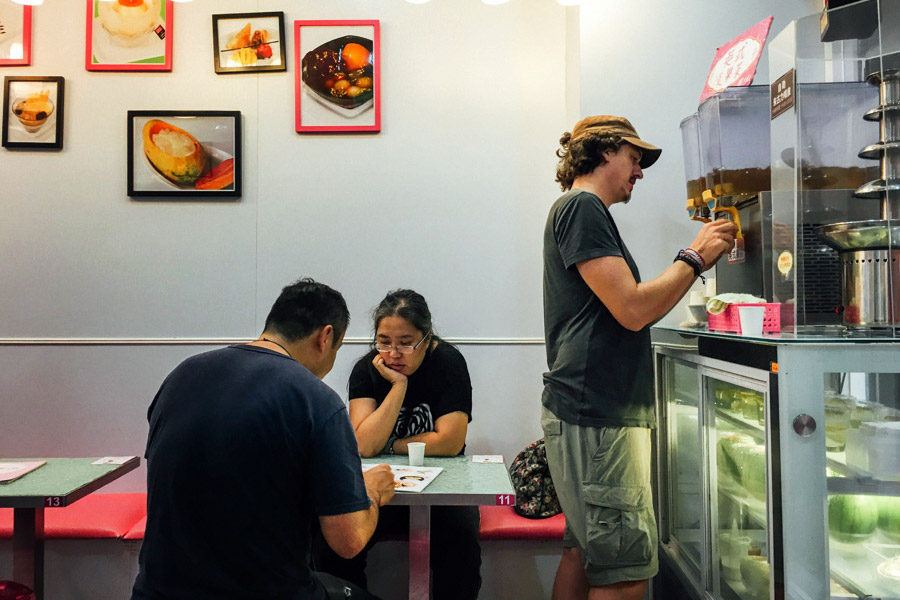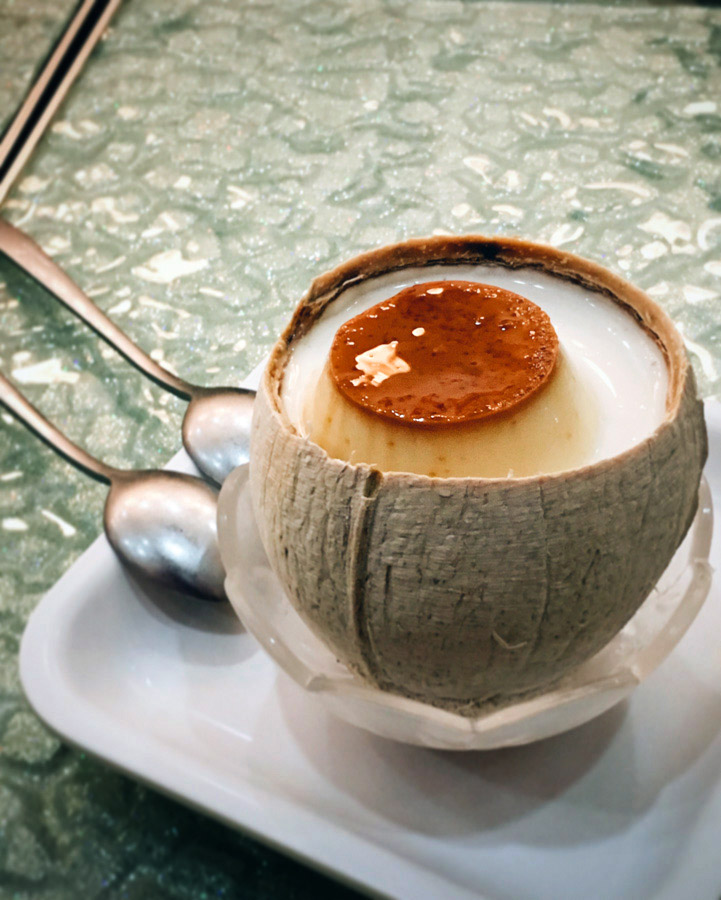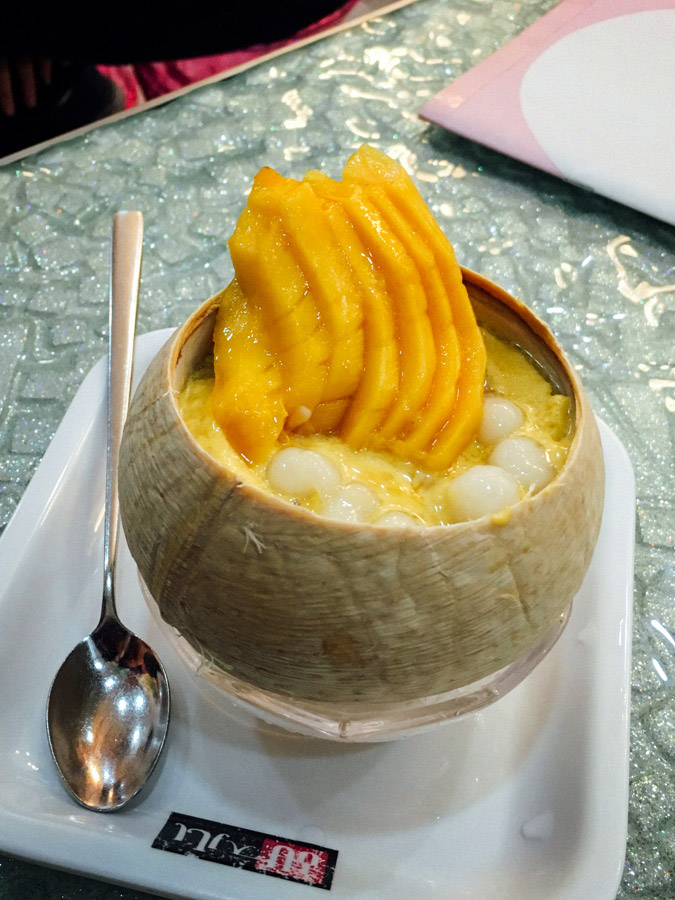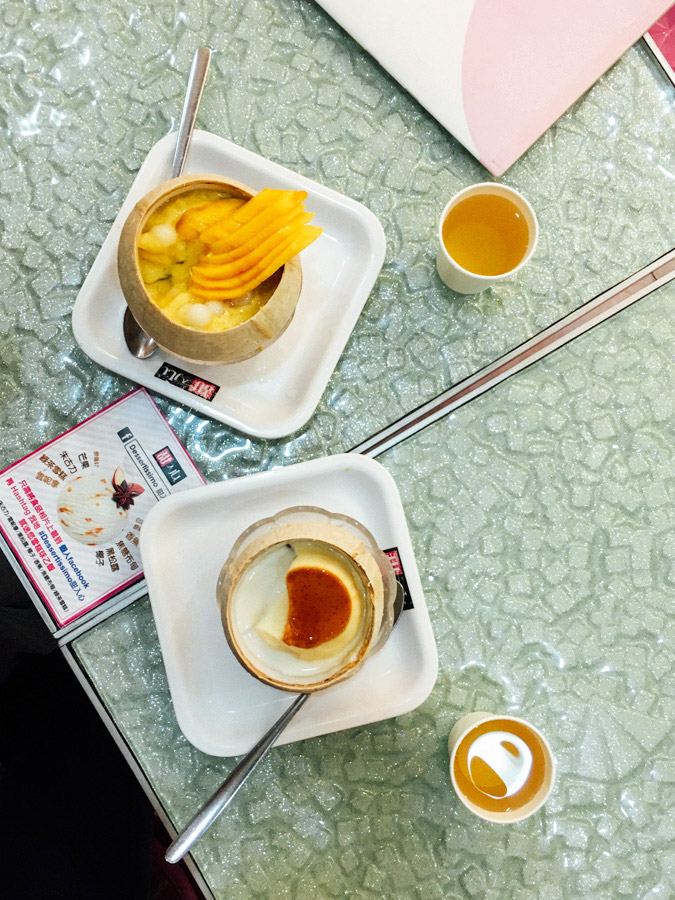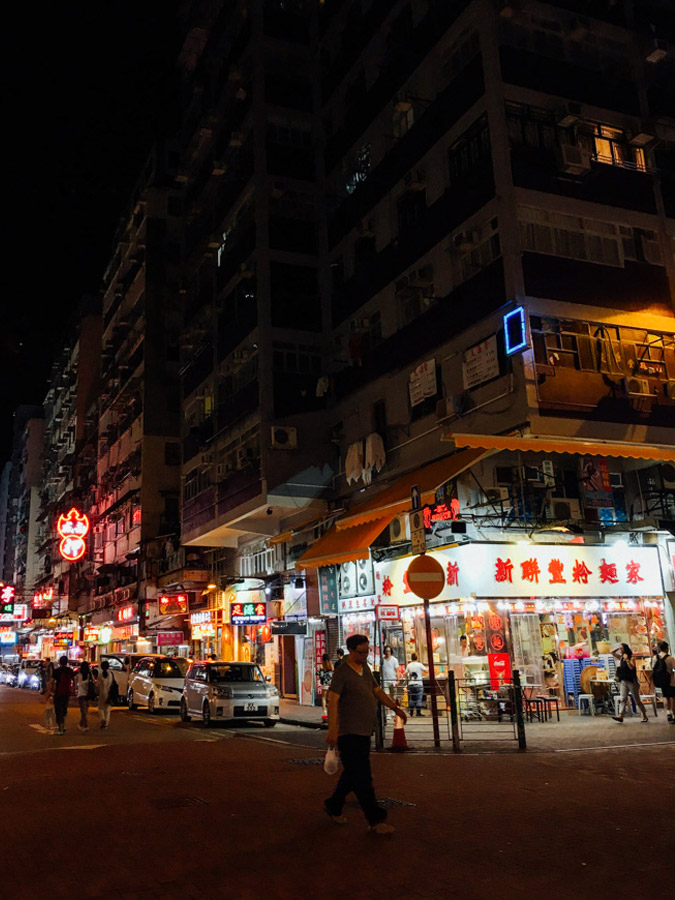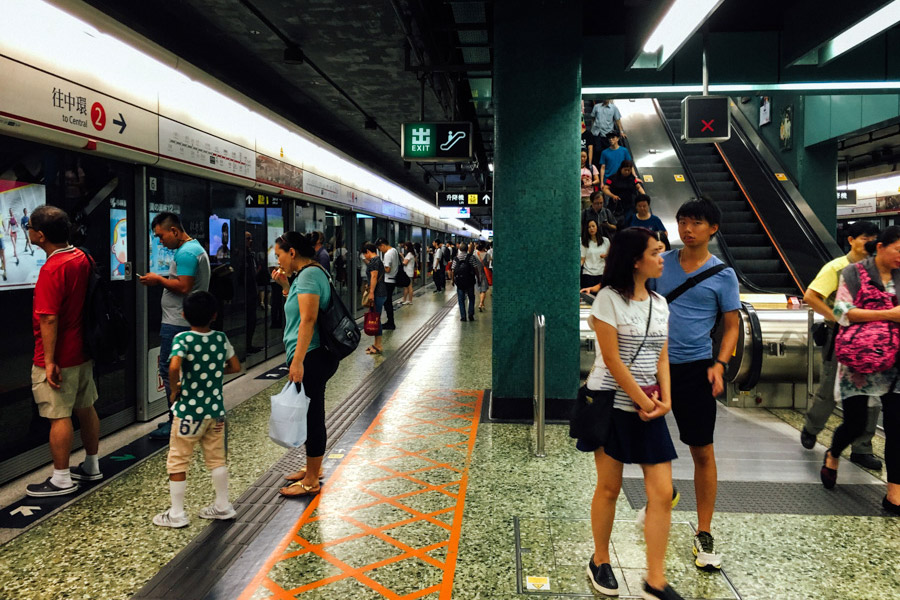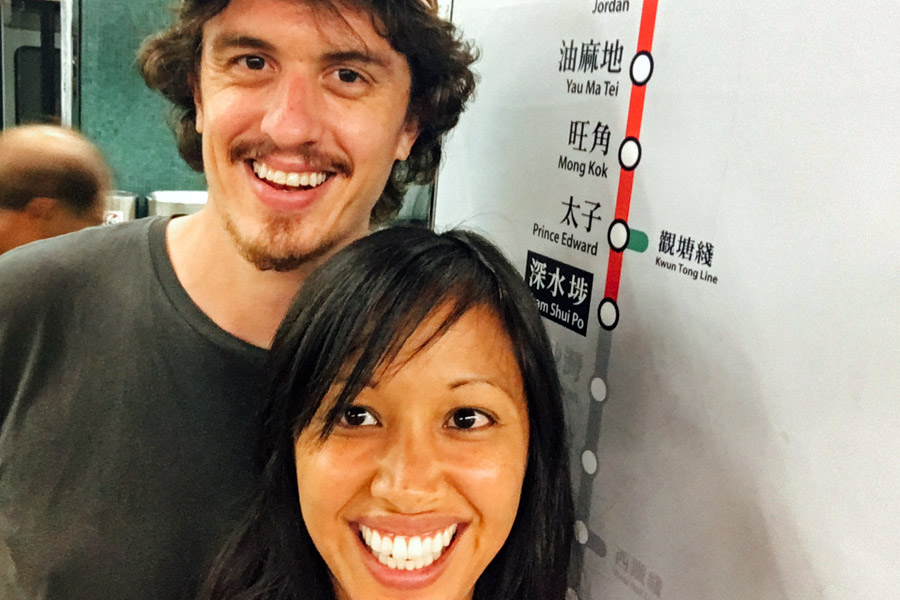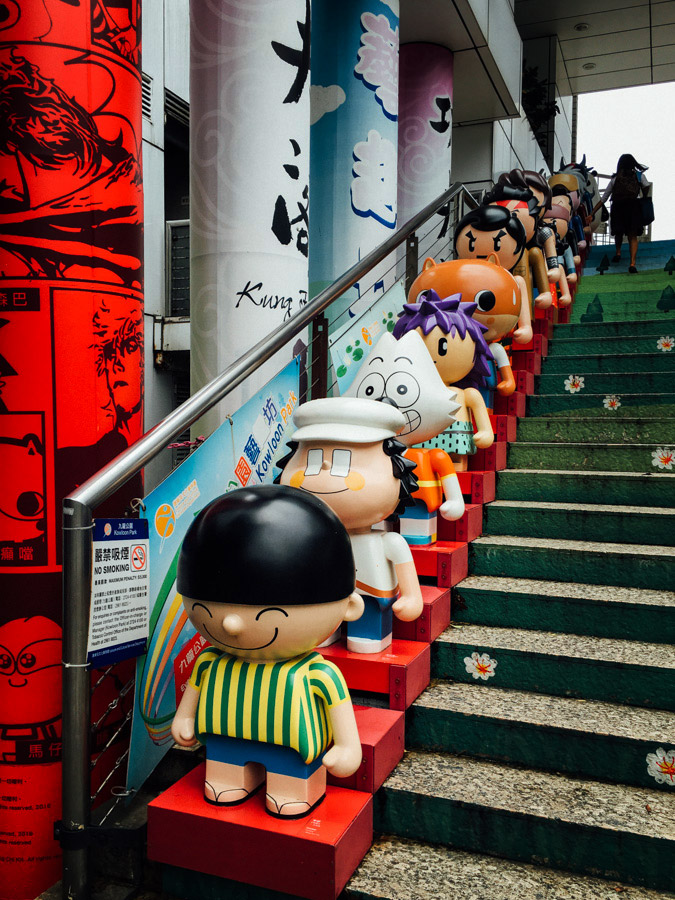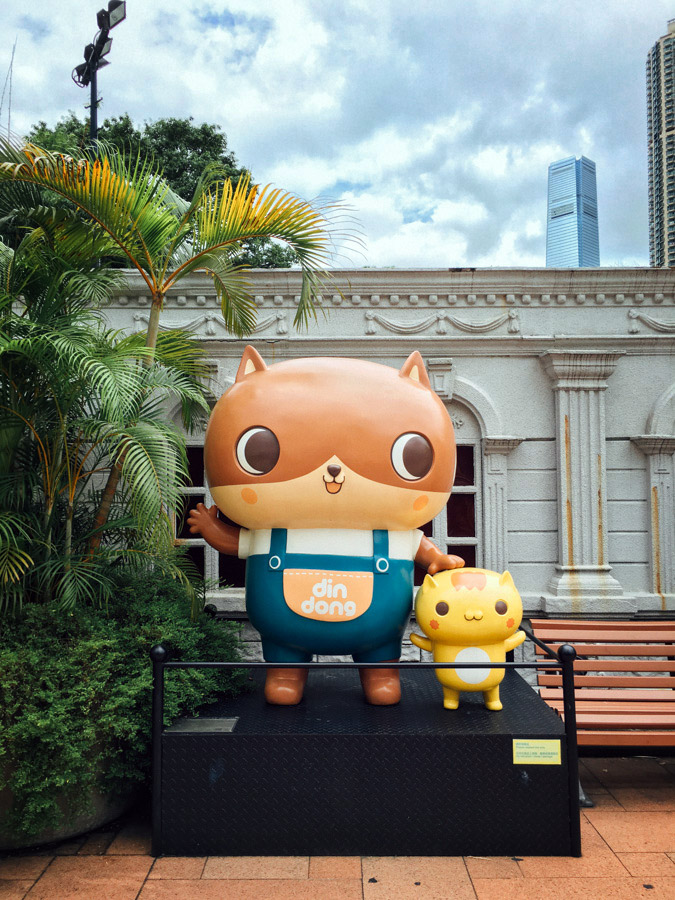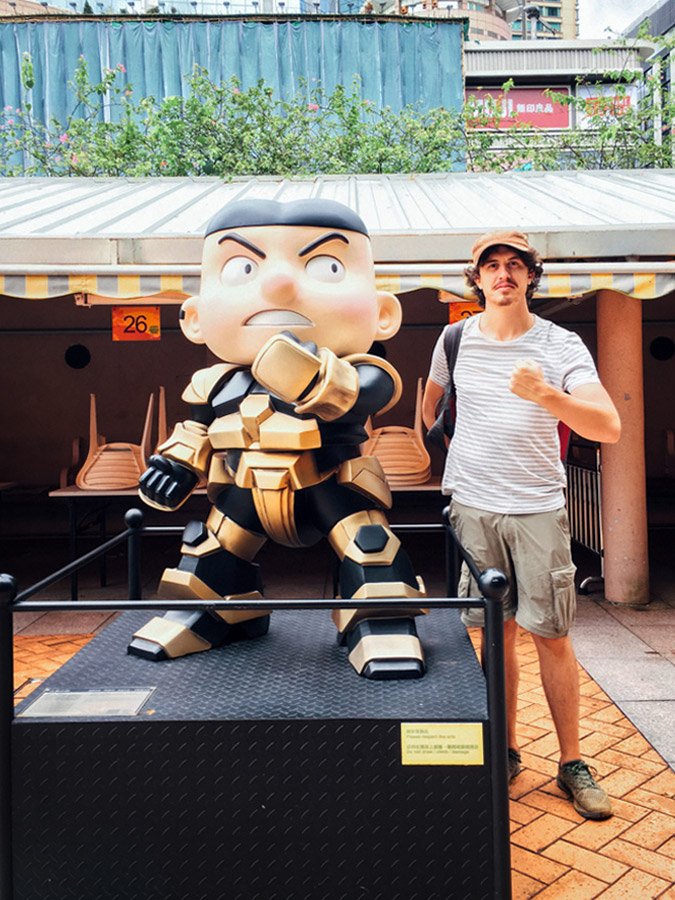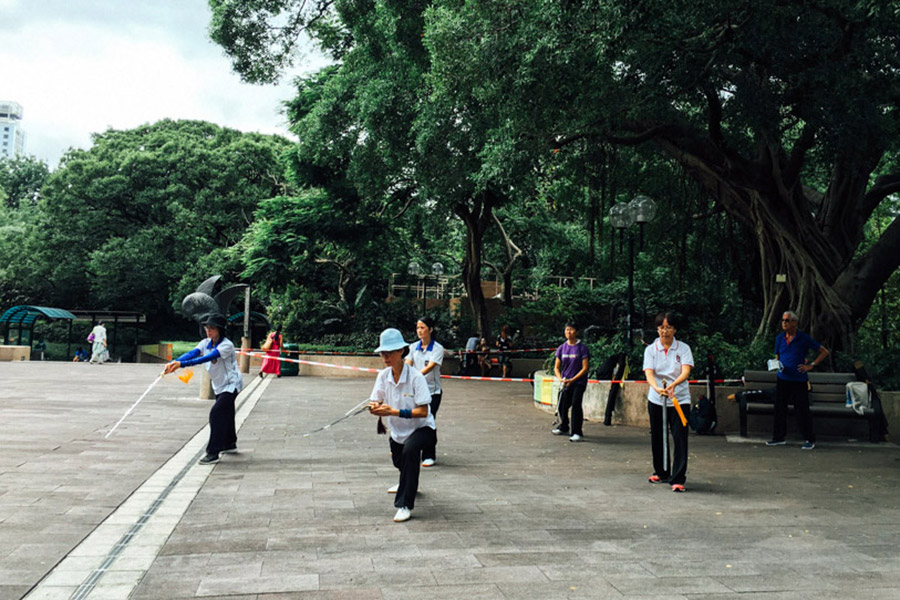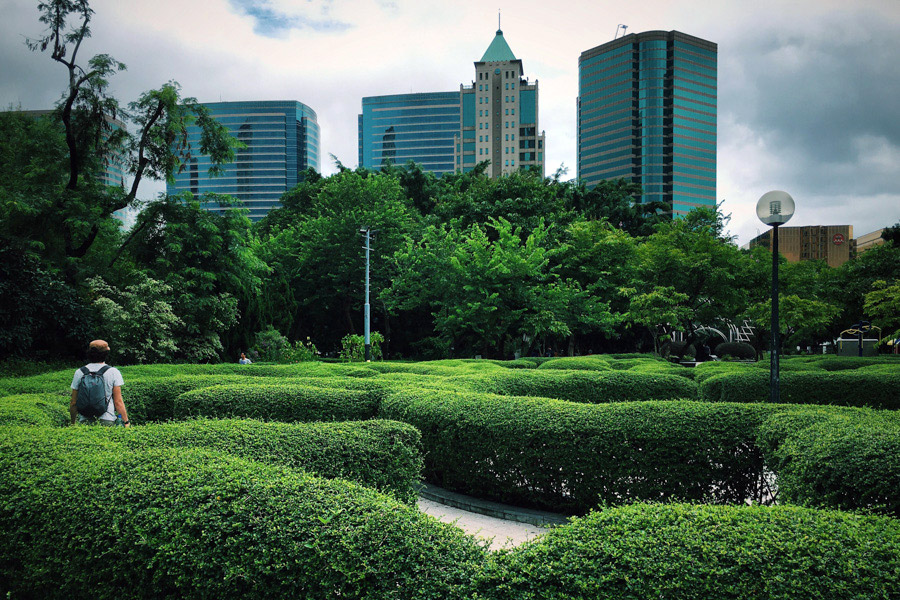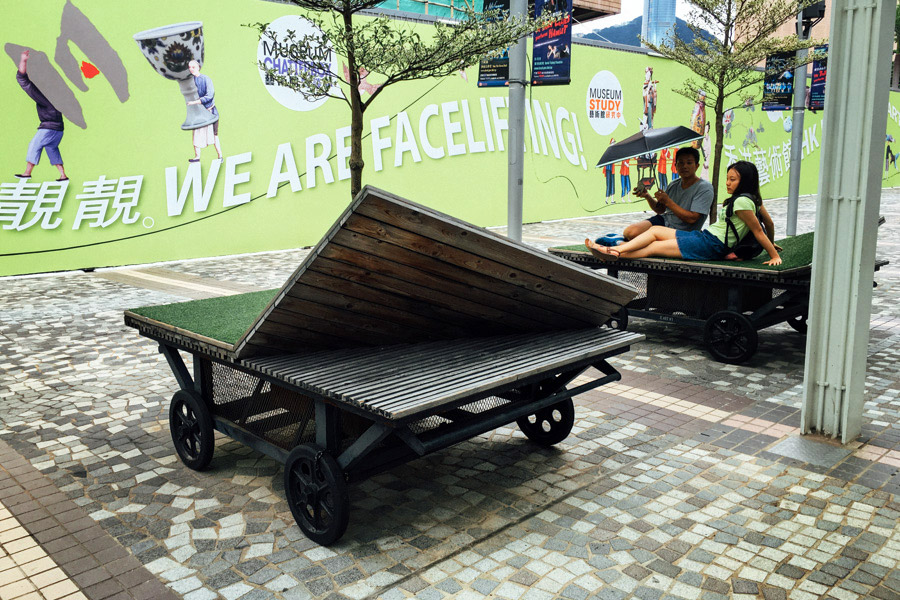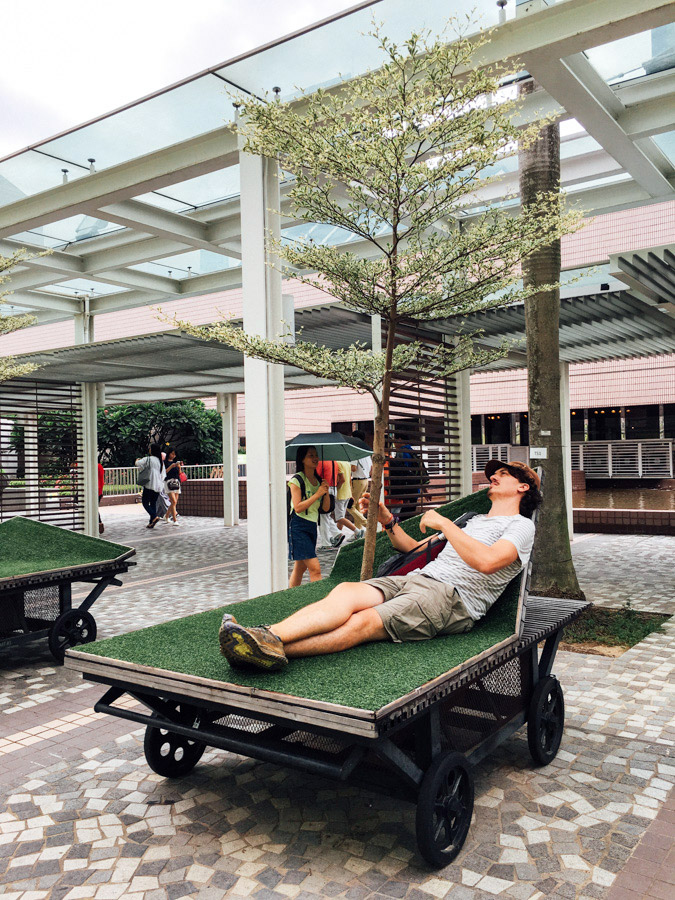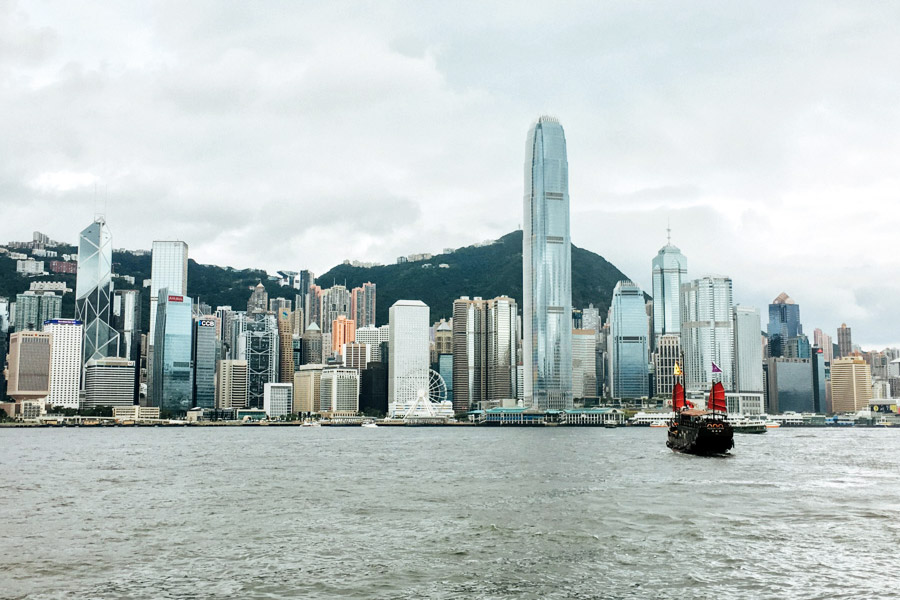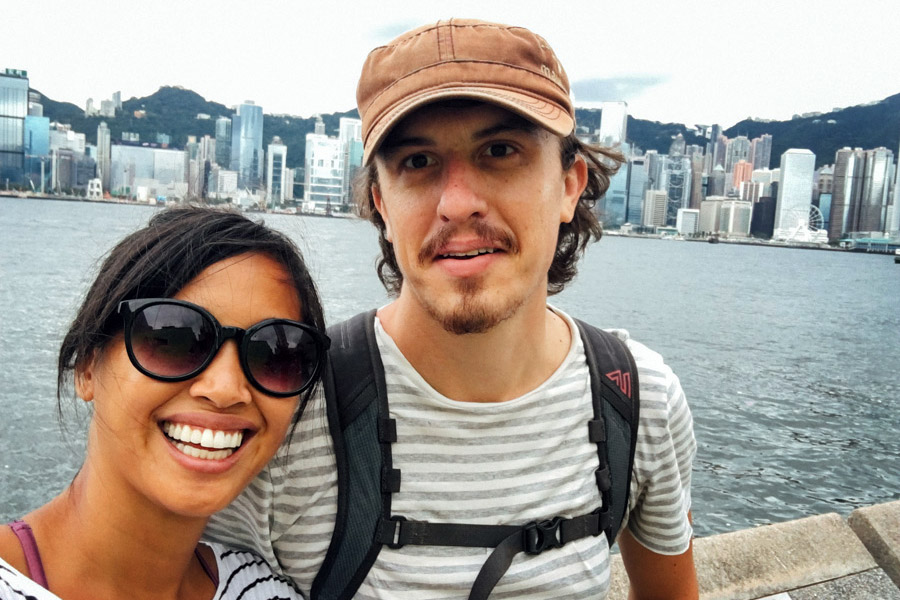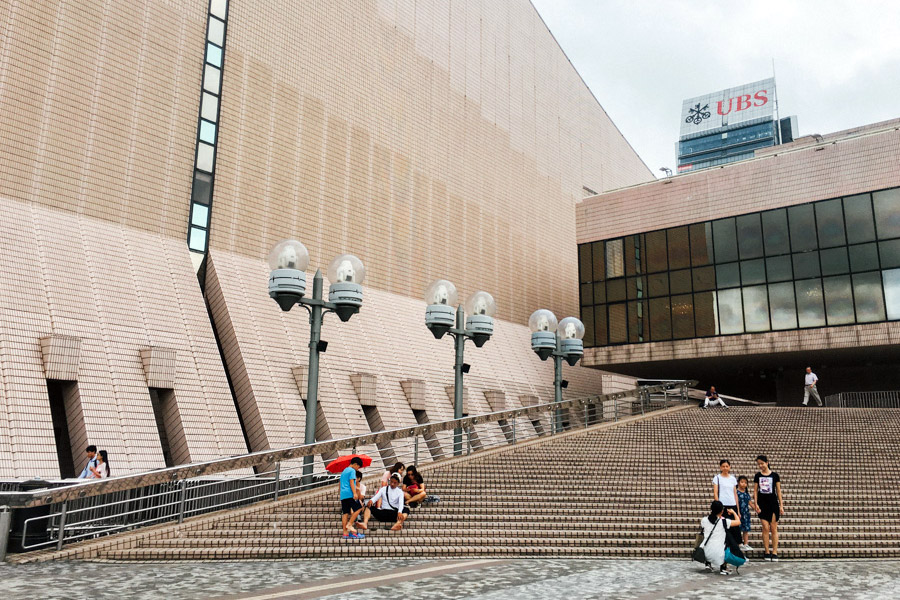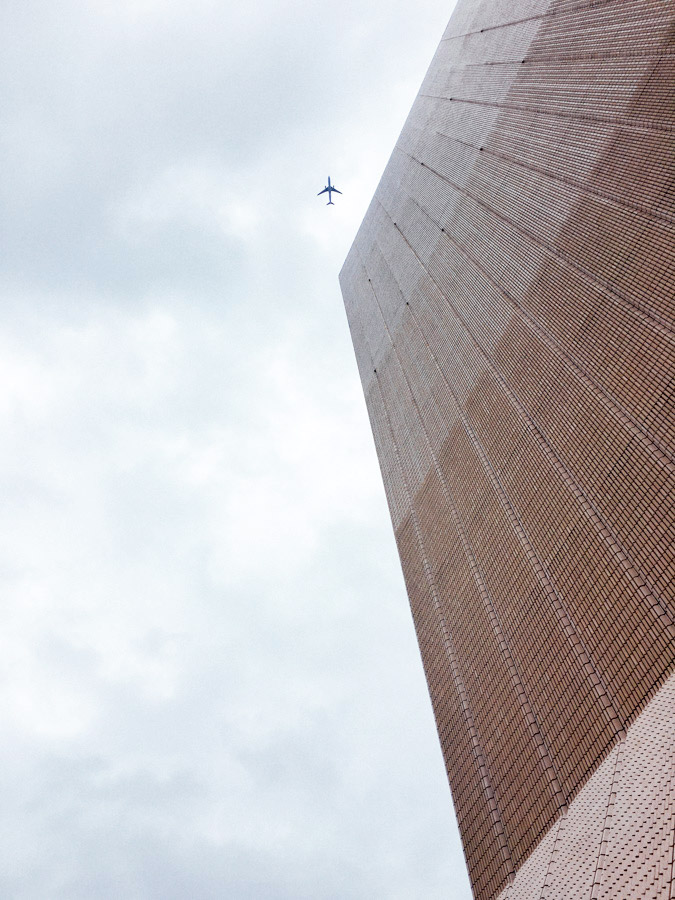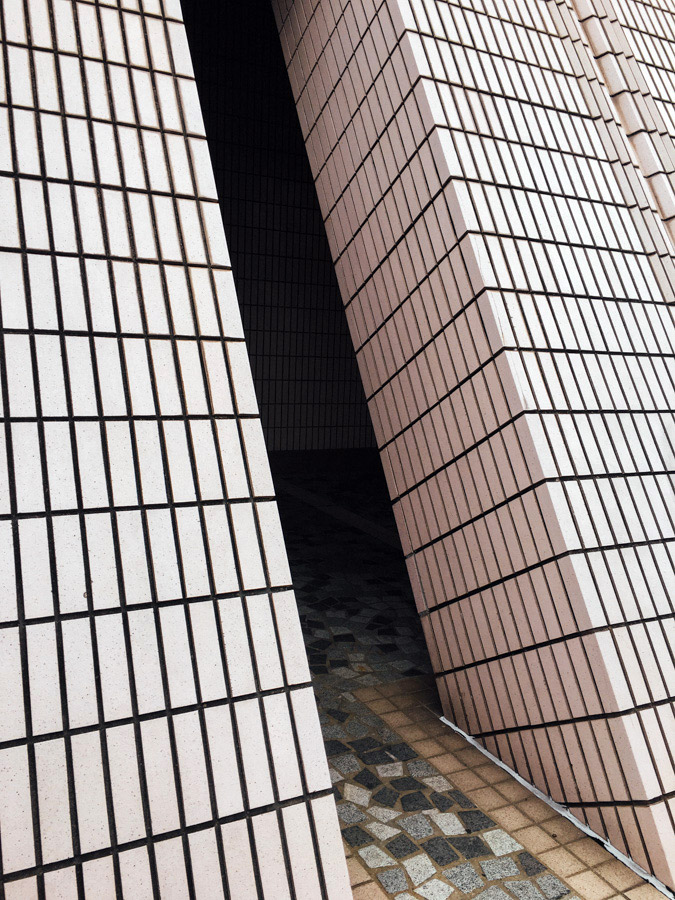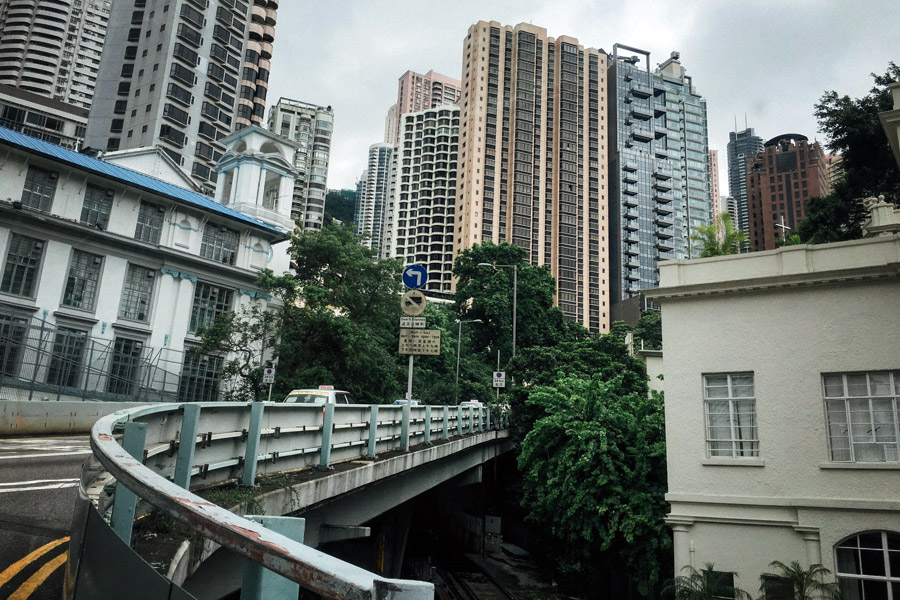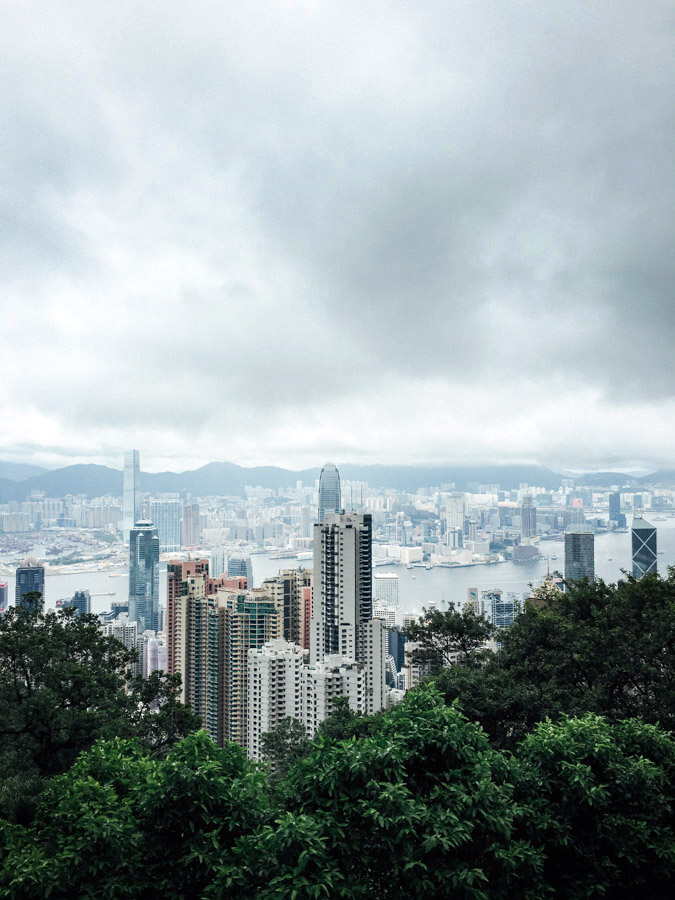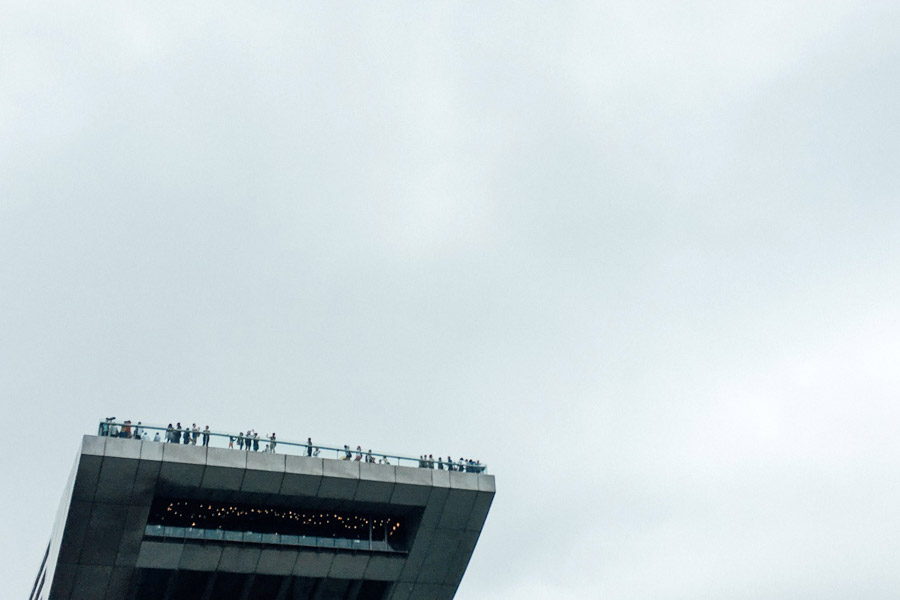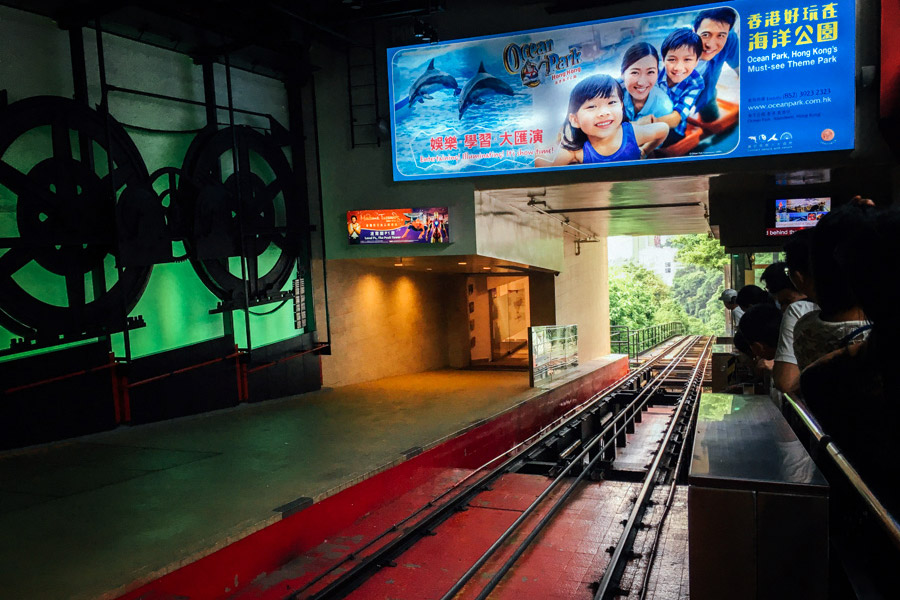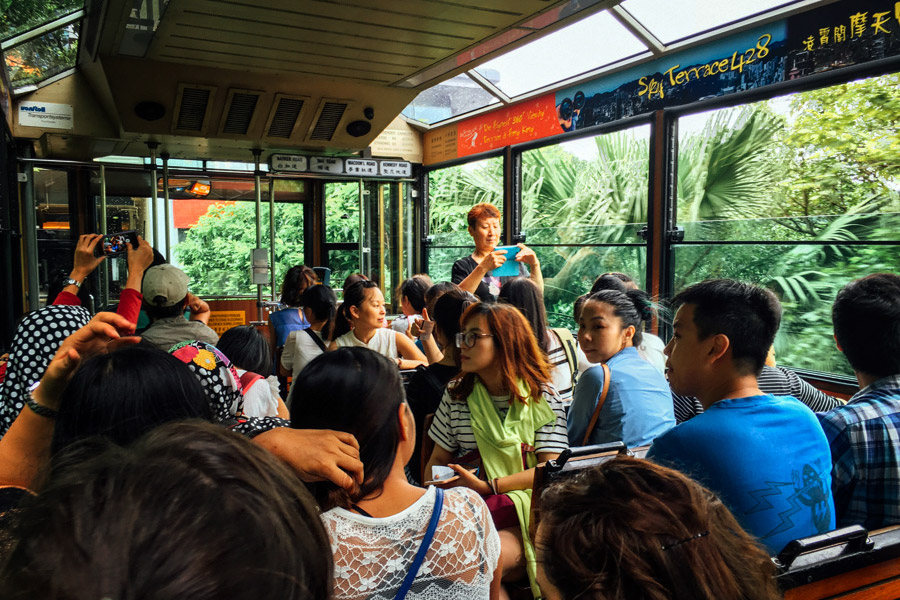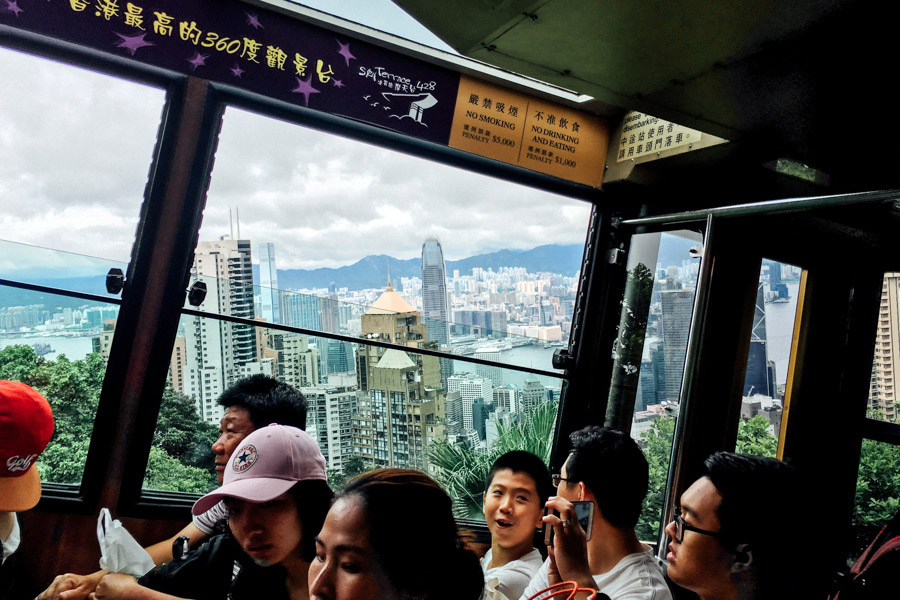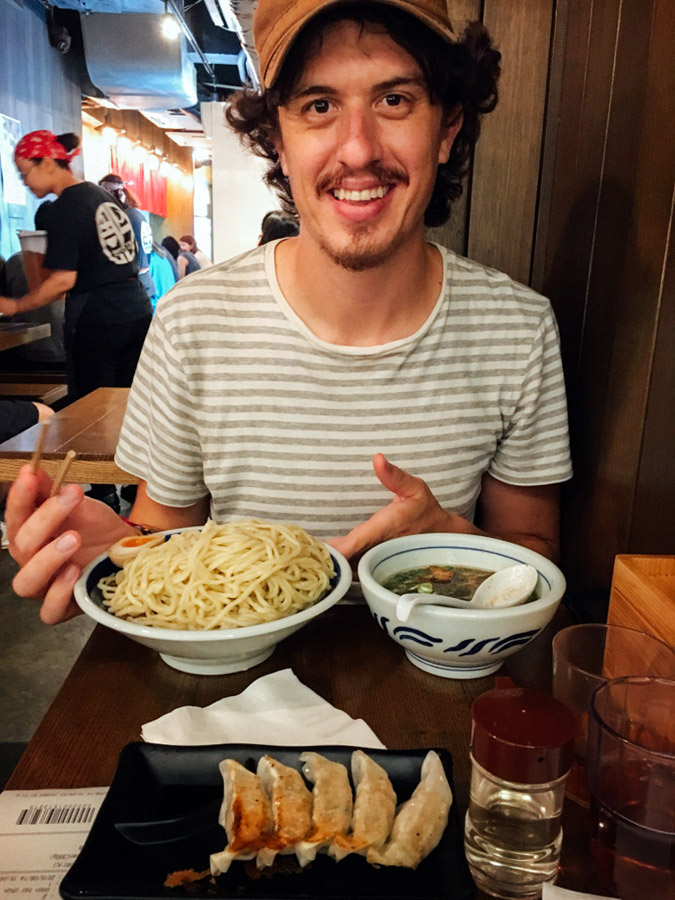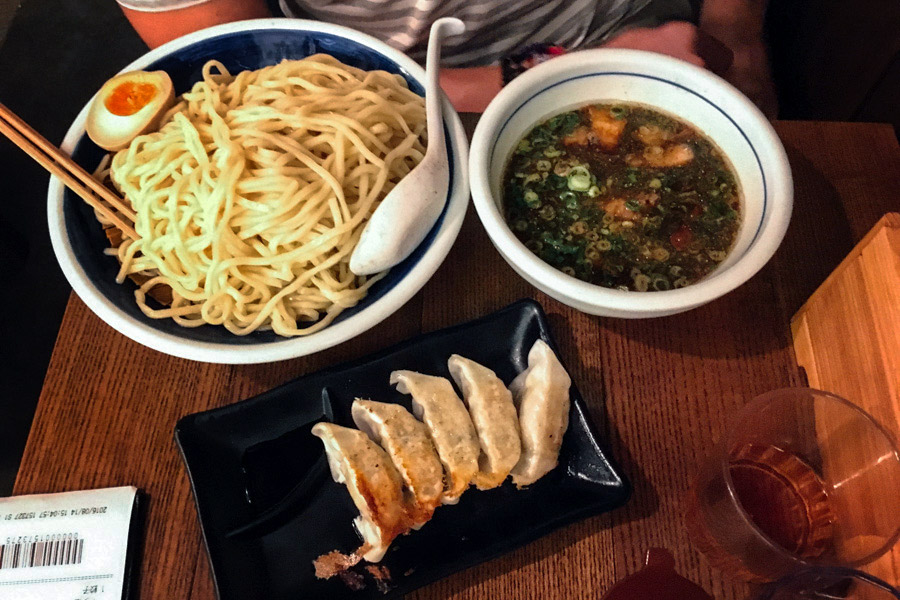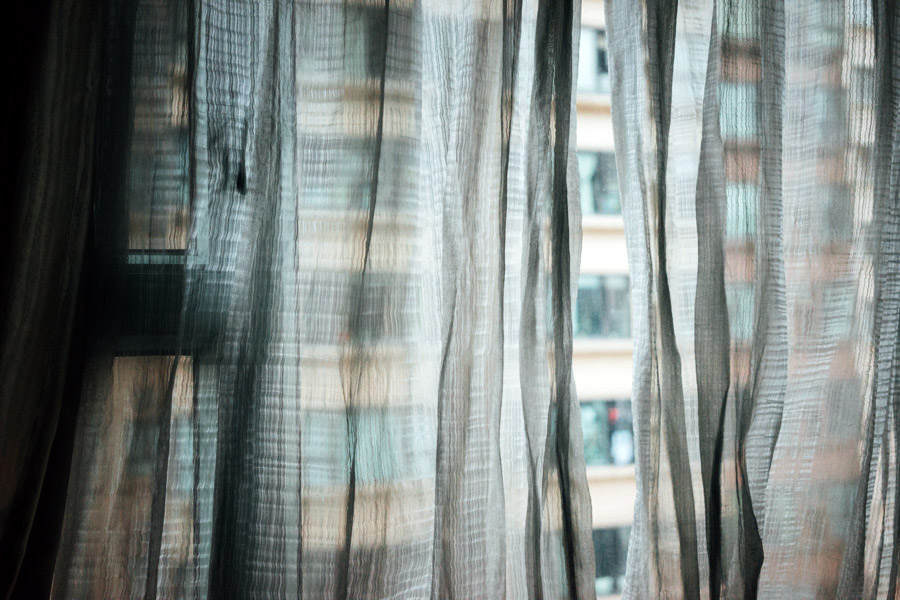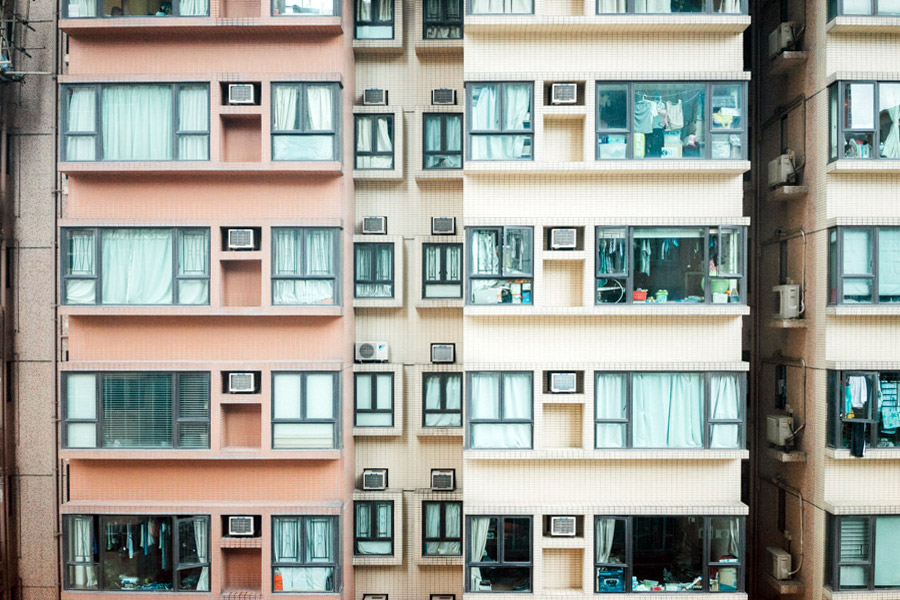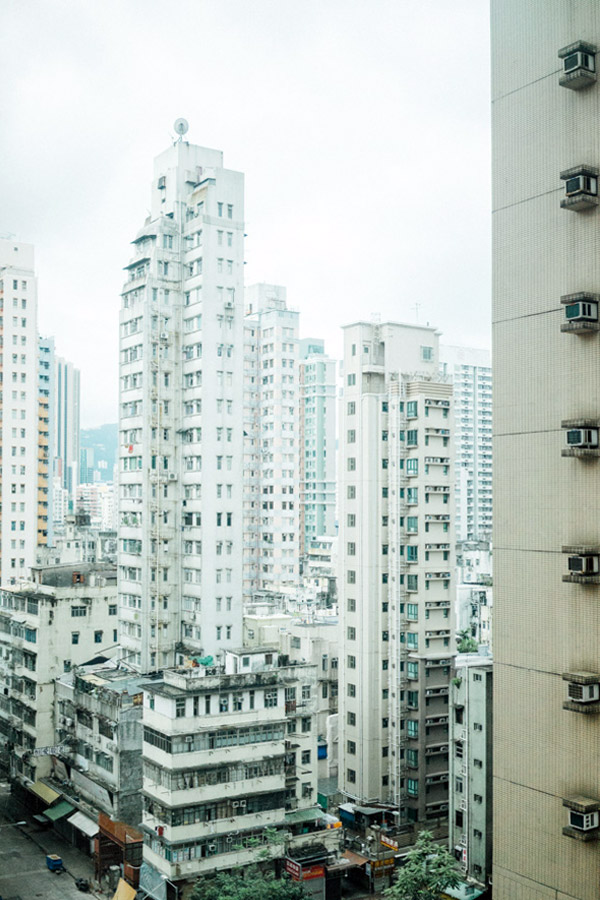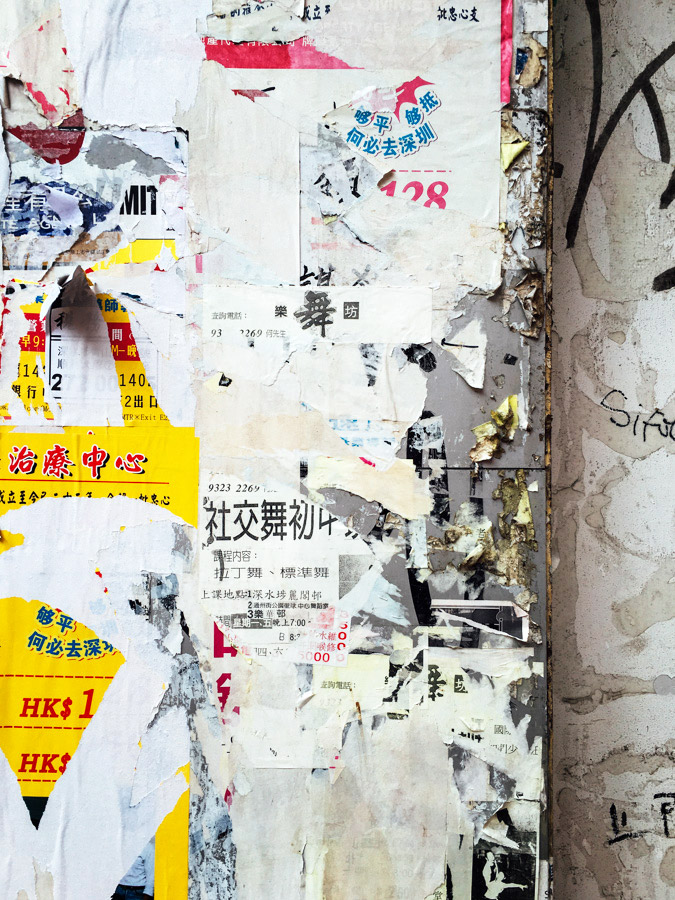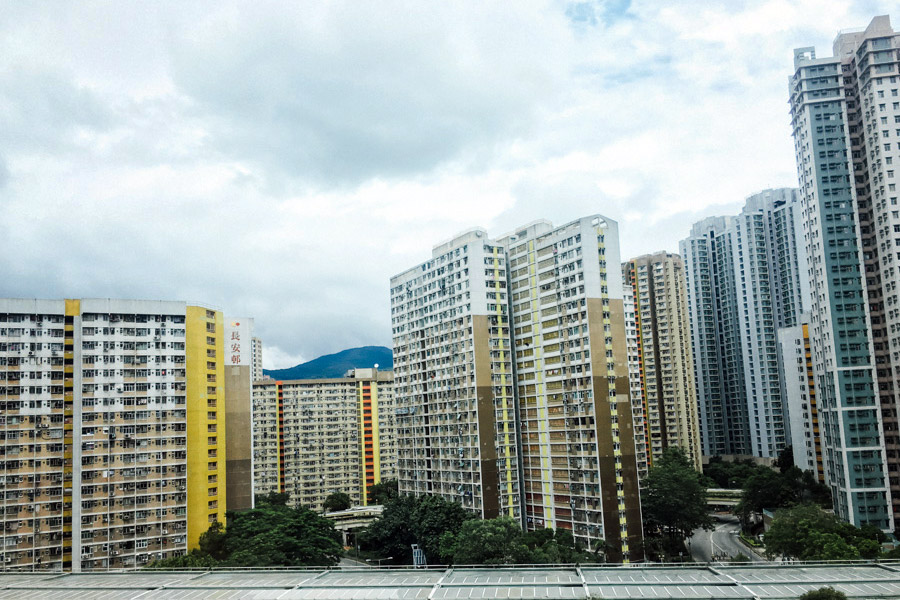A flight from Hong Kong takes us to China, a country not on our roadmap at first. But I am eager to see my old colleagues and we already have a cheap flight from Shanghai to Osaka. Here for 12 days, barely enough to scratch the surface of a 3,000 year old country almost as big as the United States, we have to be selective. So we settle on Beijing, the massive capital, Xi'an, home of the Terracotta Army, and Zhangjiajie, the national park of tall towers.
Beijing
We arrive in the center of Beijing in a typical hutong neighborhood, with its dark gray brick walls and narrow streets - decorations are seldom, pops of bright red are common. Our first steps in the city confirm our departure from South East Asia a couple thousand kilometers ago. We’re impressed by the order, the efficient subway system, the absence of scooters, and how clean streets can be - a stroll at night takes us to a crafted Italian pizza and salad; this is a developed country after all, albeit a second-world one (a term I somehow never used until today).
The Tiananmen Square imposes on us the grandeur the Chinese government likes to display: a large square surrounded by red flags and monumental buildings; Mao’s giant portrait, overlooking the square and the line to his mausoleum. We dive into the incredible range of Chinese food, from delicious savory dishes of the North to the unbearable spices of Sichuan & Hunan. At night we adventure on street food with Beijing noodles and pig intestine soup, and dine with a friend on spicy crawfish with his shy four year old.
My dear colleagues treat us to an incredible lunch at Beijing Najia Xiaojiuguan, with - amongst many others - the unmistakable Peking duck dish. Seeing familiar faces from work is heartwarming; we banter, talk politics, innovation, and technology; I talk about work too quickly. We tried our best to look decent in our backpacker clothes - I did my best to tame my hair down this morning. The inevitable question arises: “When are you coming back?” - We don’t even know where we will come back to.
China is not what we expected; its population is changing rapidly - Beijing first, one of the most progressive cities in China. Technology companies, industries, shops and almost everyone works in a free market, as in a capitalist country - leaving infrastructure, transport, and a few others to be controlled by the State. China’s past reputation of copying Western ideas is long gone; the country now innovates and creates, with often a better environment to execute.
We explore Beijing’s long history - the capital is one of the oldest cities in the world. We visit the Temple of Heaven, amongst older people playing cards and the seldom blond tourists assailed for photos of and with their kids. We arrive too late at the Forbidden City, only looking over its massive walls, hoping for more. A passerby hears us speak English and hands us his brand new phone. Confused at first, we finally understand the phone is in English and he can only read Chinese, so we help him through setting the new language. Of all the countries we’ve visited in Asia, we realized then how little English is spoken in China, despite their much more advanced education. In many other countries, English is the language of survival, the one to attract tourists - here, there’s already one billion local tourists.
We take the obligatory day trip to the Great Wall at a spot recommended by a coworker. In a few hours, we will climb many hills and slippery slopes, made to prevent the Mongol horses from advancing. A small fort or tower raises at each top, with the obligatory souvenir vendor. The hike is a tiny fraction of the 8,800 kilometers of the wall, and every sight was more incredible than the last.
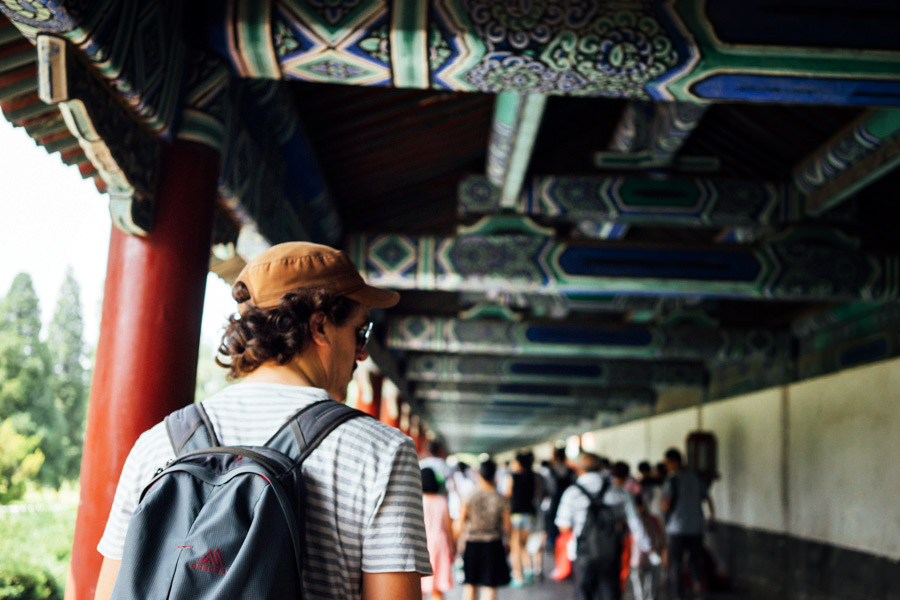
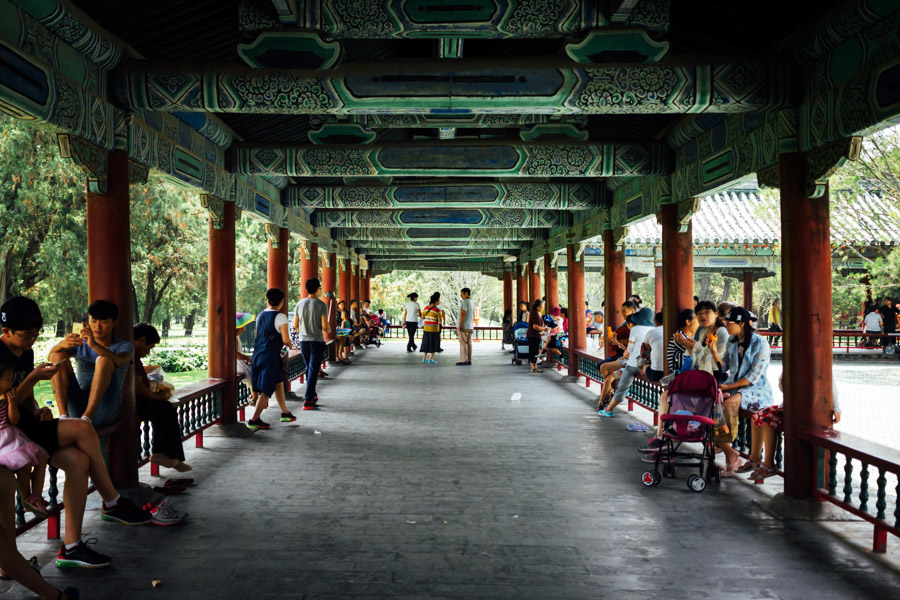
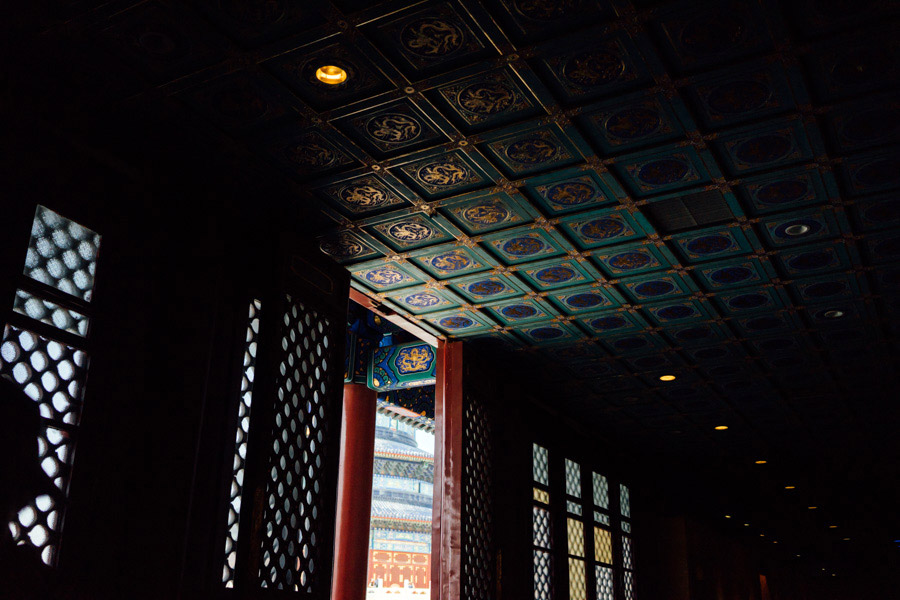
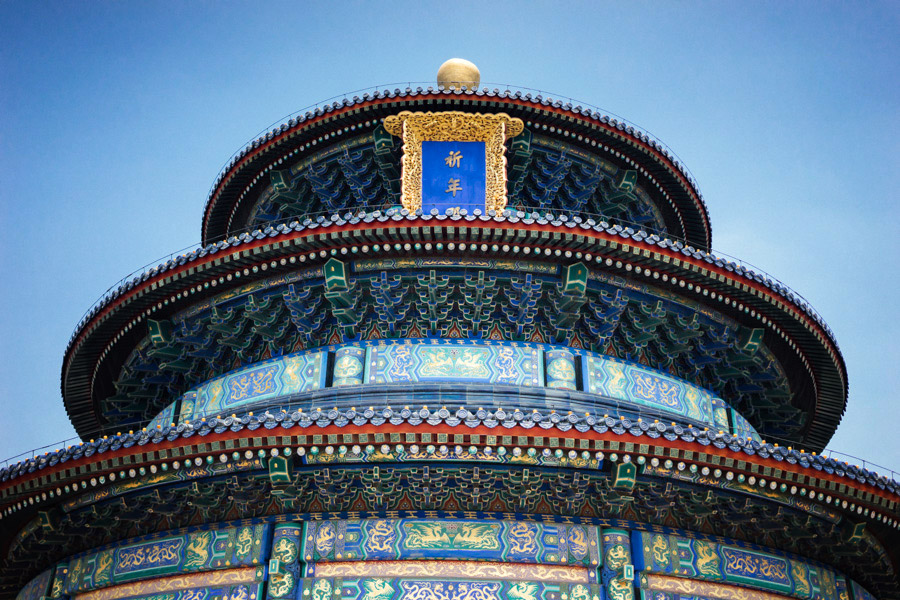
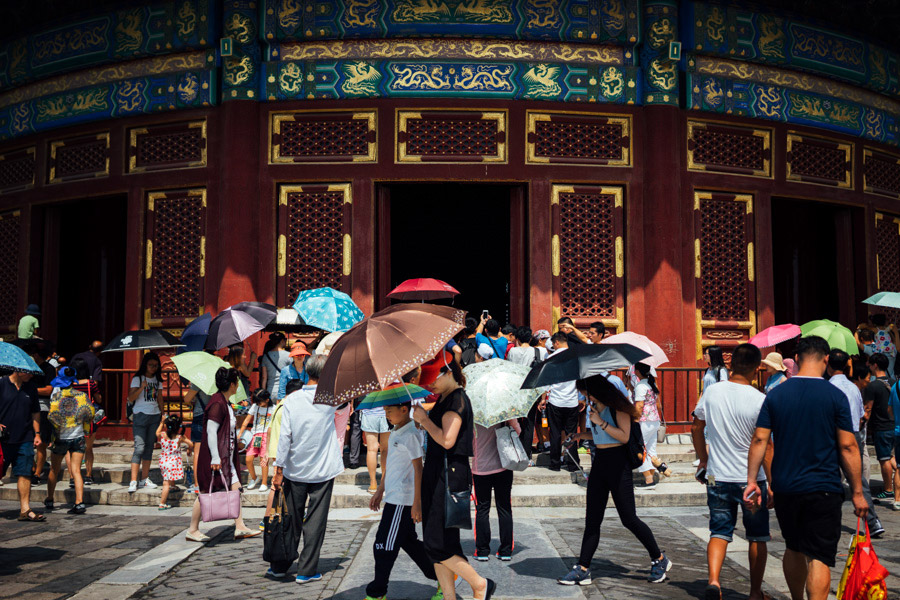
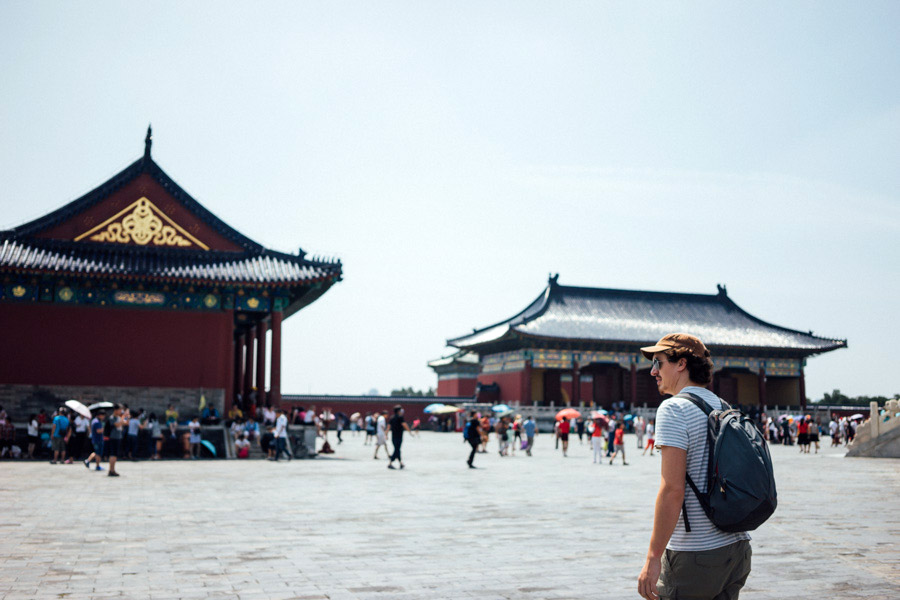
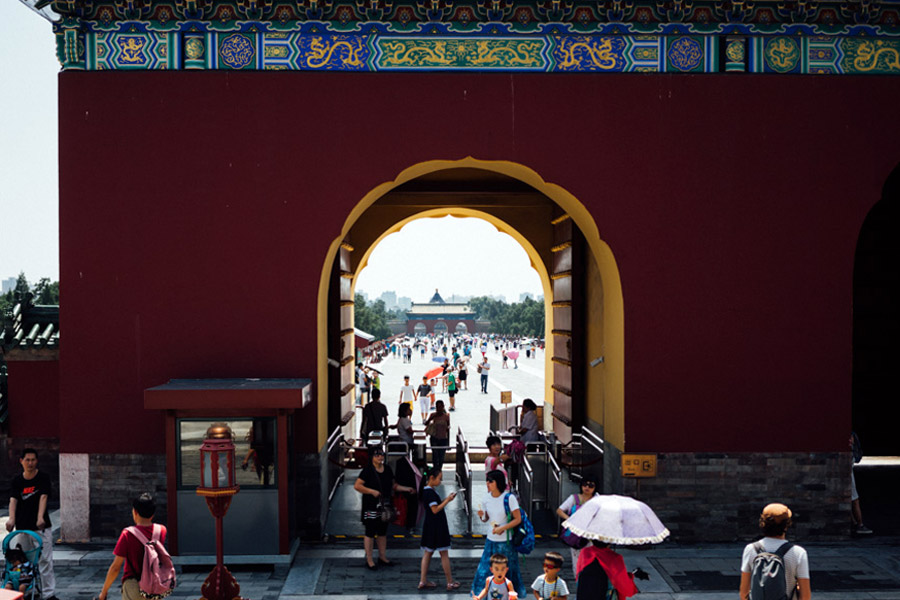
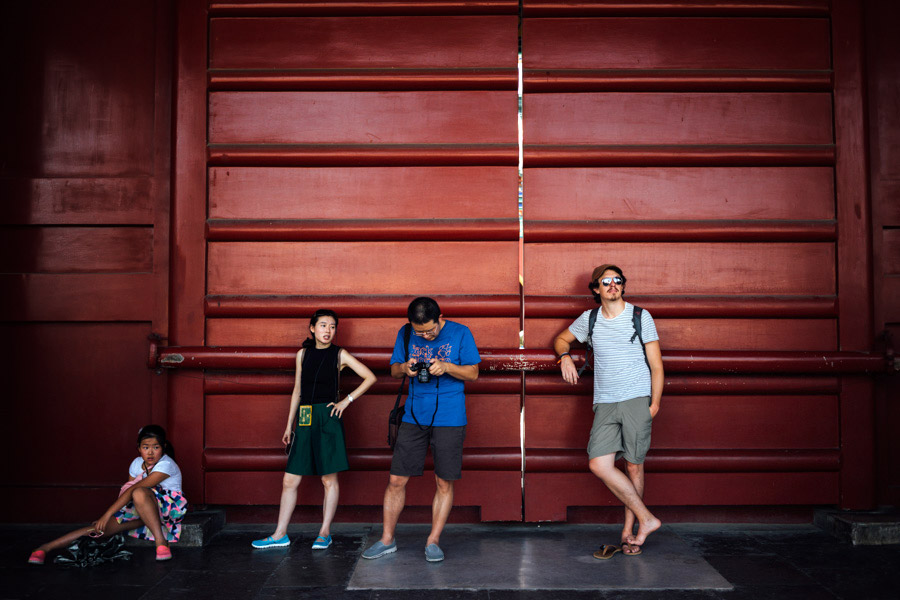
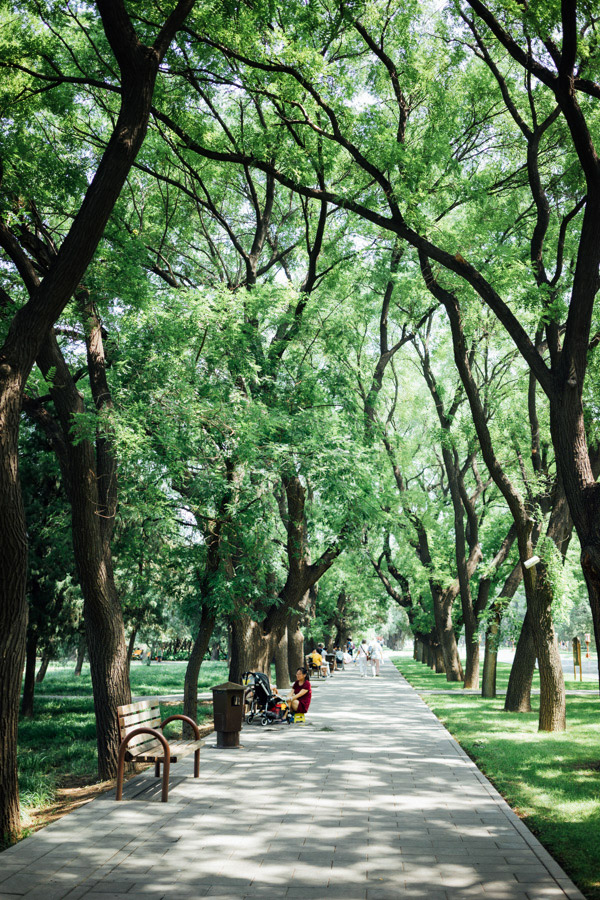
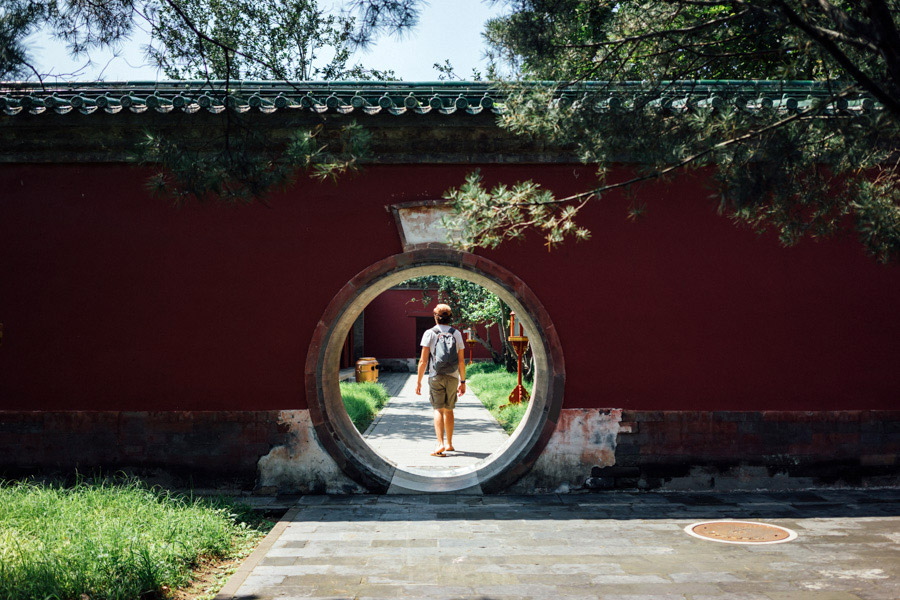
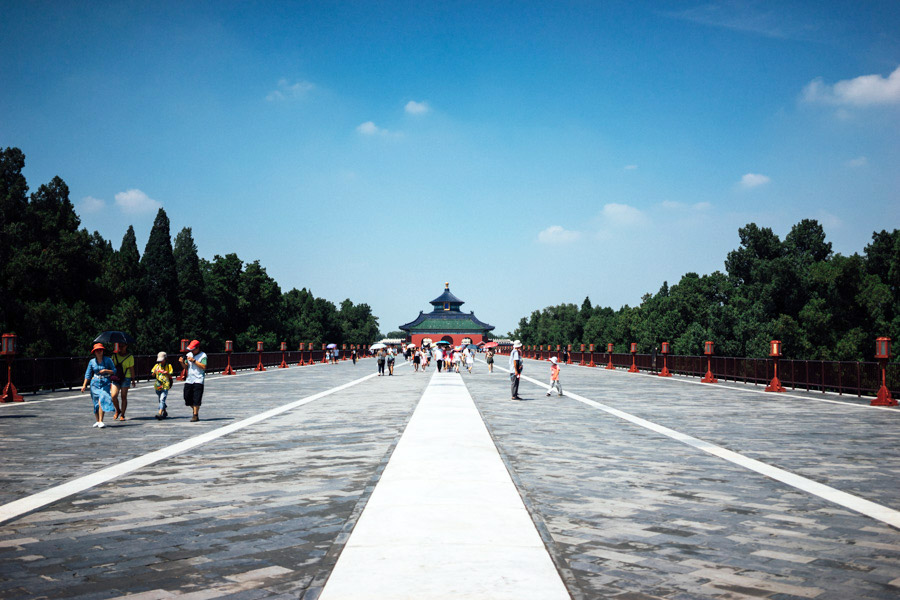
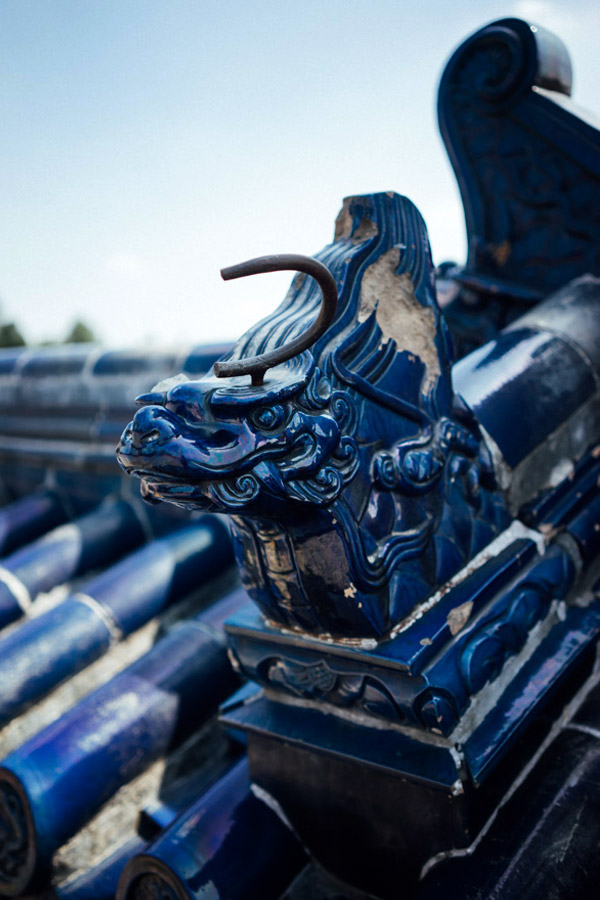
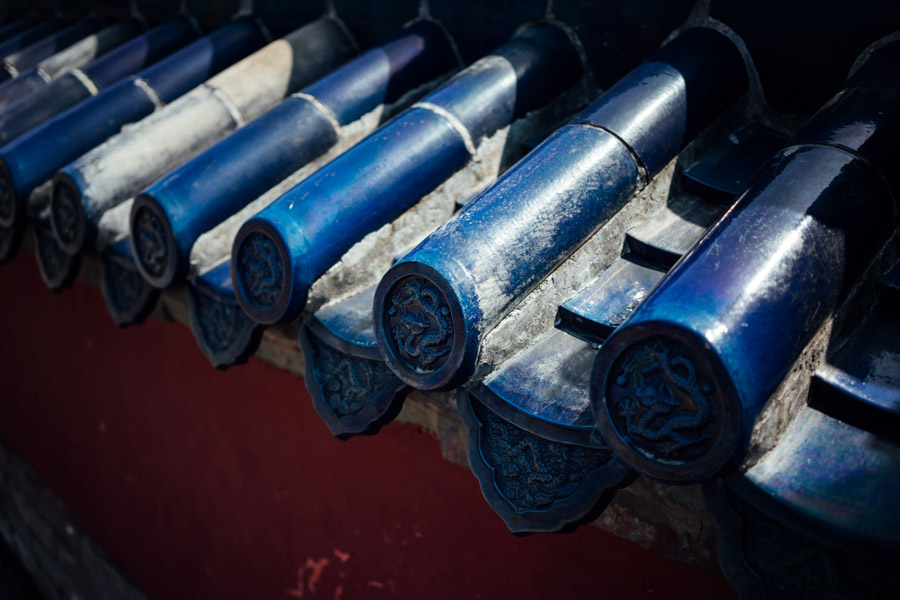
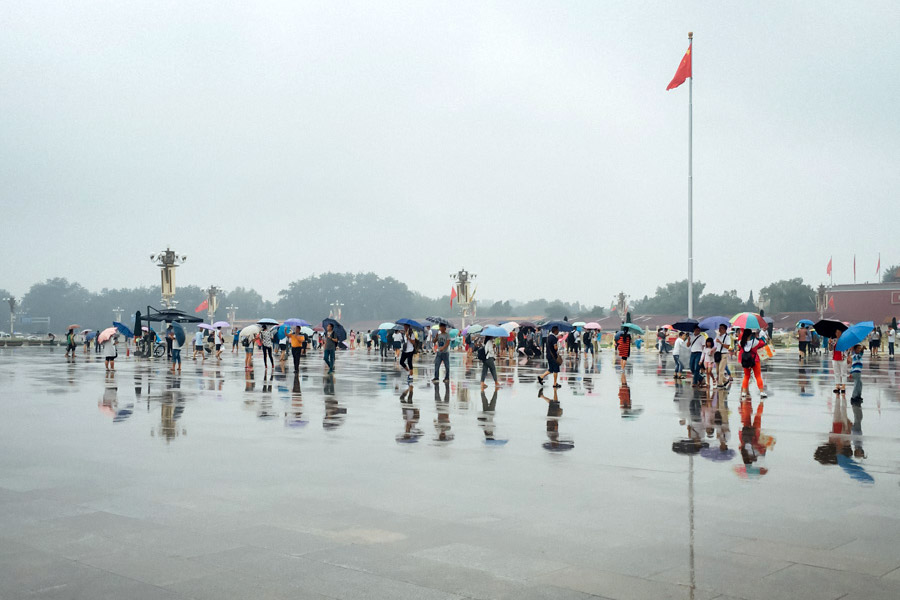
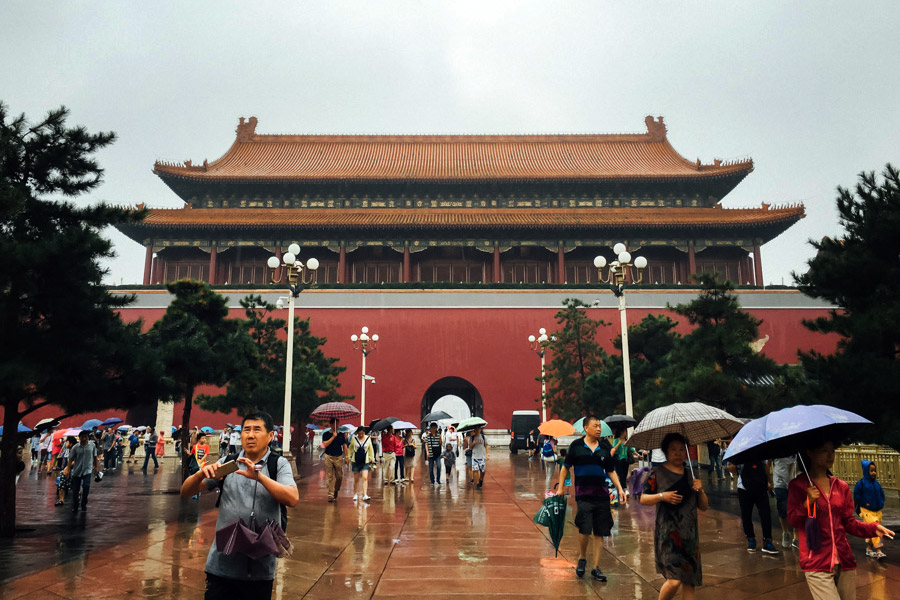
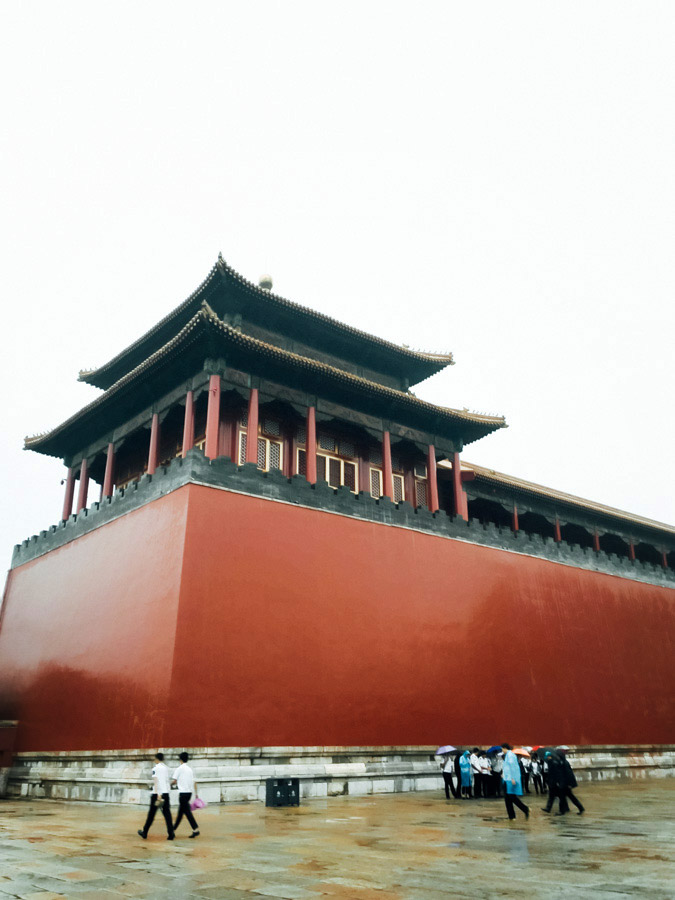
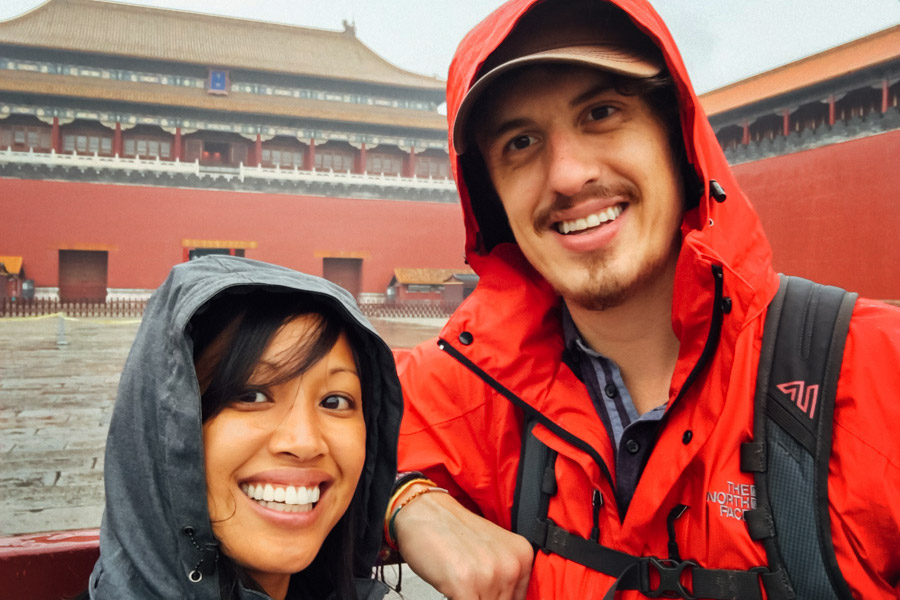
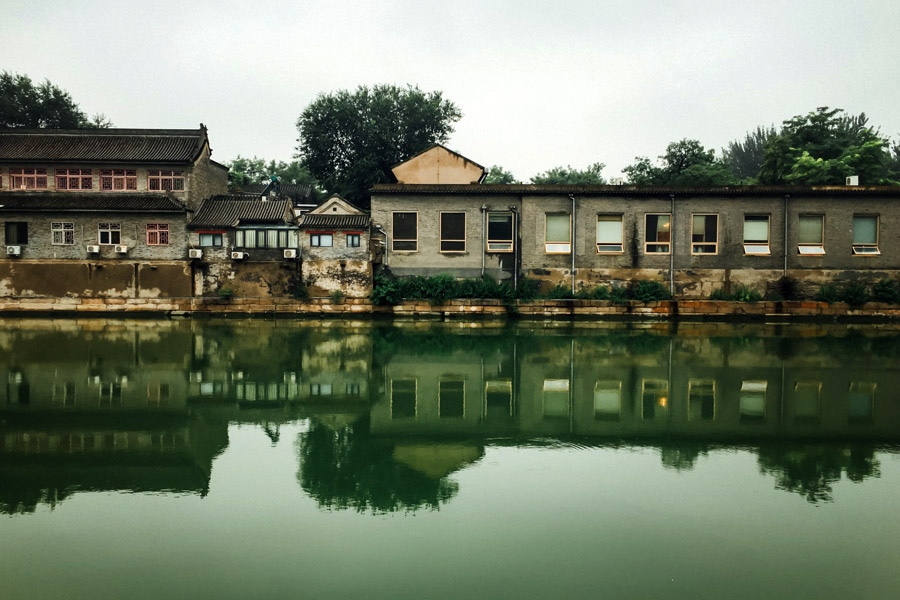
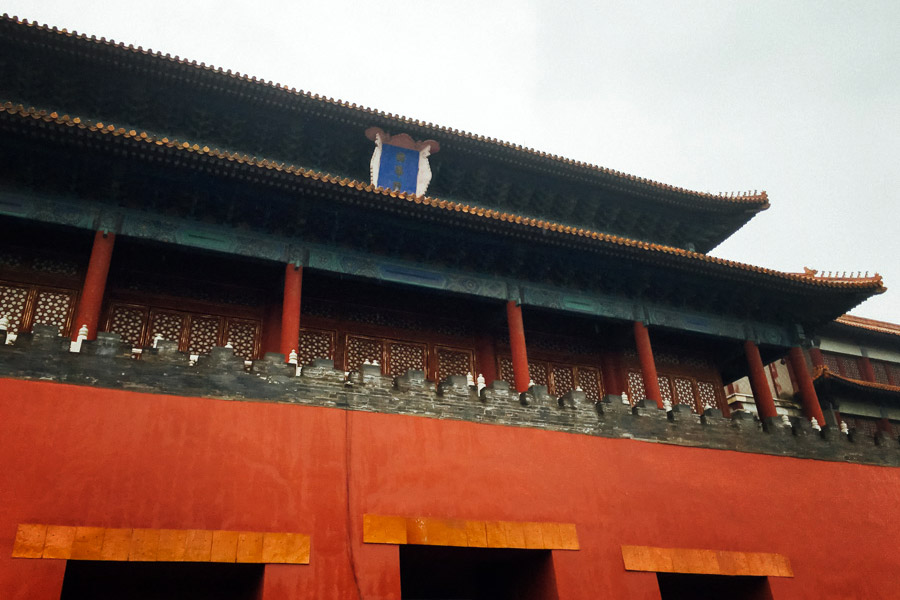
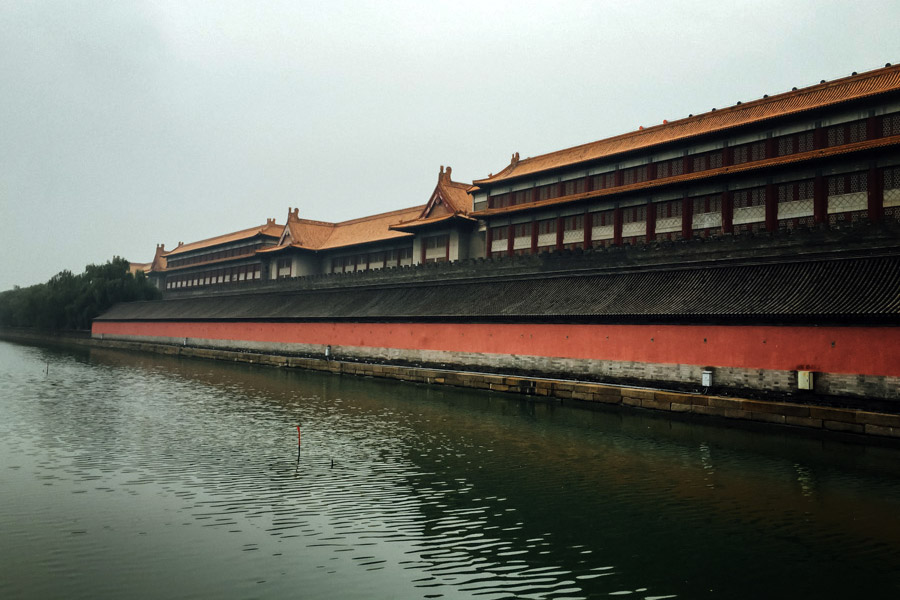
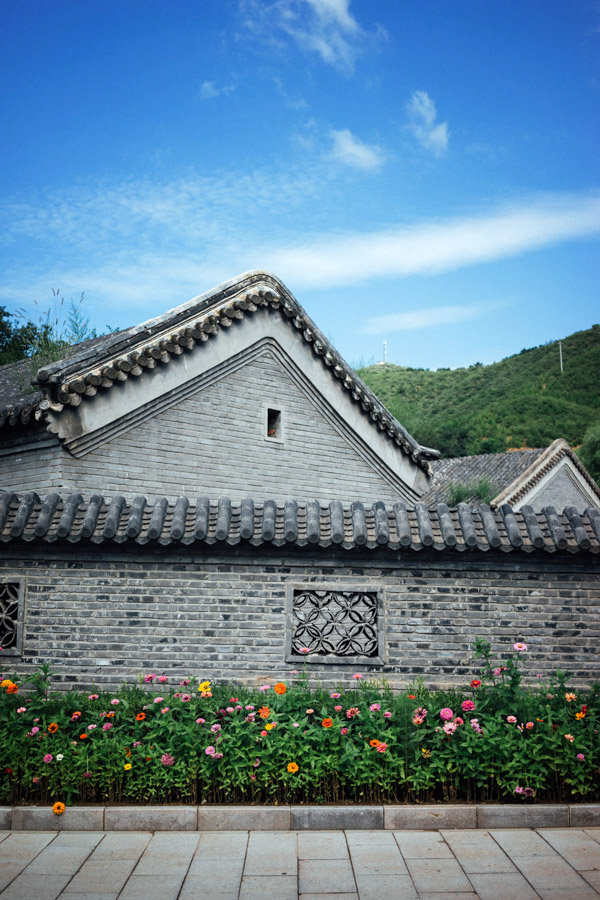
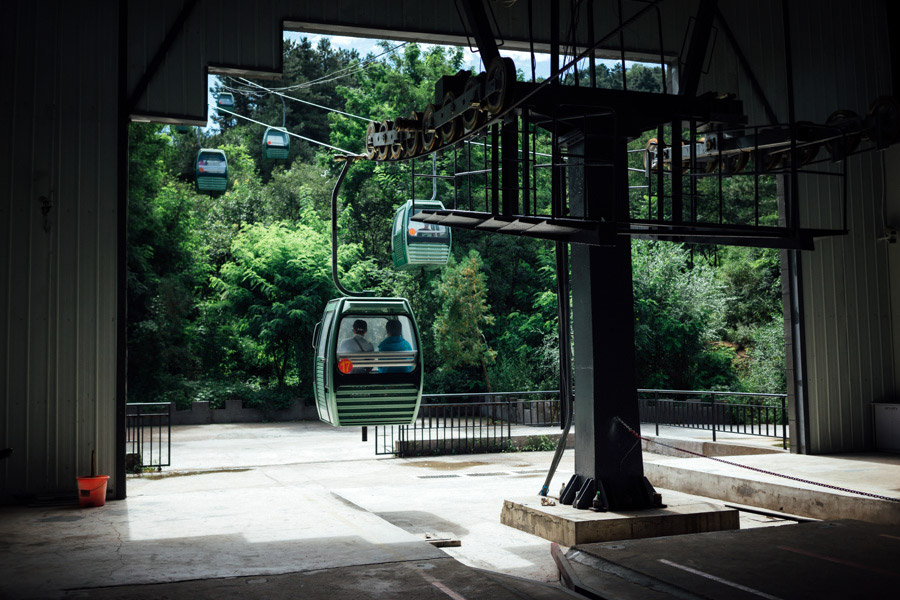
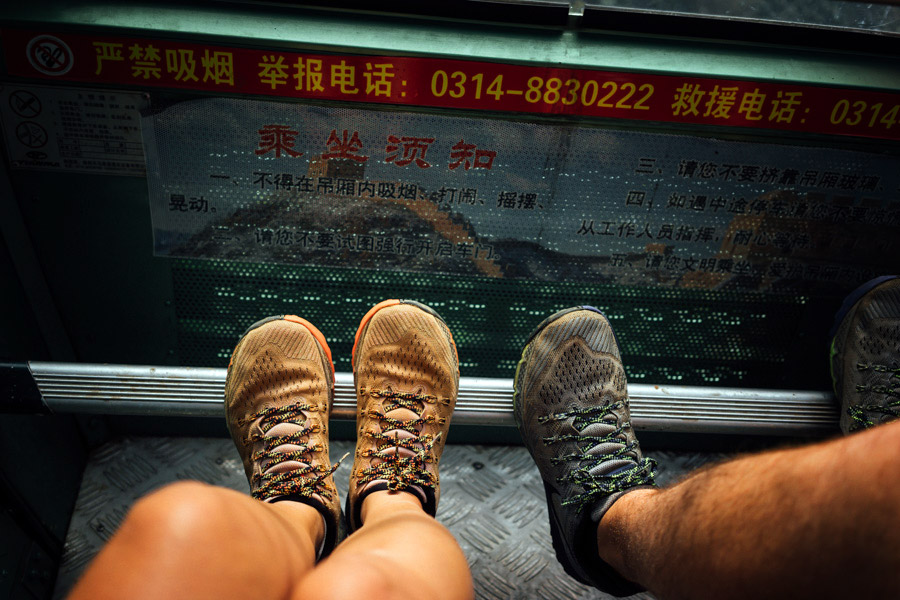
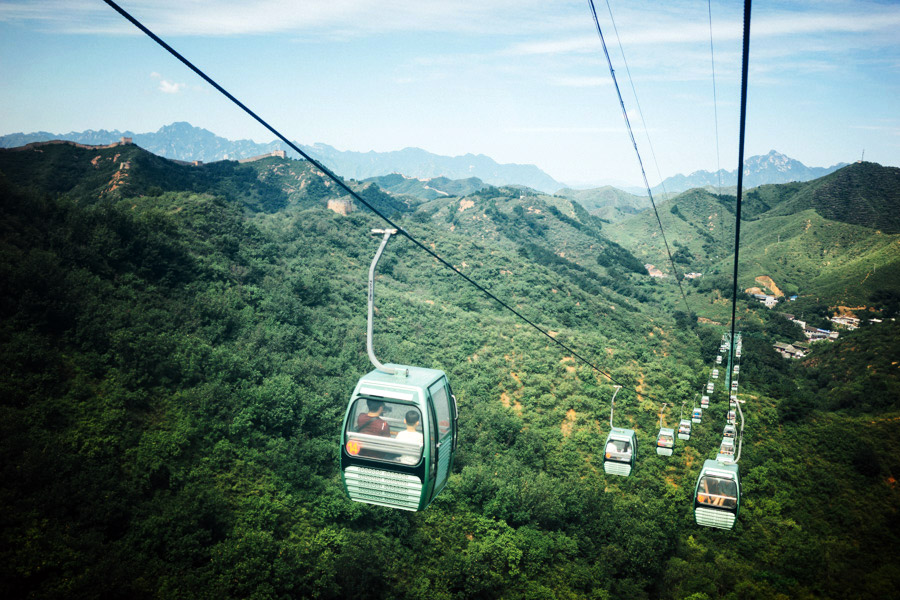
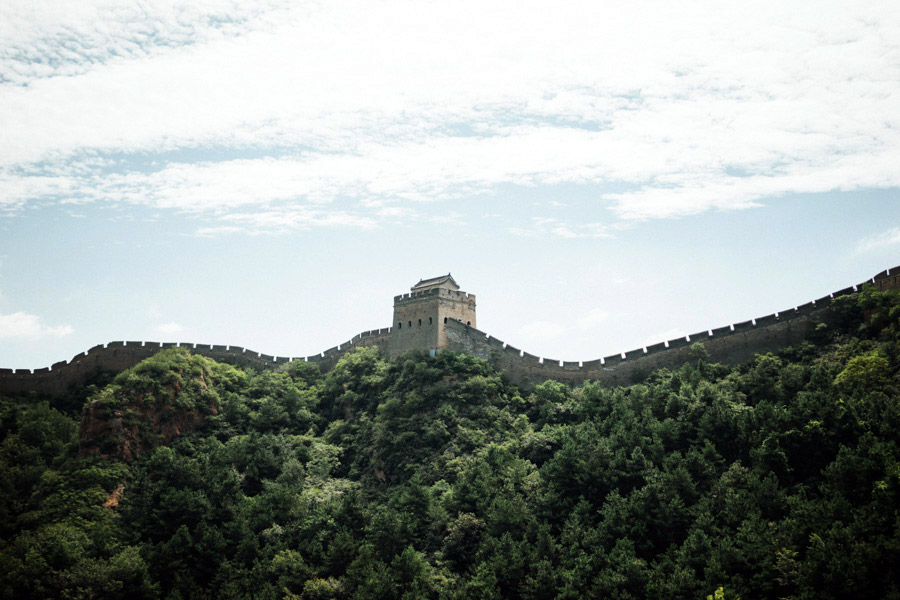
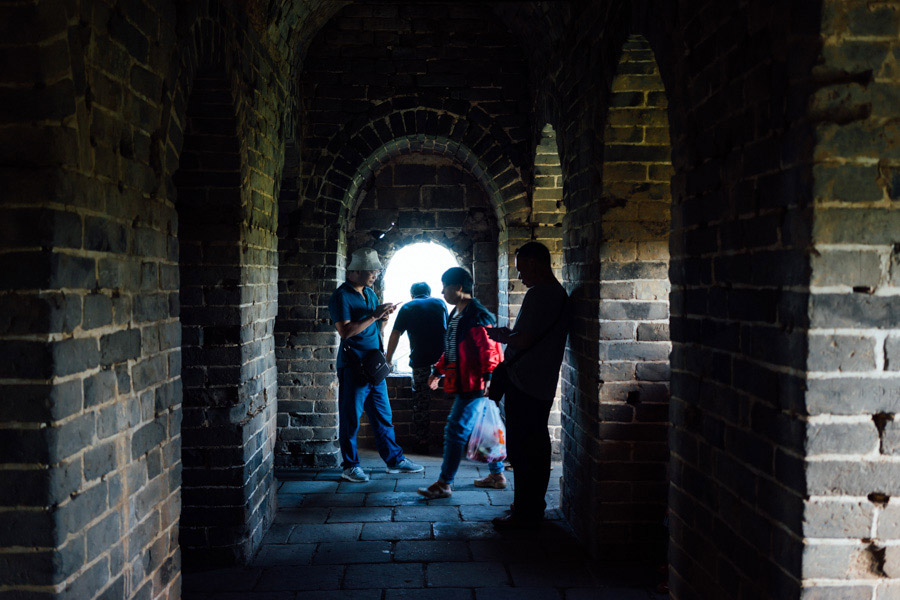
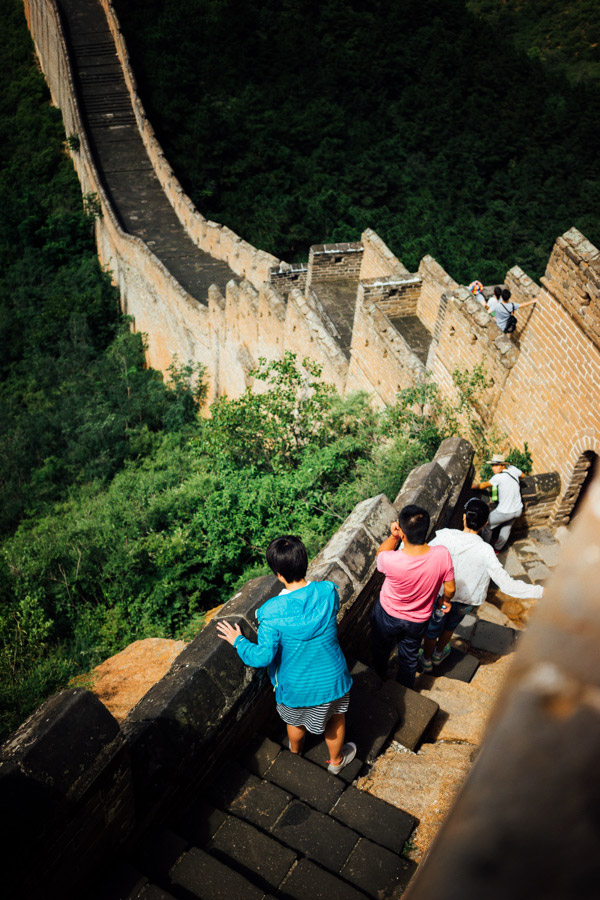
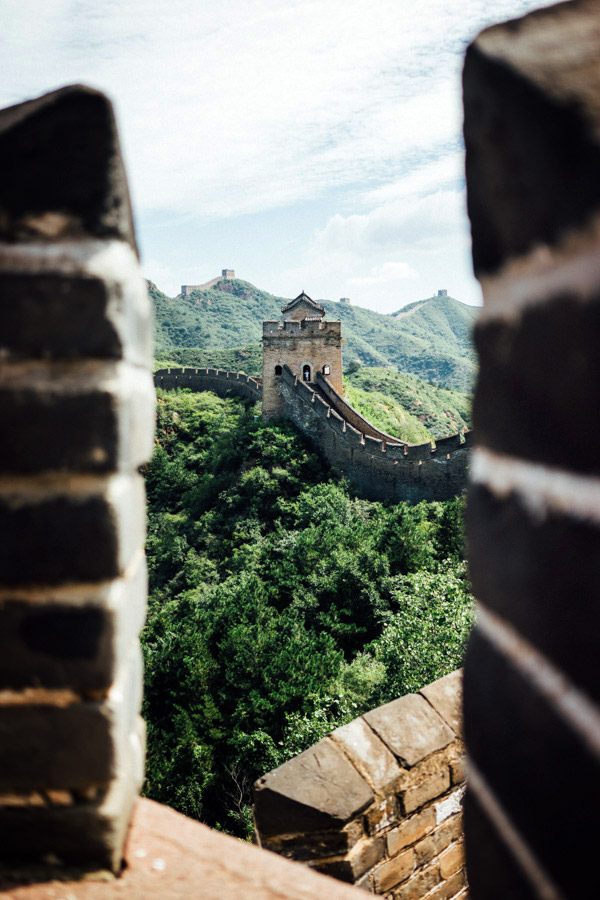
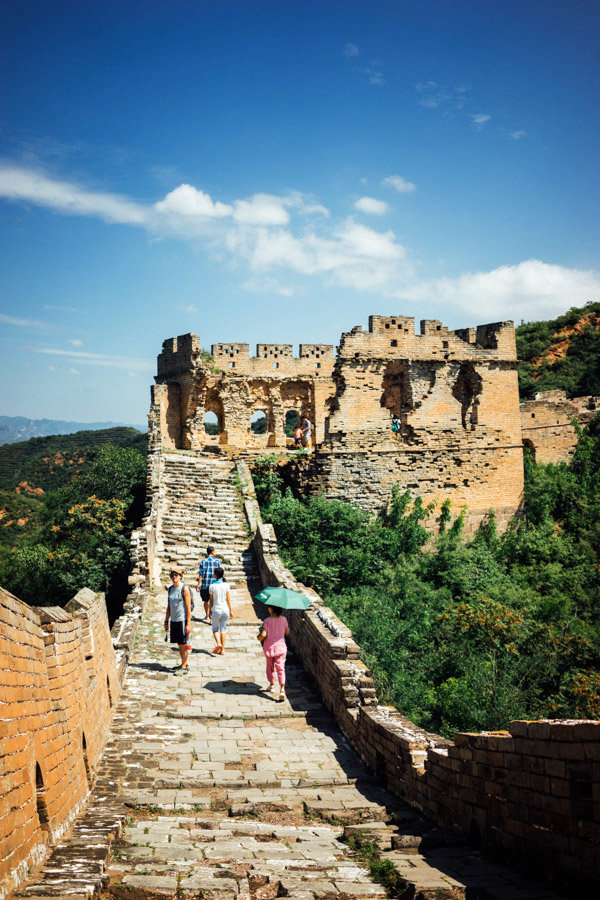
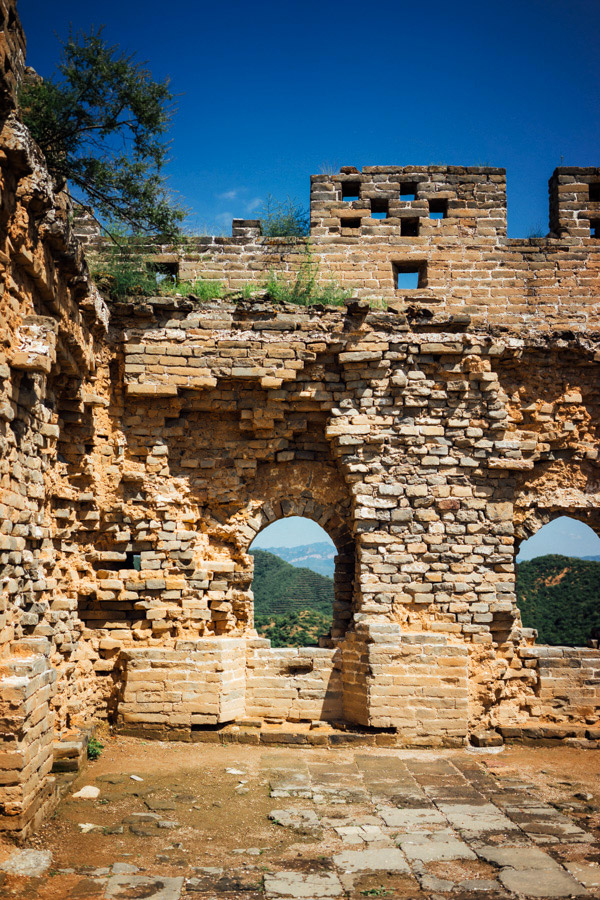
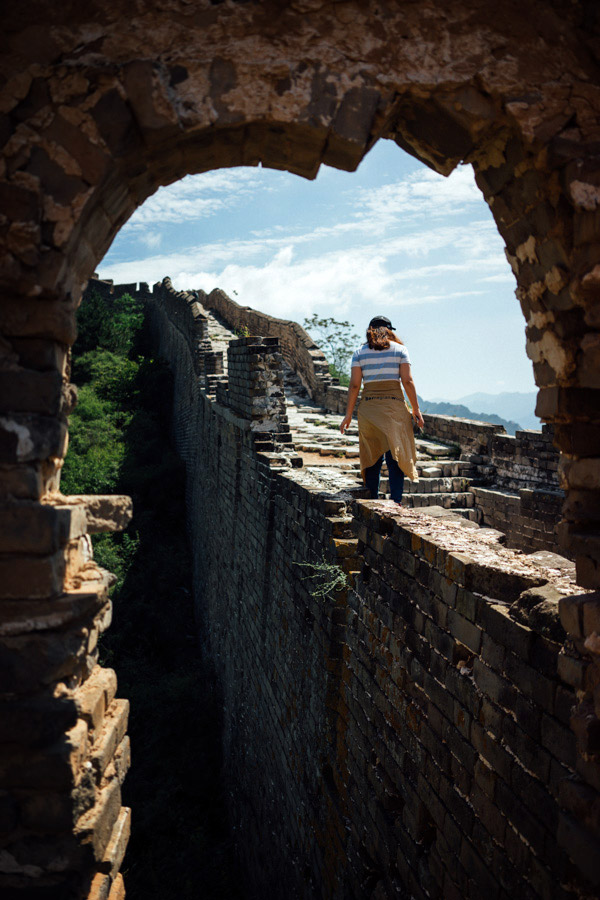
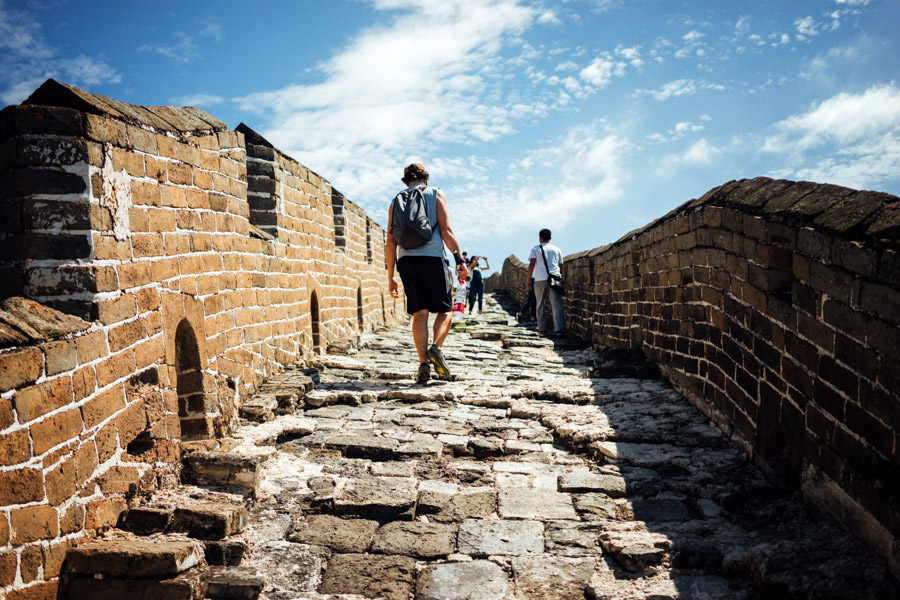
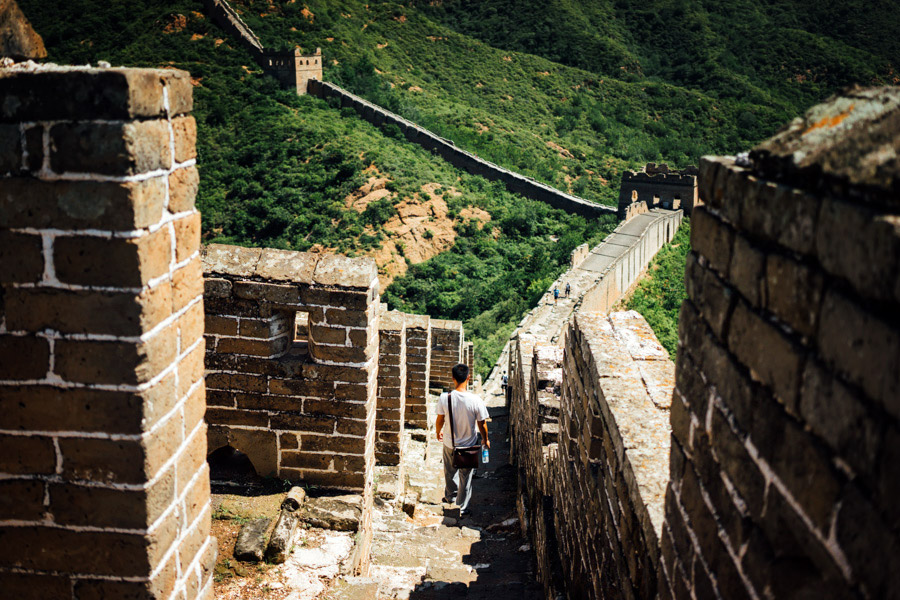
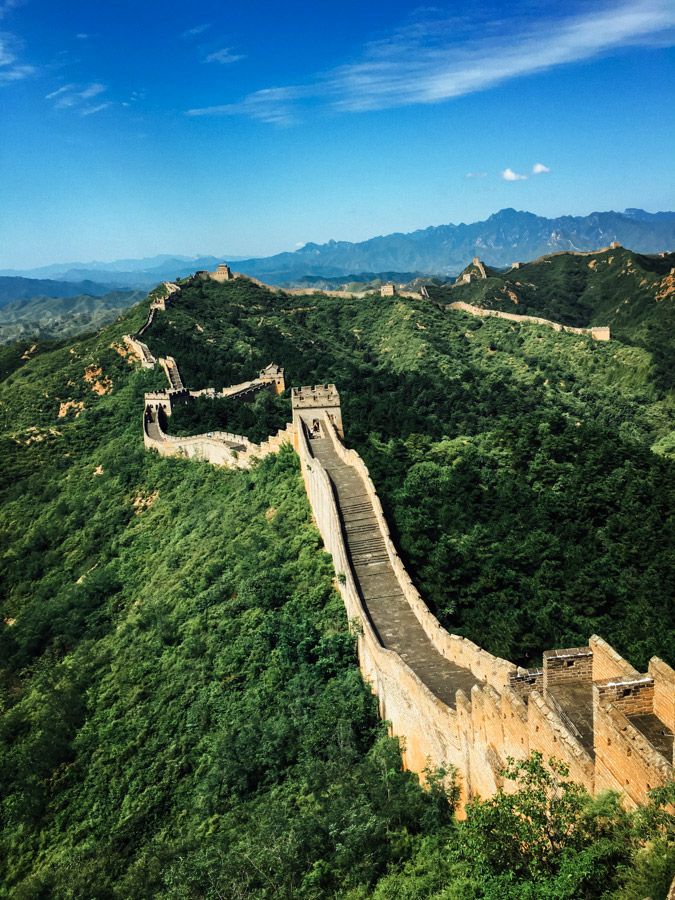
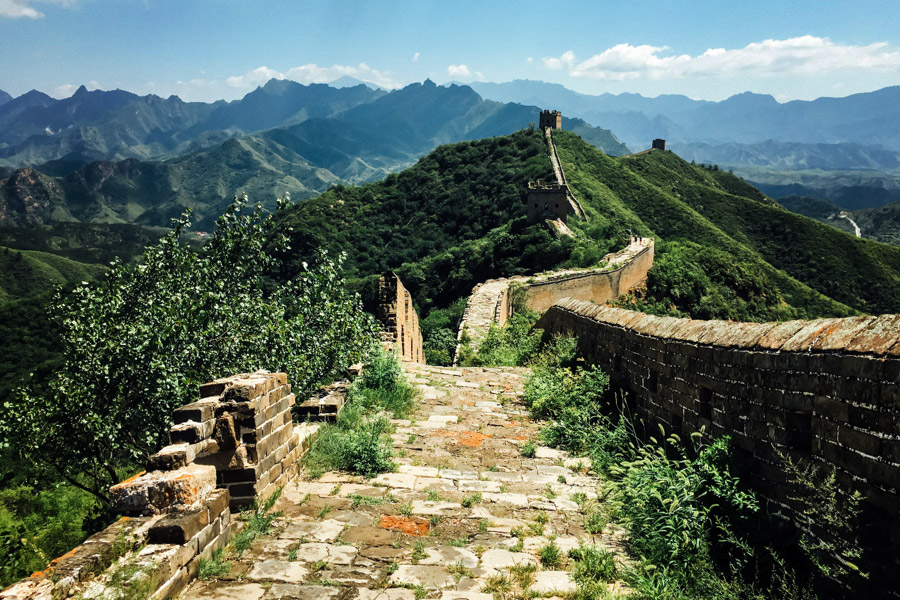
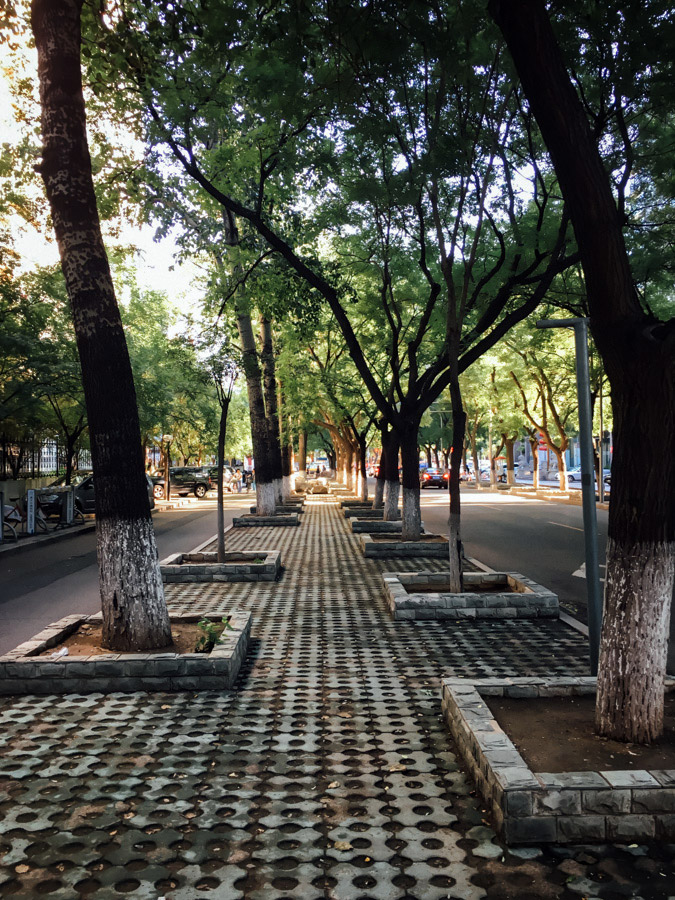
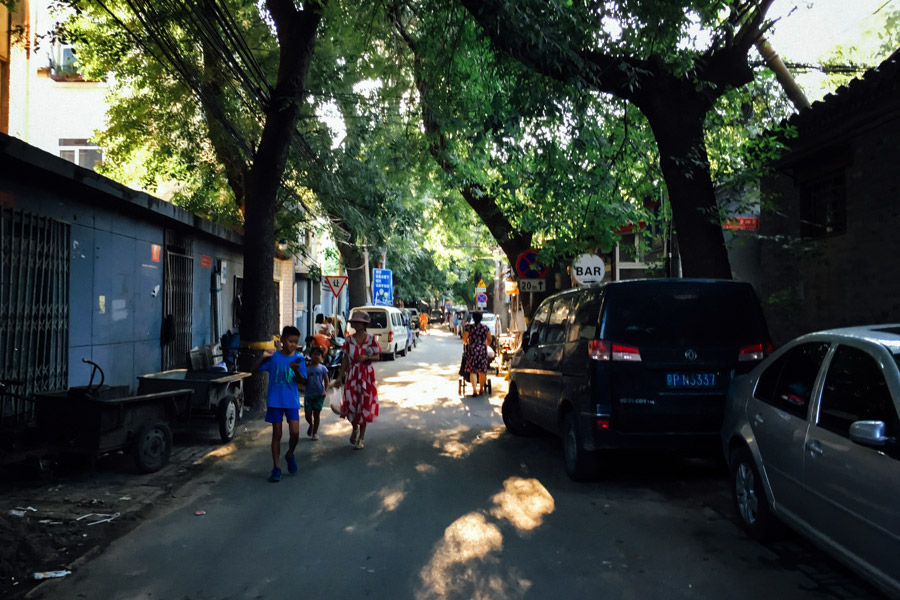
Xi’an
It’s already time to head to Xi’an. After buying tickets online for an early high-speed train, I convince Madie we can easily show up 20 minutes before the train leaves - it’s only a train station after all, and this is the practice in France. Too easily accustomed to the universal order we’ve experienced in Beijing, we were not prepared for the absolute chaos of the train station. Granted, automatic e-ticket dispensers do not work for us, poor holders of foreign passports, so we have to get in line and experience all the bad things we had heard about Chinese culture: Elbows, shouting and stressed out customers, long lines disrespected by many, scary grandmas yelling at us, with heavy backpacks, trying to make sense of the sign above the counter. We manage to get our tickets and jump in another line for security screening and run for our train, three minutes early, but two minutes too late. The guy at the counter shows me the sign - Sorry sir, we close five minutes before departure. Defeated, we return to the dreadful counters and wait in line for another ticket, ready to plead our case and beg on our knees (the tickets cost $88 USD each, a fortune for the backpacking traveler). After going through the wrong line twice, we make it to the right counter, show the new time we want and are immediately handed over new tickets, as well as $2 USD in refunds. As it turns out, we could have changed the tickets immediately. Exhausted, and with six hours to wait, we (subconsciously) land at Mc Donald’s, with coffee and a blueberry muffin.
We arrive in Xi’an after the six-hour train ride across the empty countryside. We skillfully walk around the fake taxis touts to the real ones. Xi’an welcomes us with smells of lamb, rose water and barbecue. This is one of the few regions in China with a Muslim community, resulting in one of the best mix of cuisines we’ve had - Chinese flavors with Middle-Eastern spices. Lamb quarters are hanging every few steps, slowly carved by the cook, the skewers are renowned throughout the country (well deserved) and perfect with a bowl of the local bread soup. The food is delicious, unlike anything I was prepared for, and very, very spicy. At the end of the meal, I treat myself with yogurt, a new tradition picked up here, where the drinkable yogurt bottles are found everywhere.
We get on a local bus to the Terracotta soldiers, thankful for the previous research as we see a long line for one bus number and almost none for the second (there are actually three buses going there). As in most places in China it seems, we’re the only western tourists. We get the occasional stare, the picture with a local, and no preferential treatment. After a walk through the park, we finally enter a large hangar, full of 2,000 soldiers, horses, and carriages - each made of clay, and buried here with the Emperor Qin Shi to protect him in the afterlife (much, much better than sacrificing slaves). It is believed that more than 6,000 will eventually be uncovered; the site, more than 2,000 years old, was only discovered in 1975 when farmers were digging for a well.
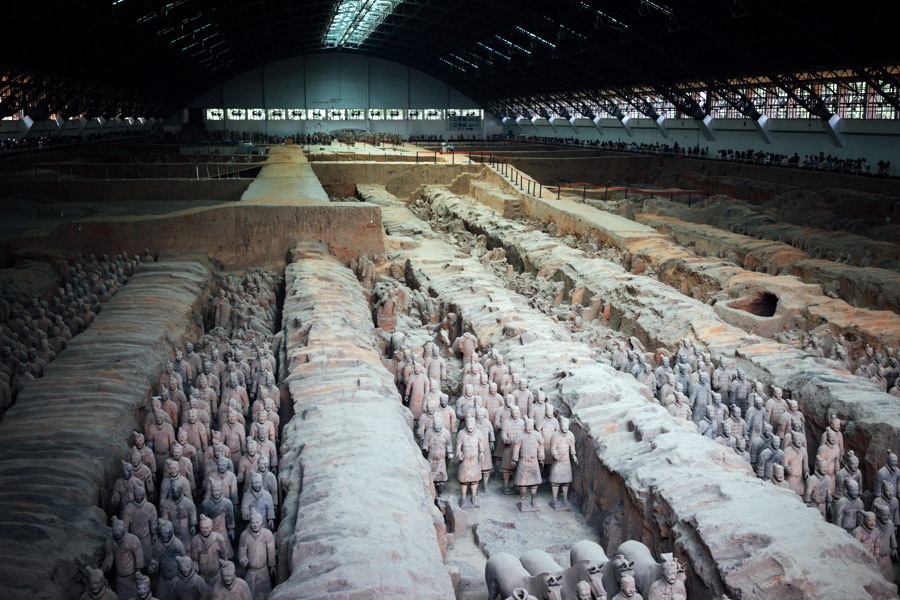
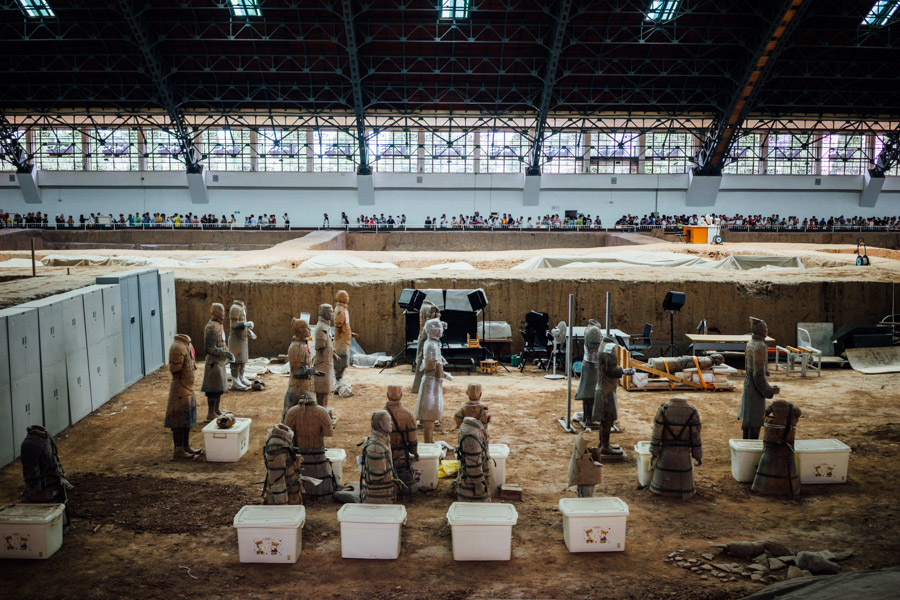
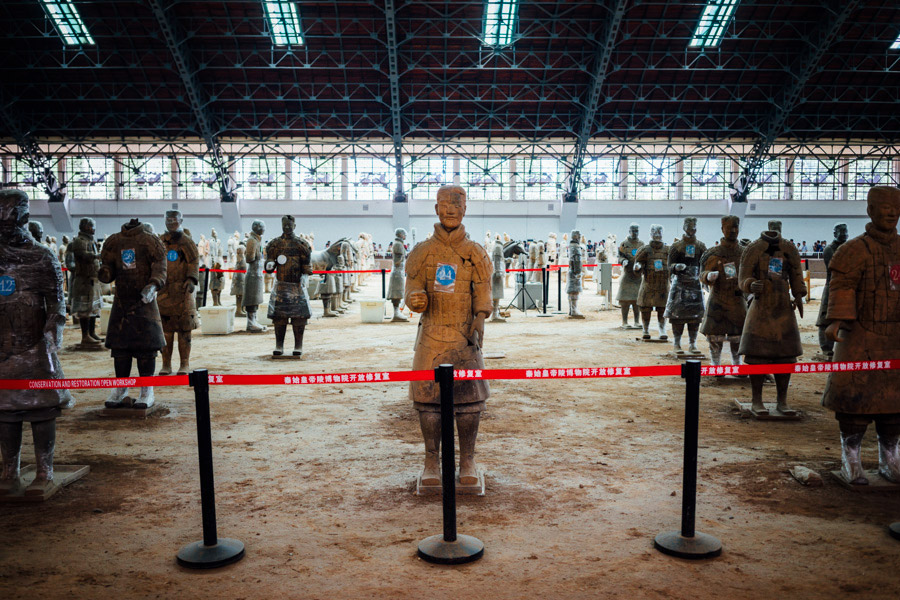
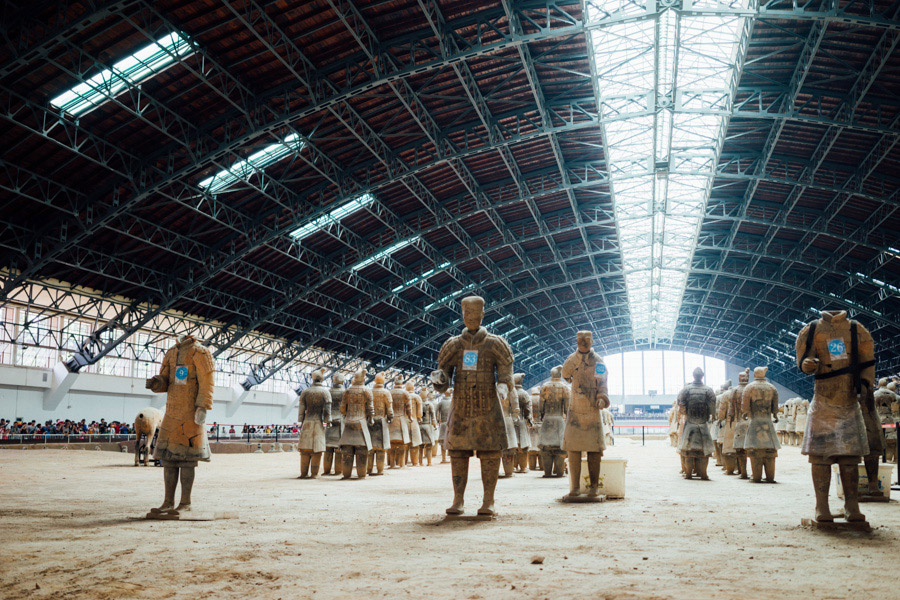
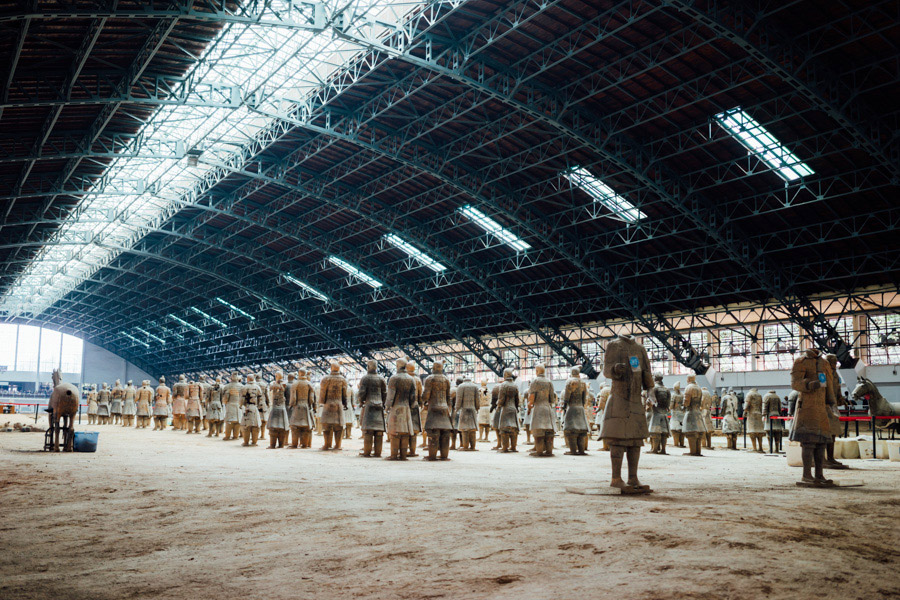
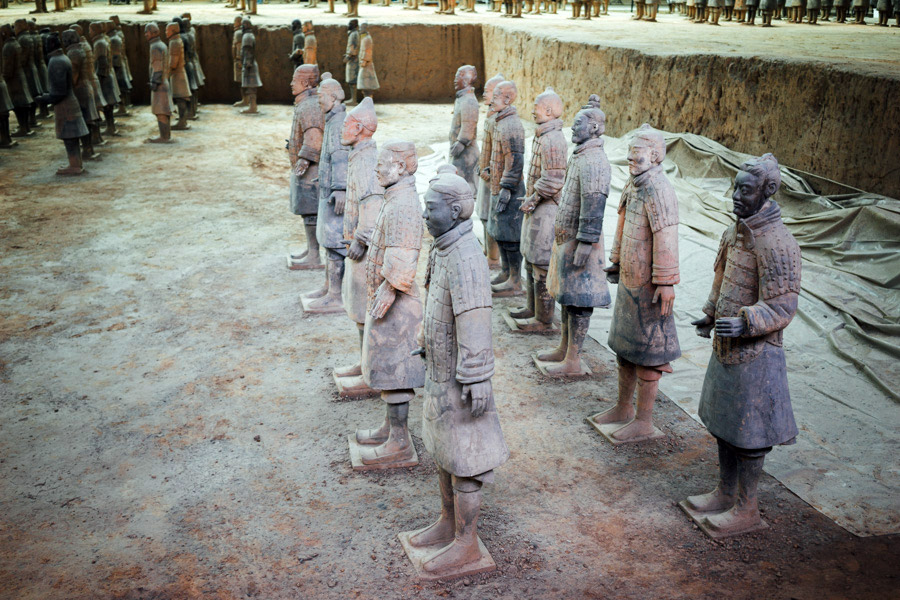
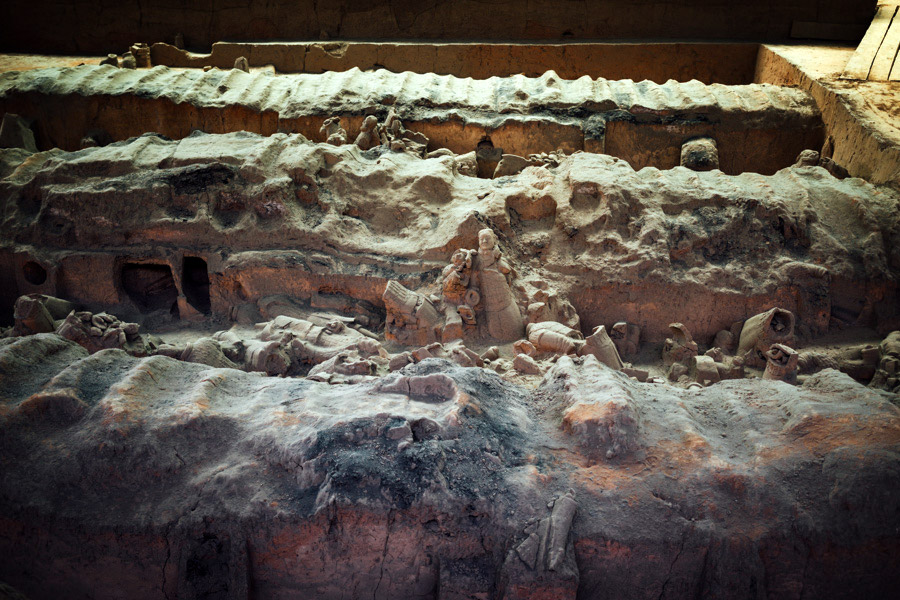
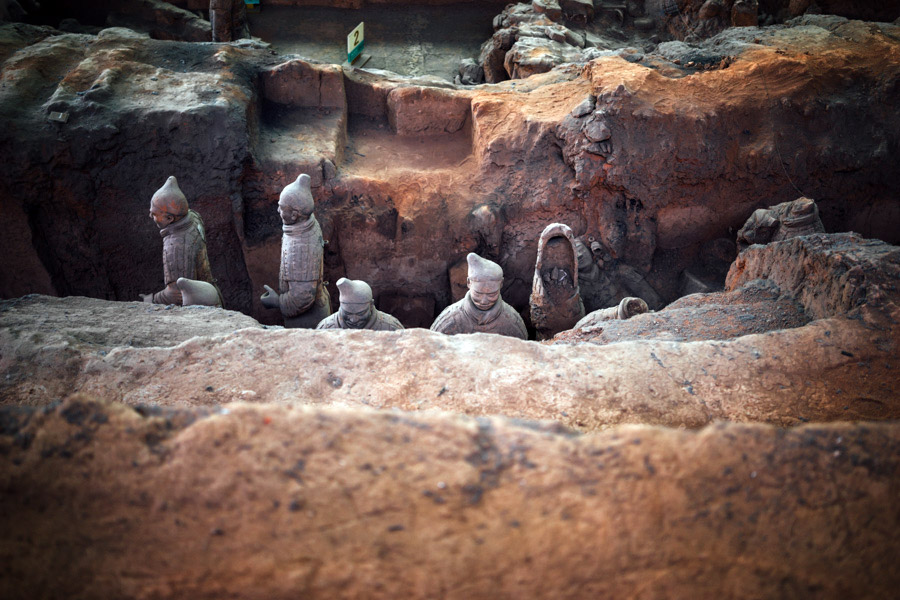
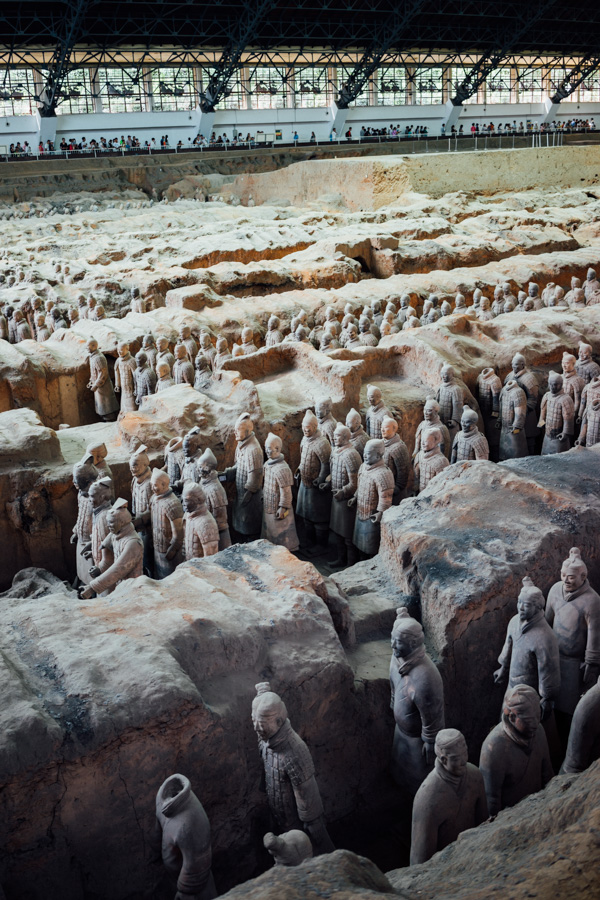
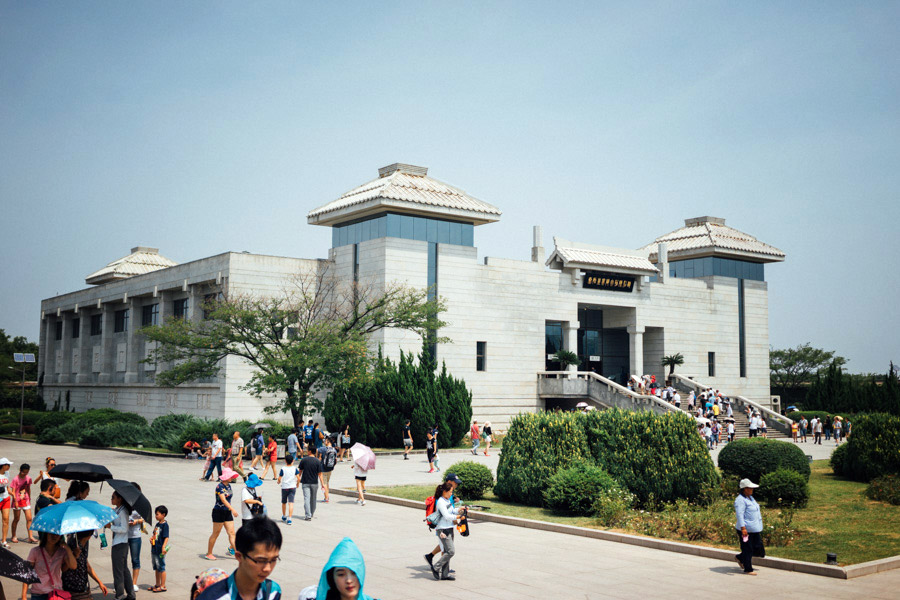
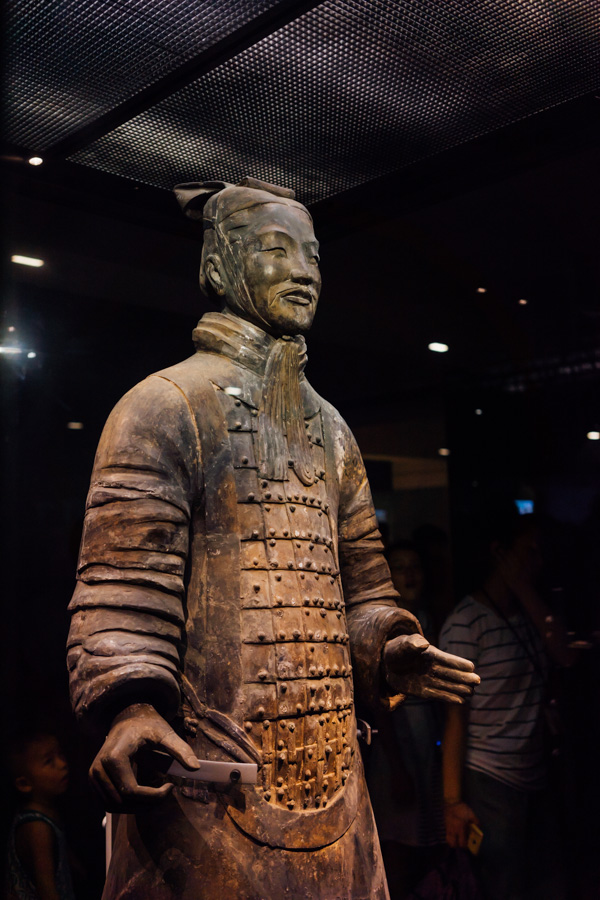
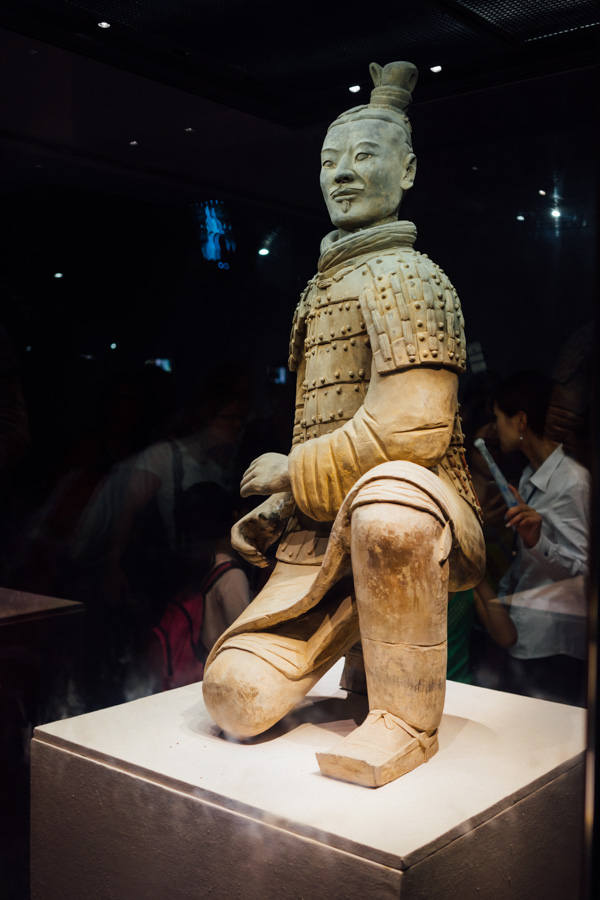
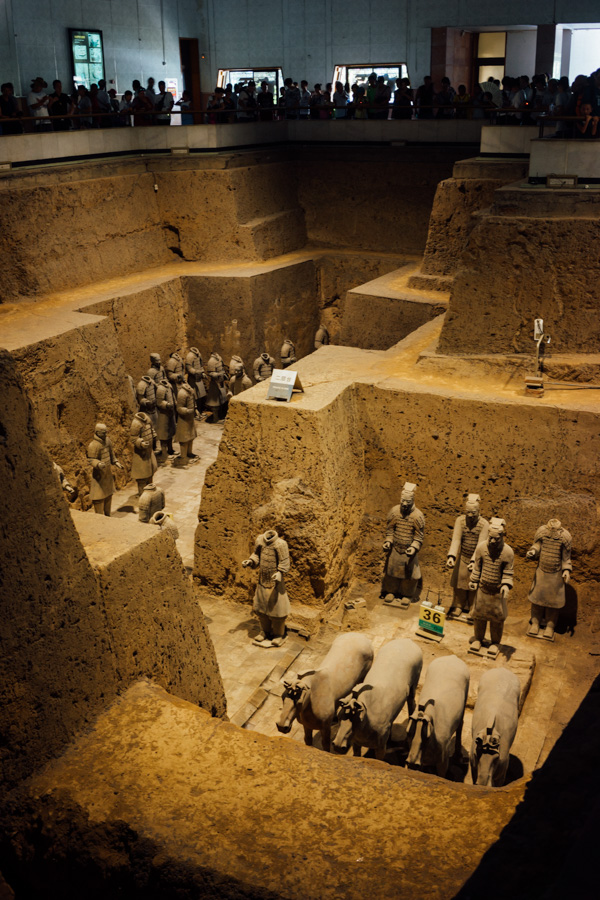
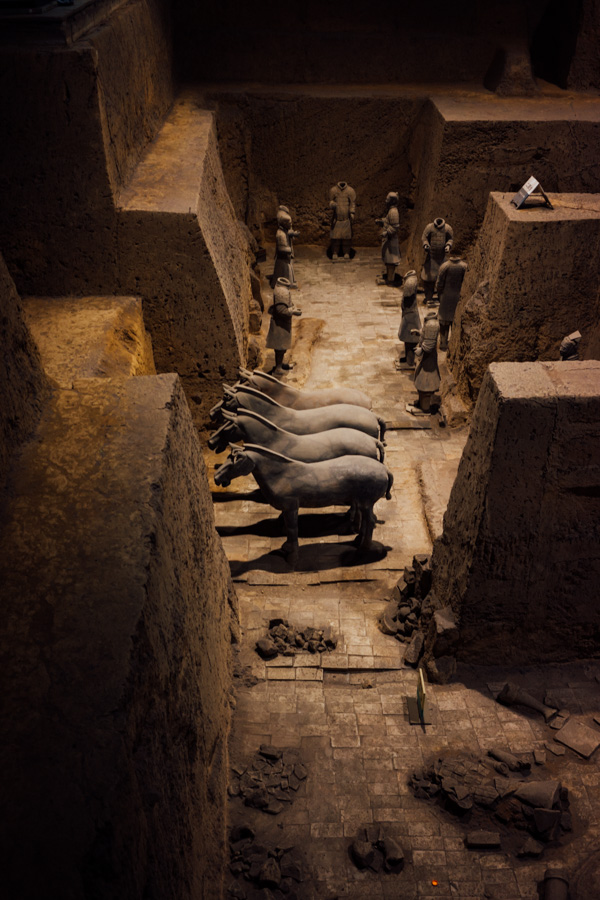
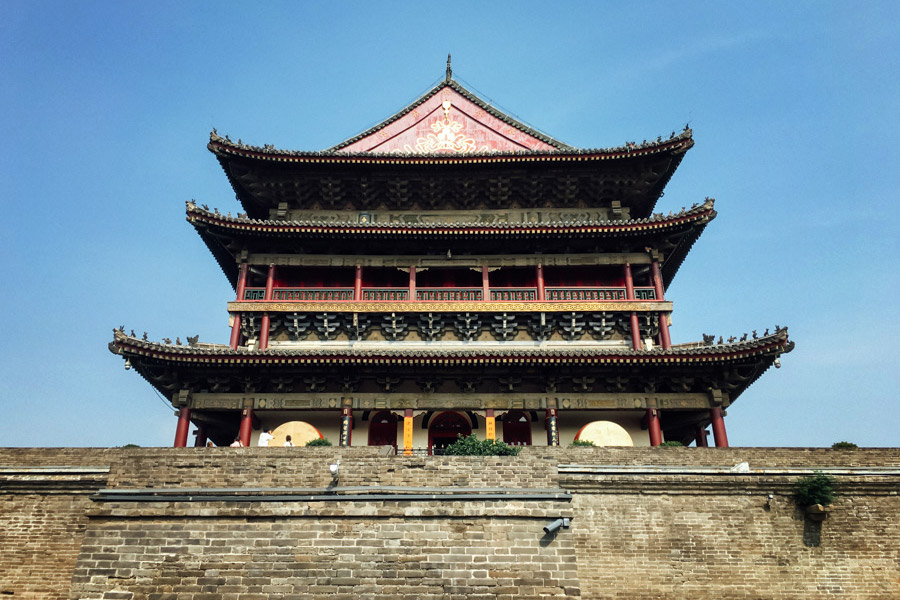
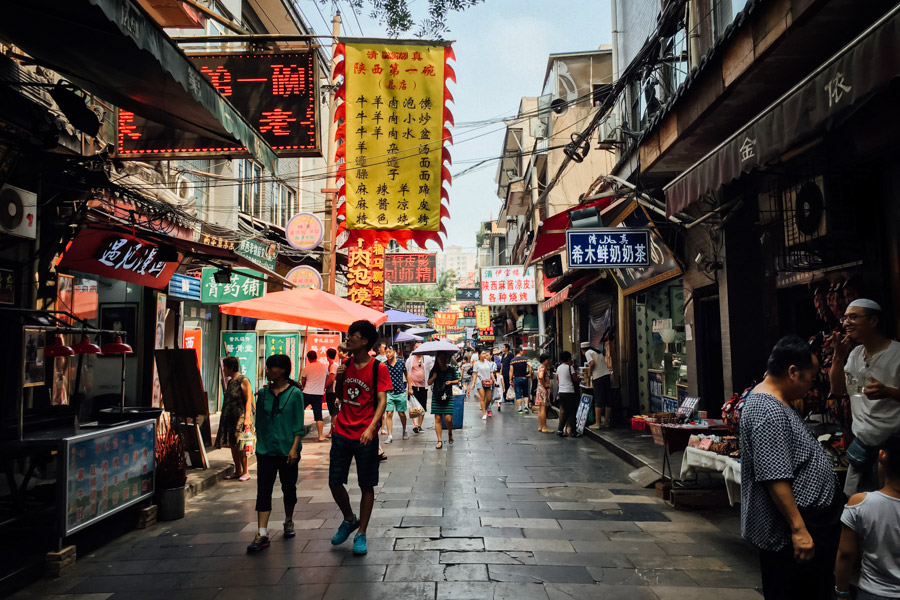
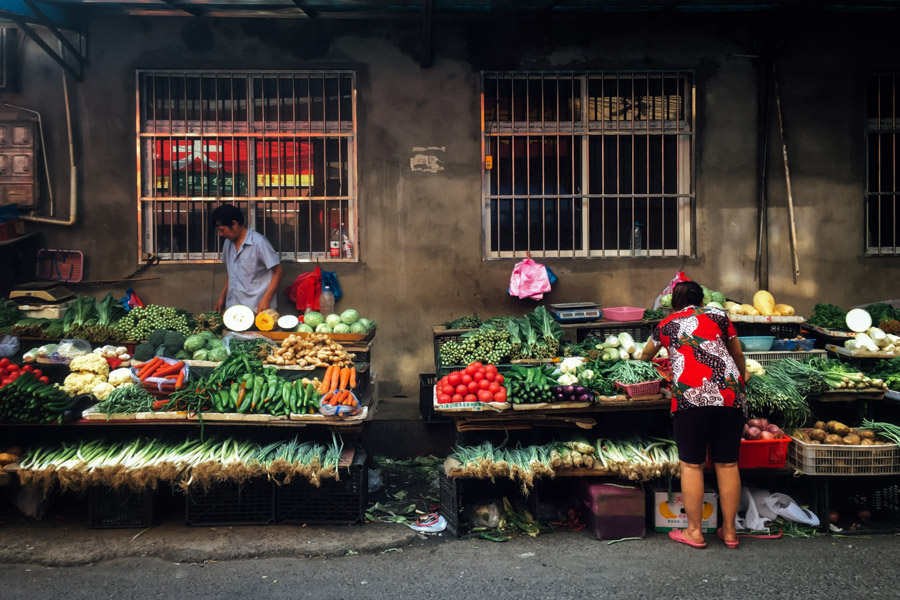
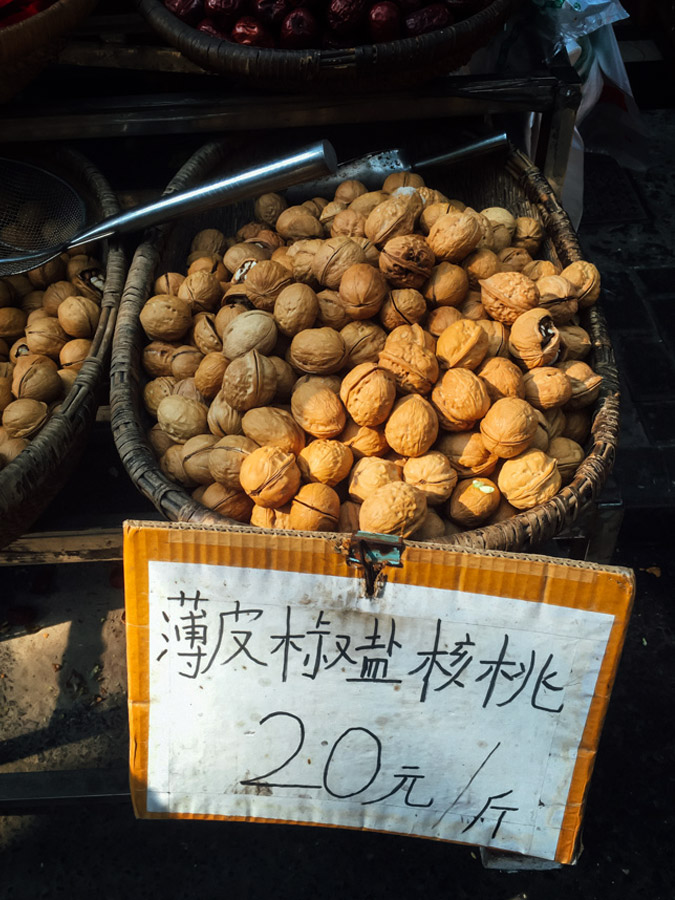
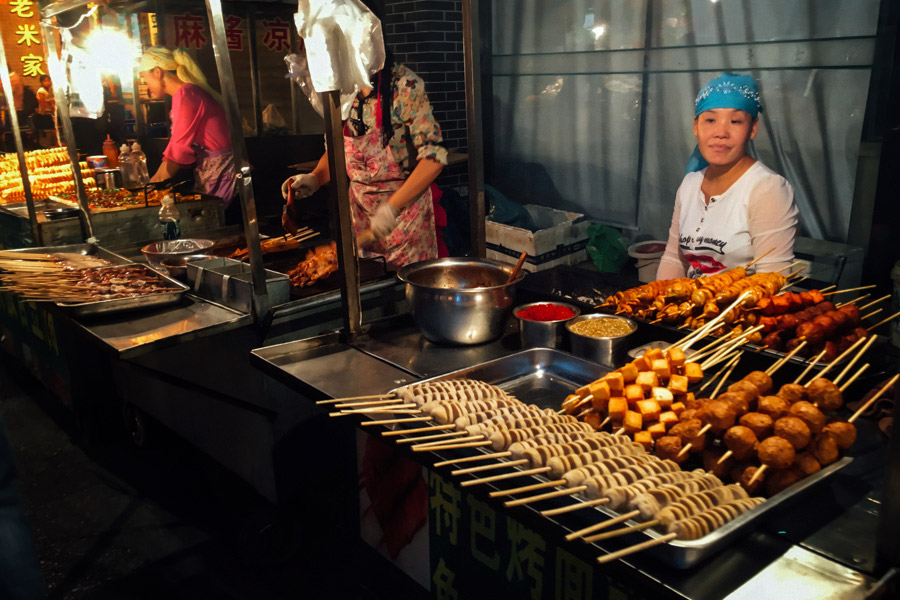
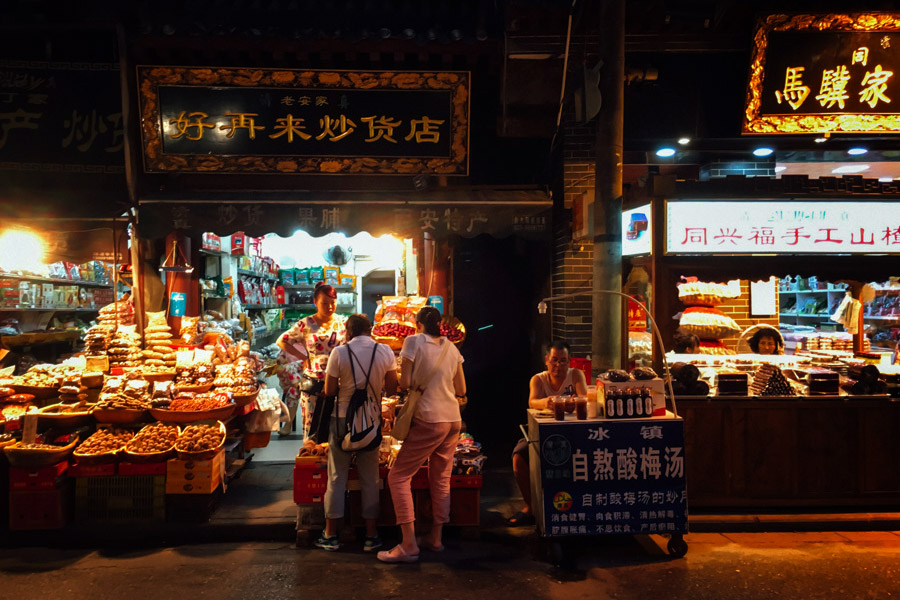
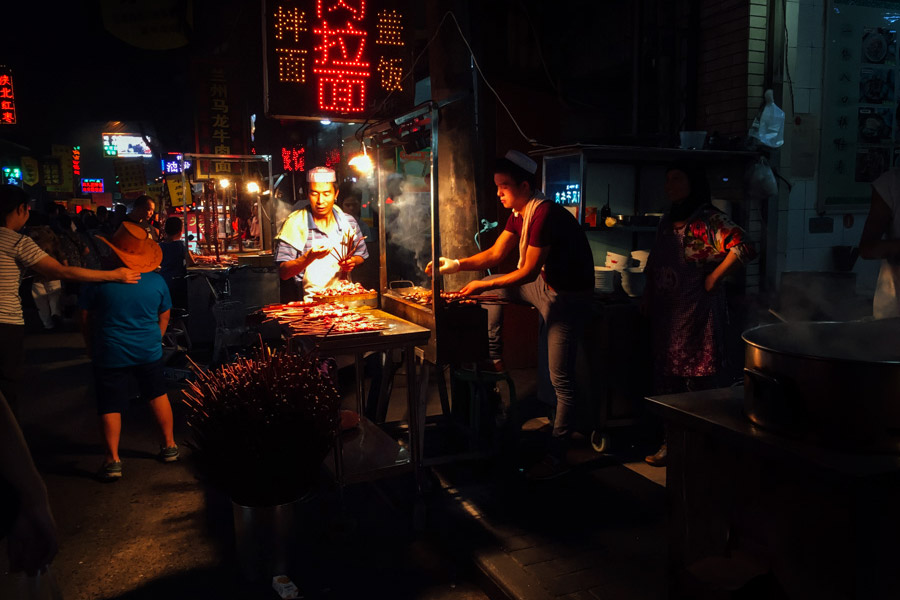
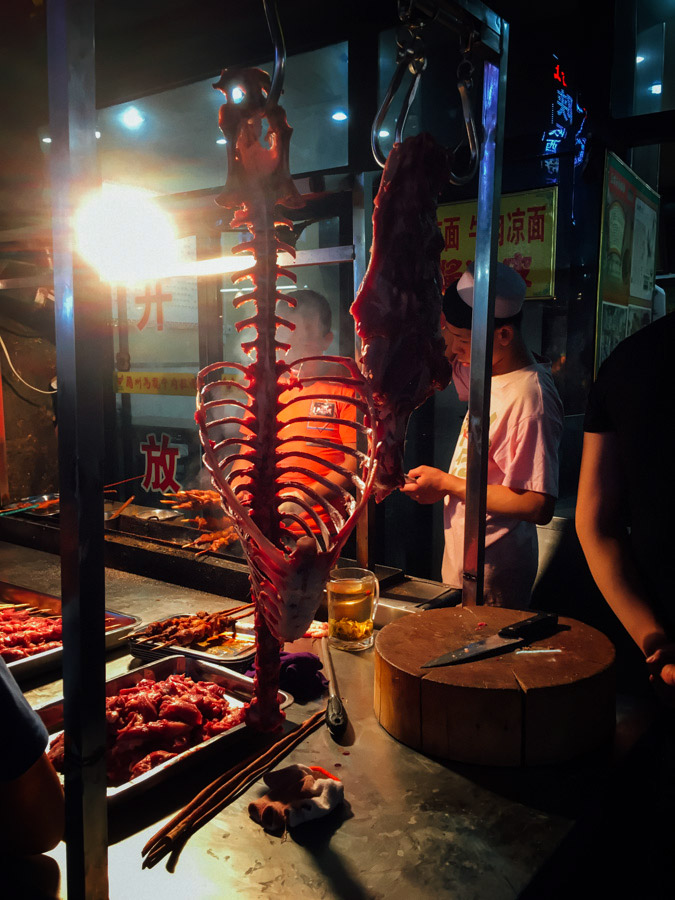
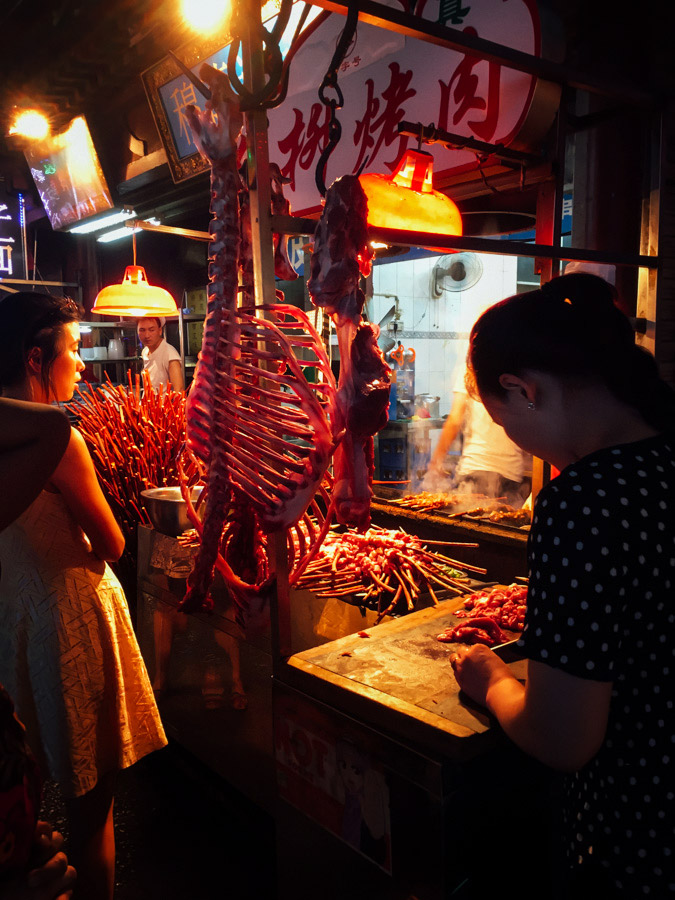
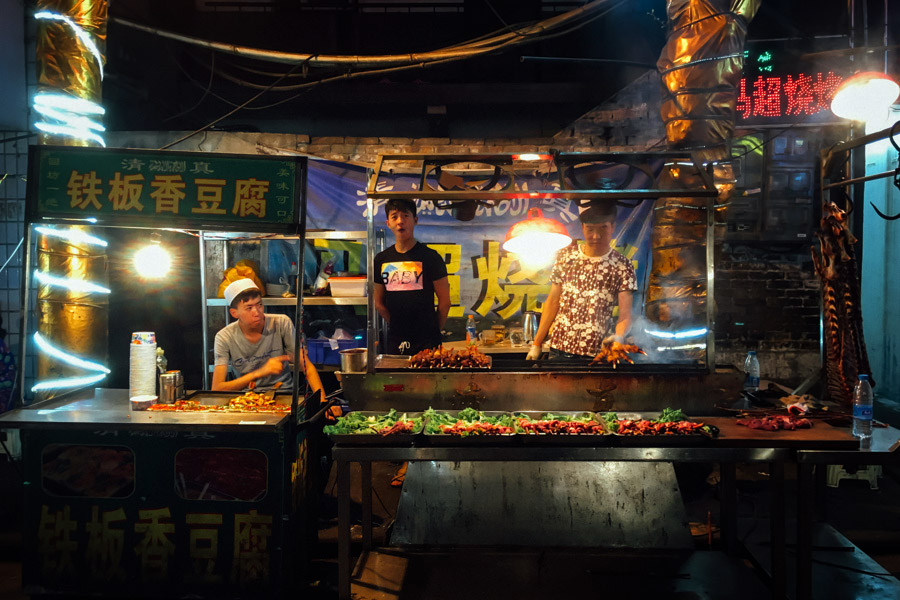
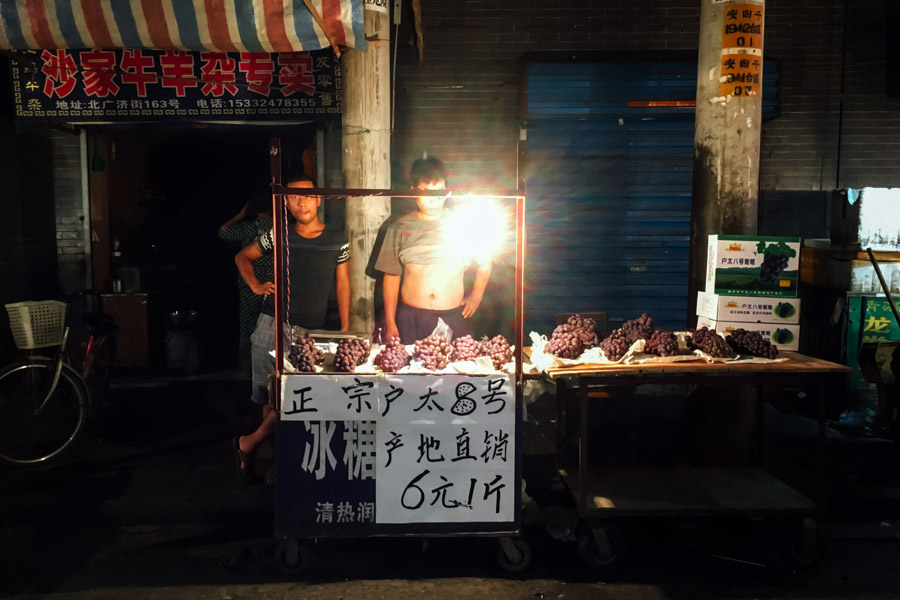
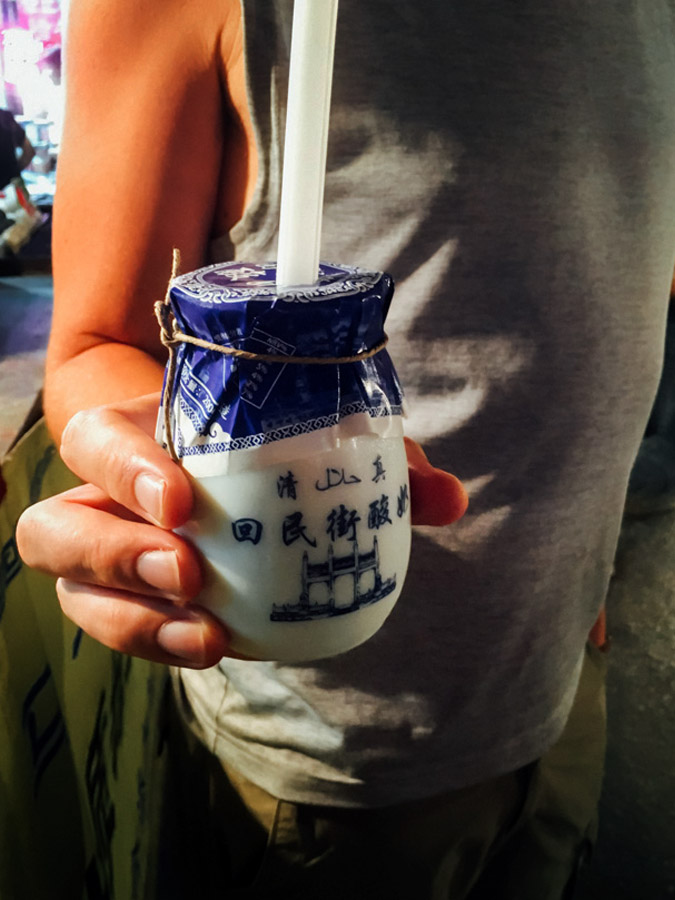
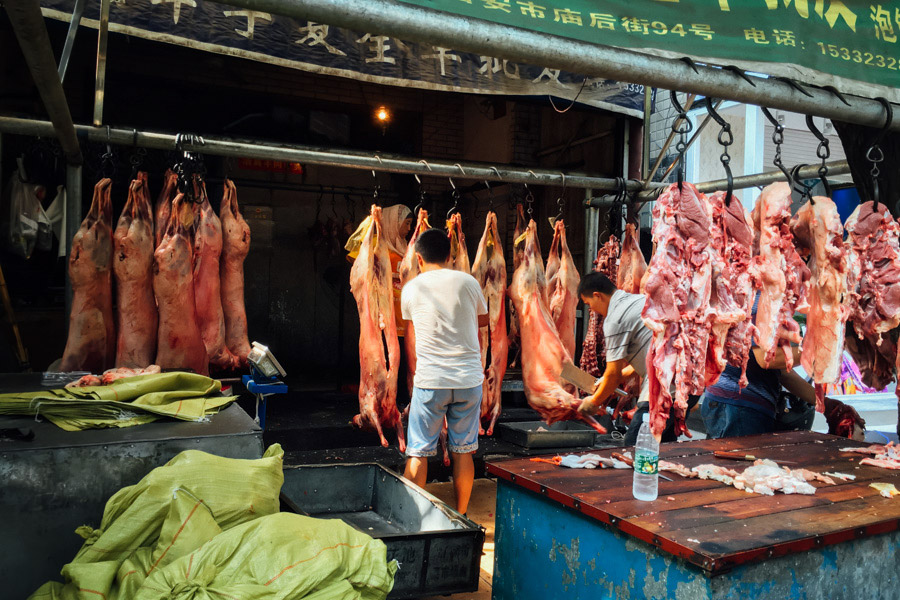
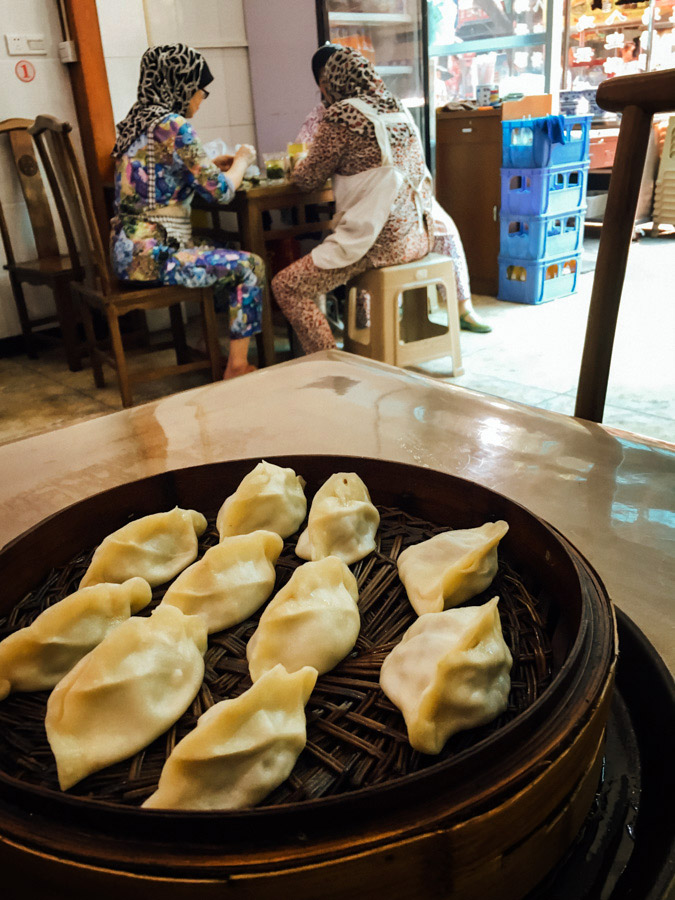
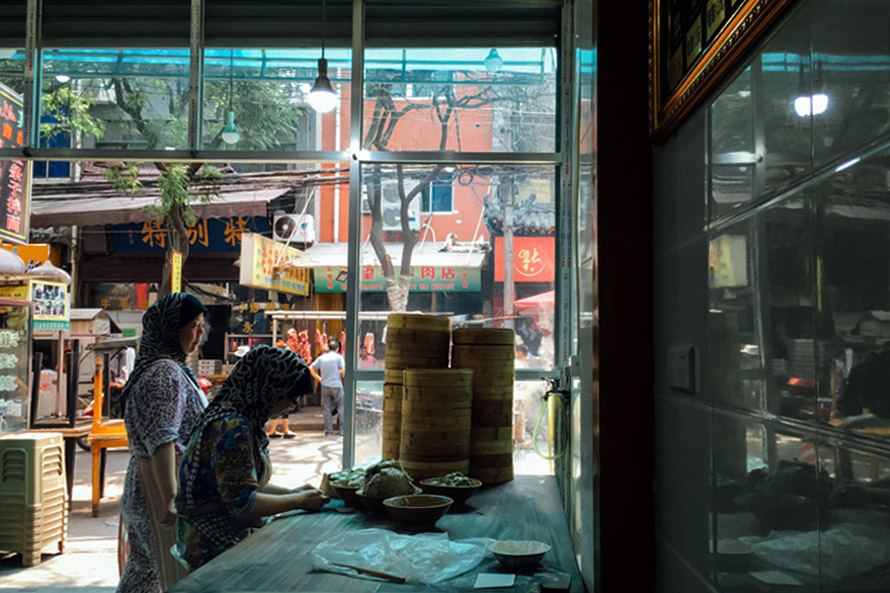
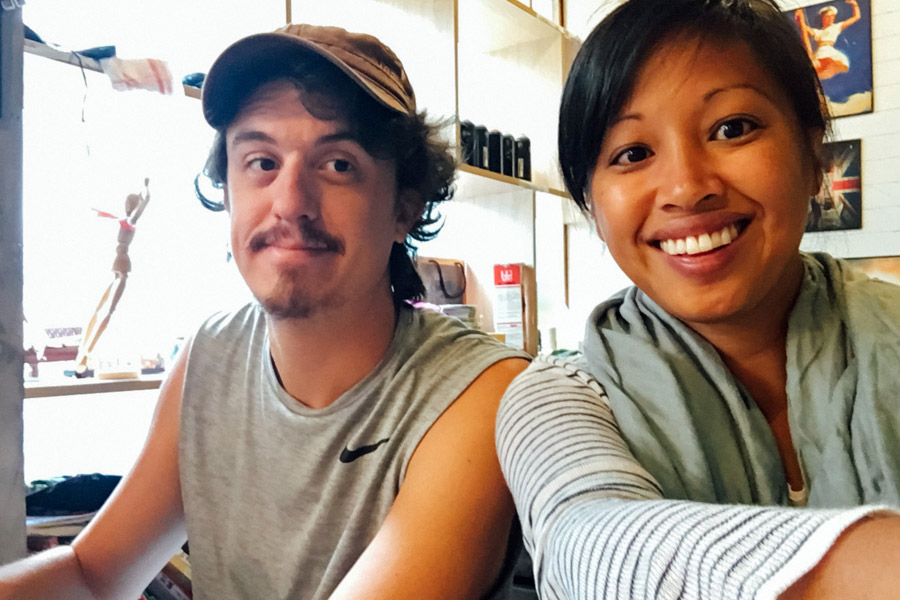
Zhangjiajie
A short flight takes us to Zhangjiajie in the province of Wulingyuan, close to the national park of incredible forests and pillar formations. We’re at a second tier entrance, quieter, and hosted by the nicest lady with a butt naked baby who seems particularly interested in me and my sunglasses. We explore the park walking amongst tall narrow earth towers created by ice, millions of years ago. The green of trees at the top of each pillar contrasts with its beige, brown and purple colors - the haze in the morning always replaced by a bright blue sky for the rest of the day. A couple gondolas make for incredible rides between the natural columns, unfortunately overflooding the park with local tourists as if we were in a theme park. But it is easy to escape, walk amongst skyscraping trees and cliffs (with the occasional phone blaring music).
After three days of hiking, Madie and I have dinner at the guesthouse, exhausted, happy, and of course sharing a beer. The host’s mom gently offers a meat dish for free, and the following discussion ensues.
“What is it?” I ask.
“Meat. Wild.”
“Wild? Wild animal?”
“Yes.”
“A boar? Deer?”
(She looks on her phone for the translating app).
“Doh.”
“Doe?”
“Doh. Wild Doh.”
“Doh? Dog??”
“Yes! Dog!”
It is in fact, wild dog, caught by a trap - a cause for celebration, so they’ve invited the only two neighbors. Her son shows me the picture of the trapped creature on his phone. A real treat.
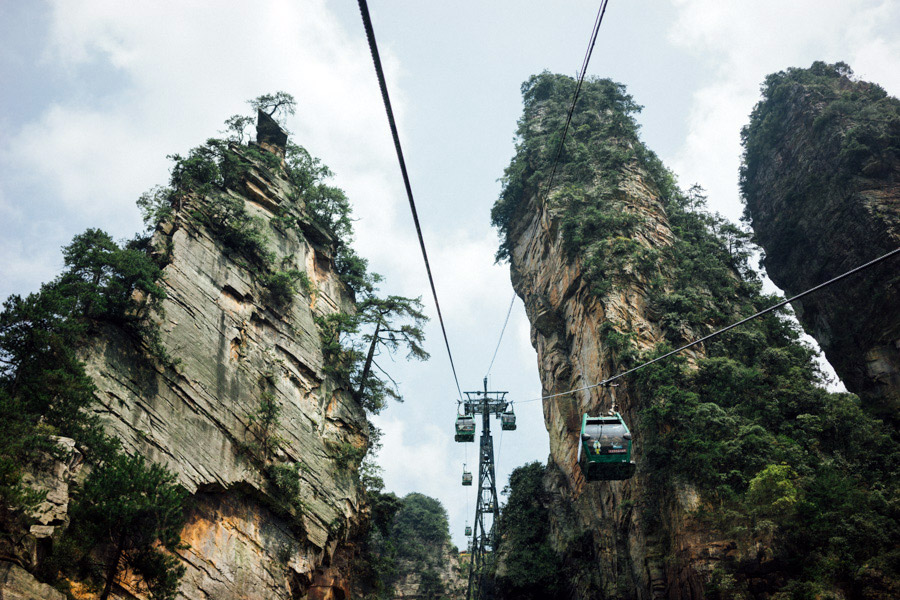
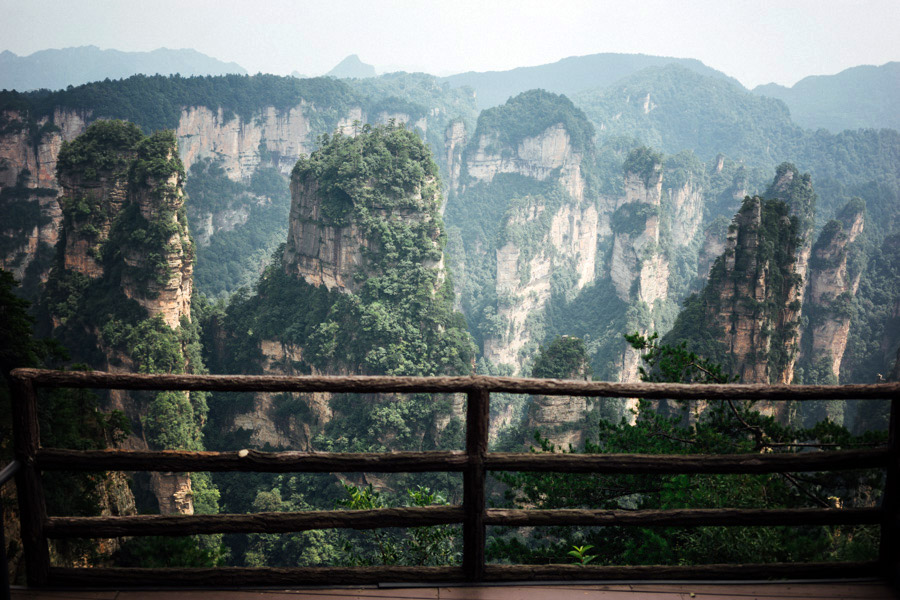
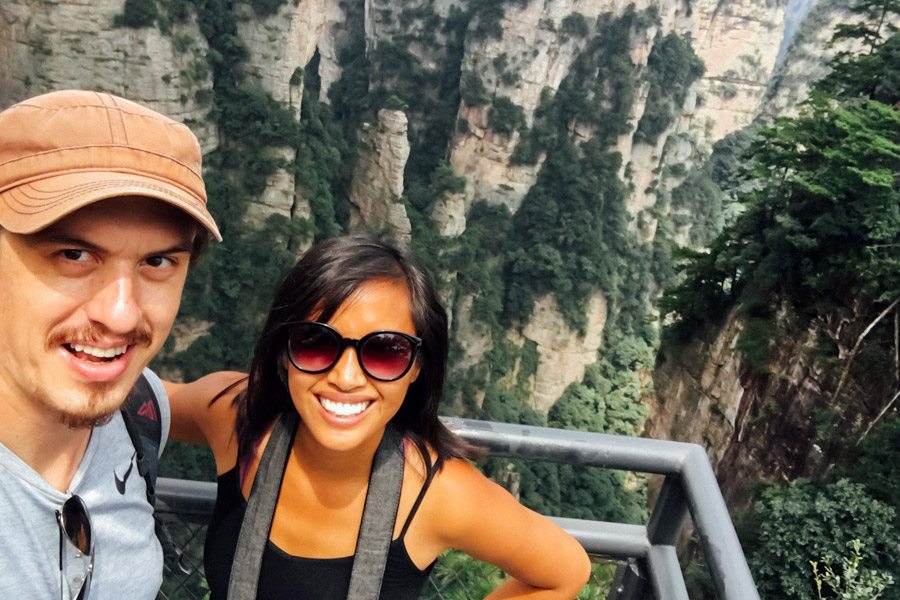
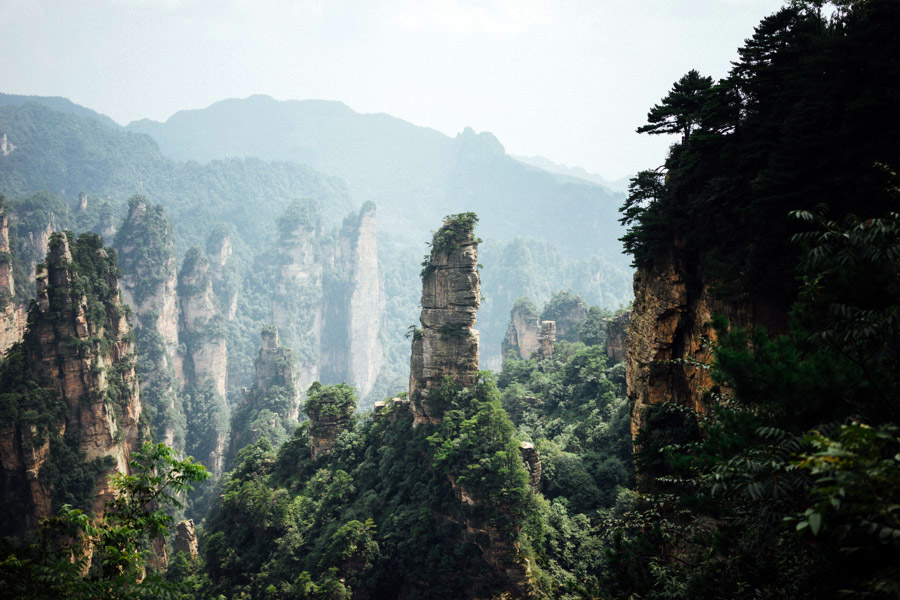
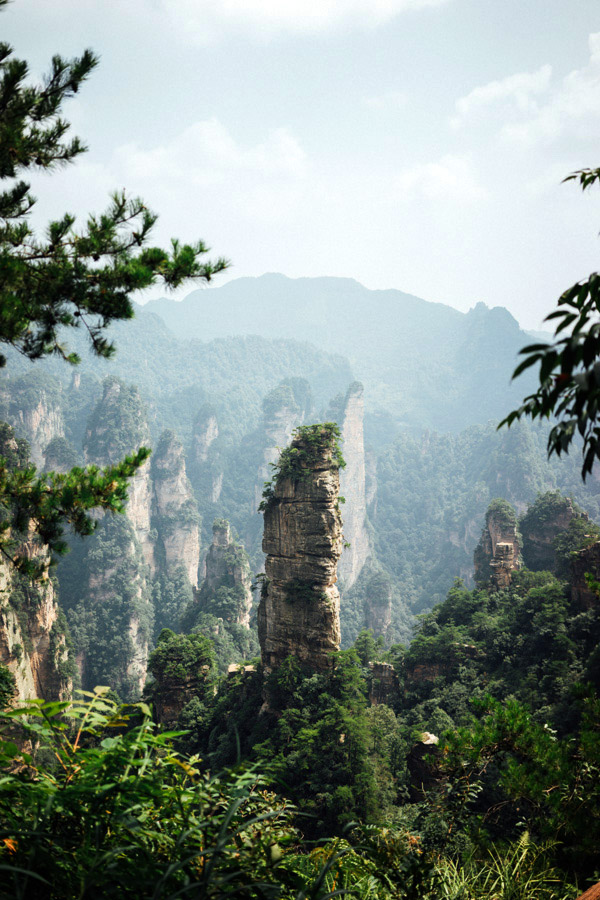
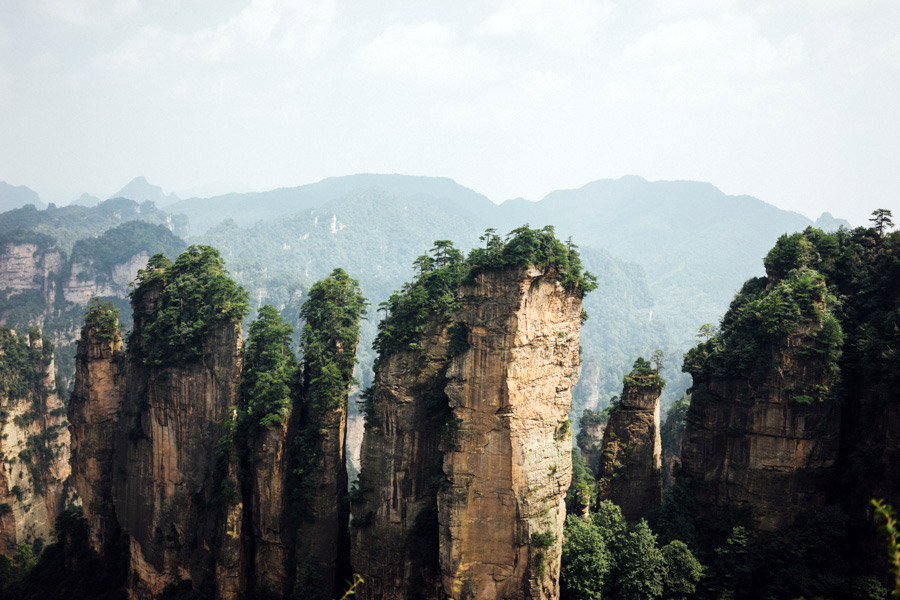
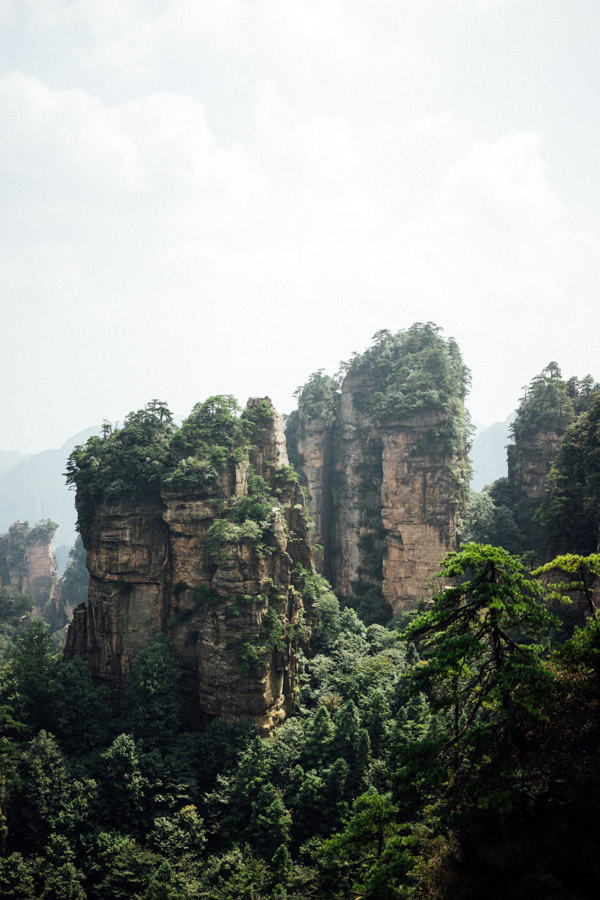
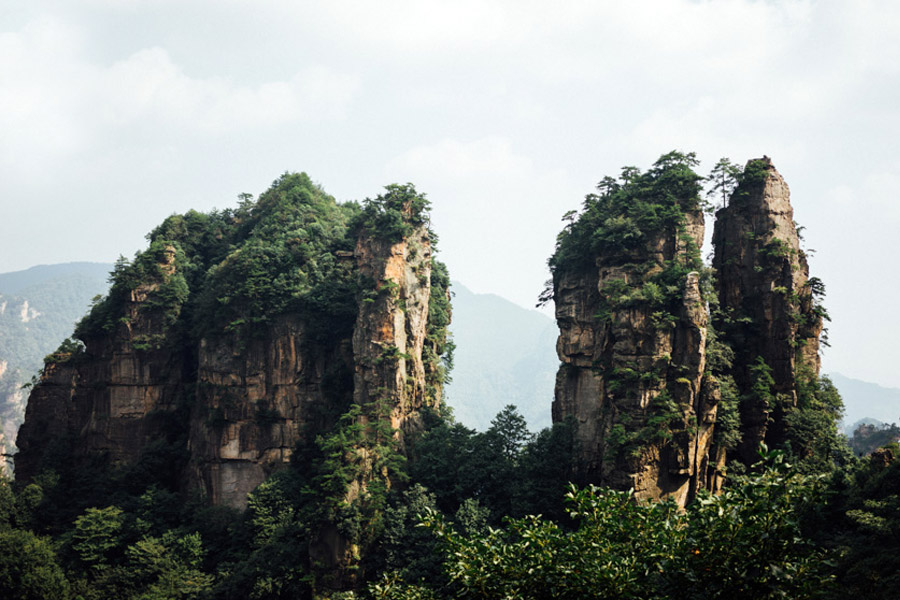
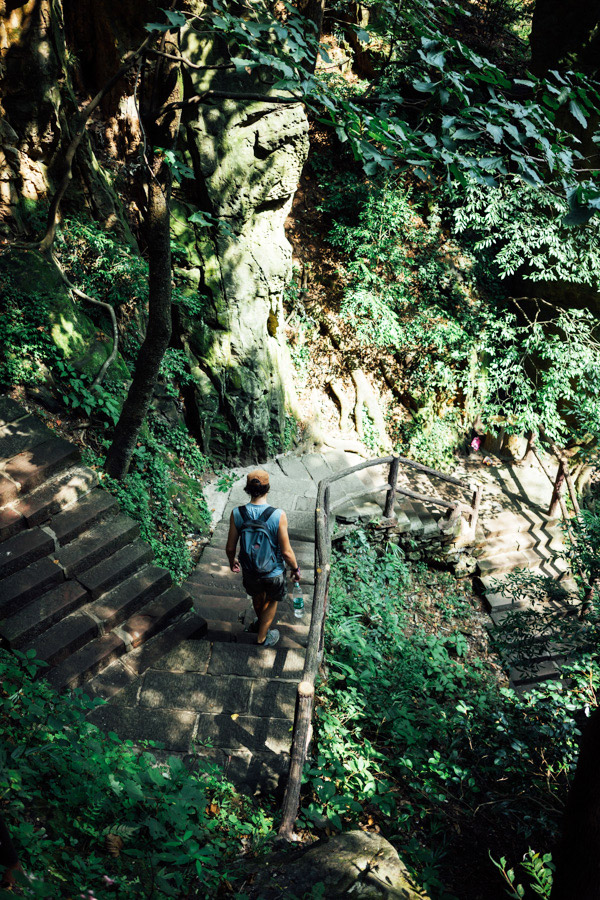
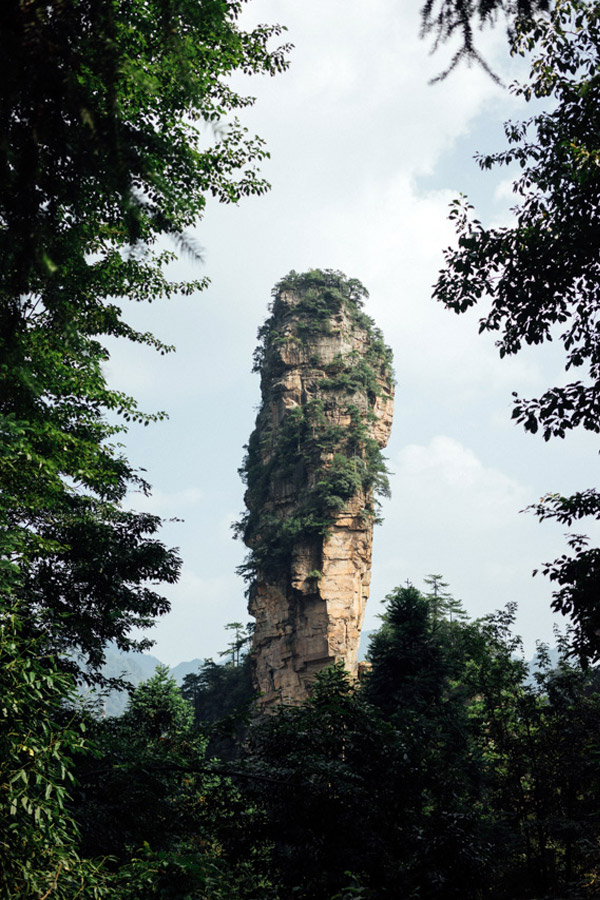
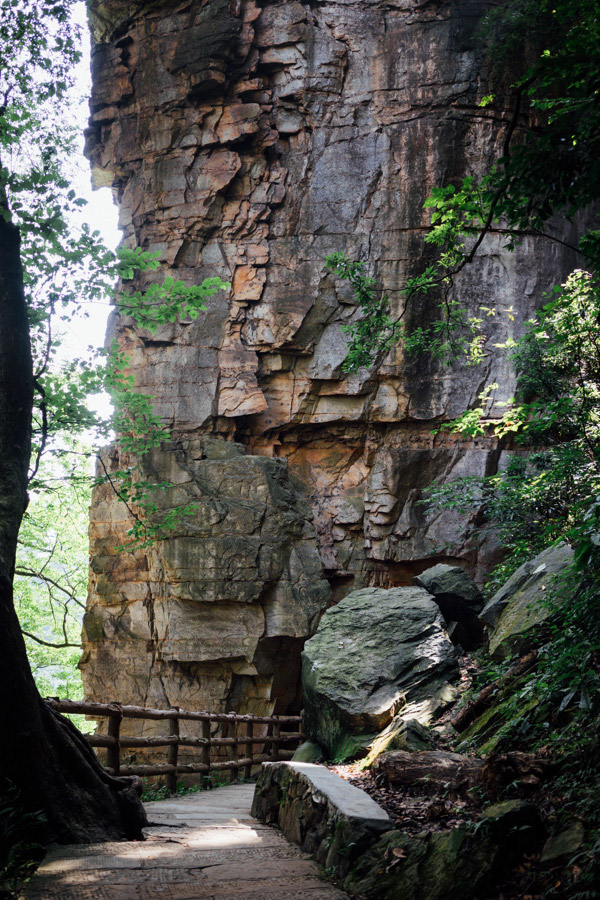
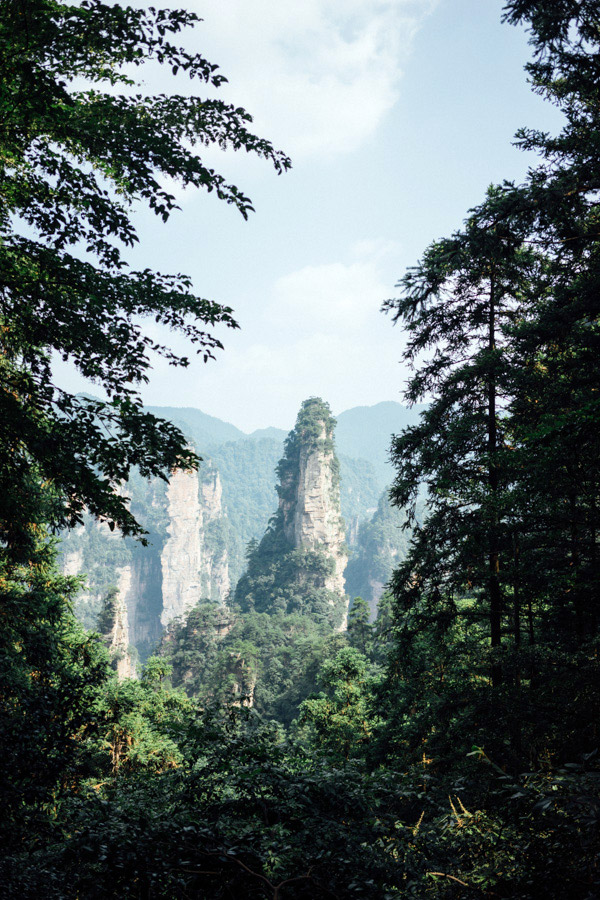
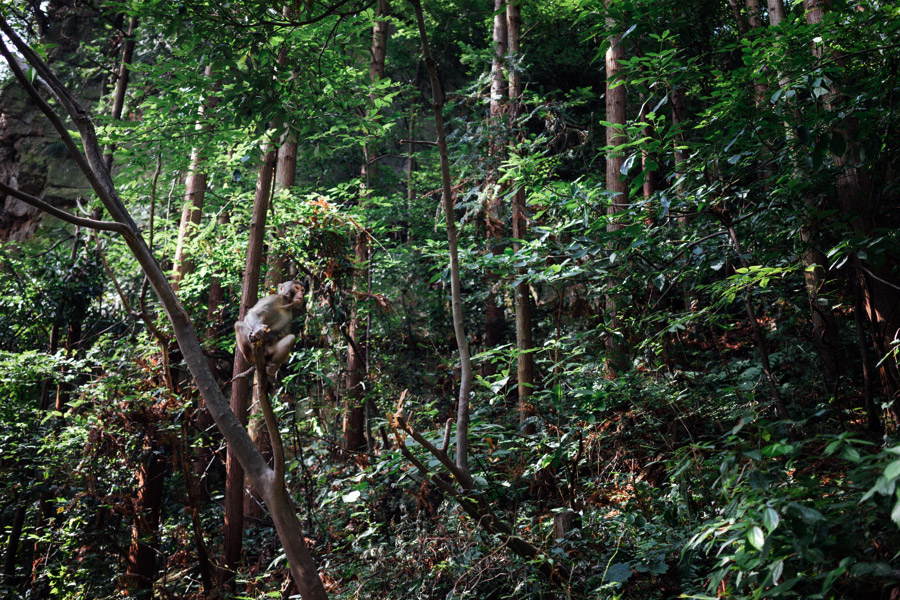
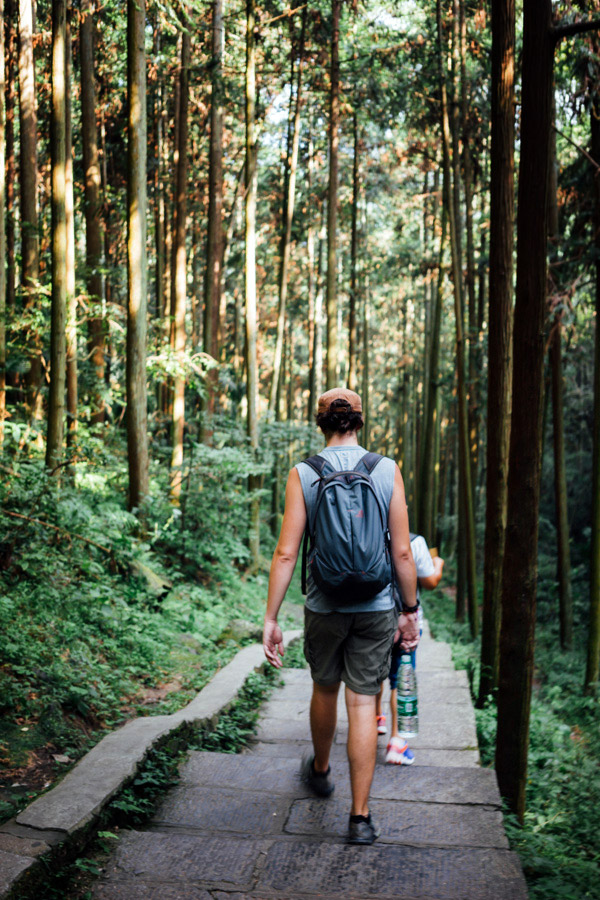
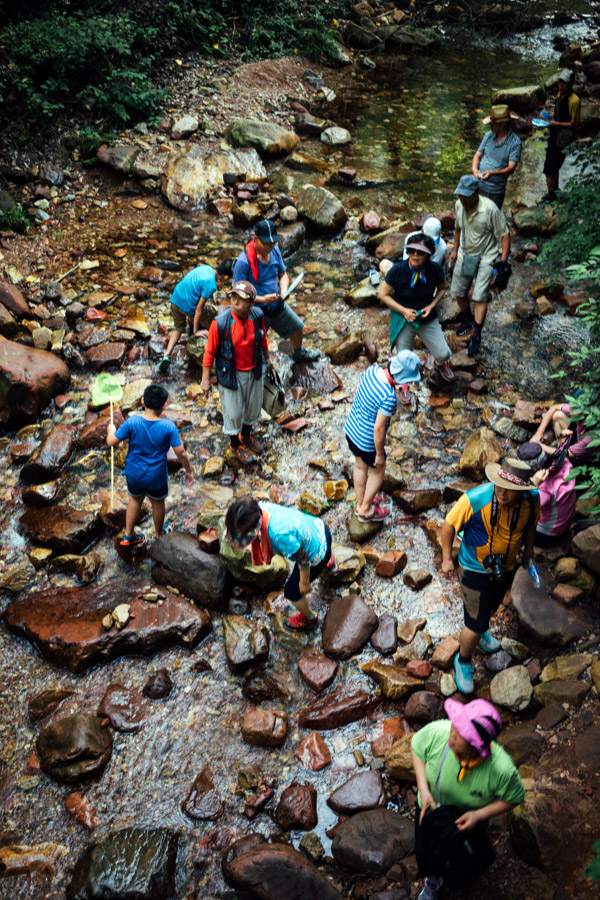
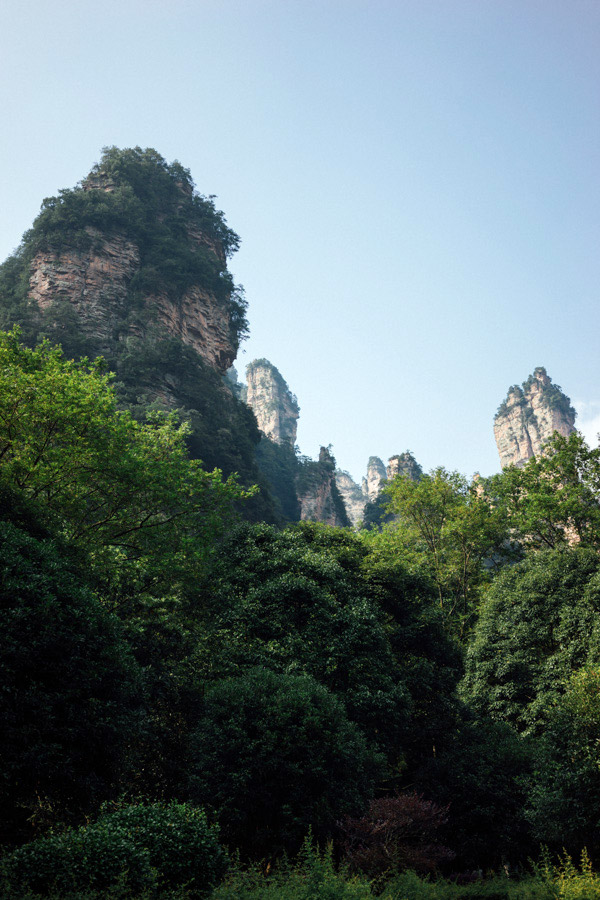
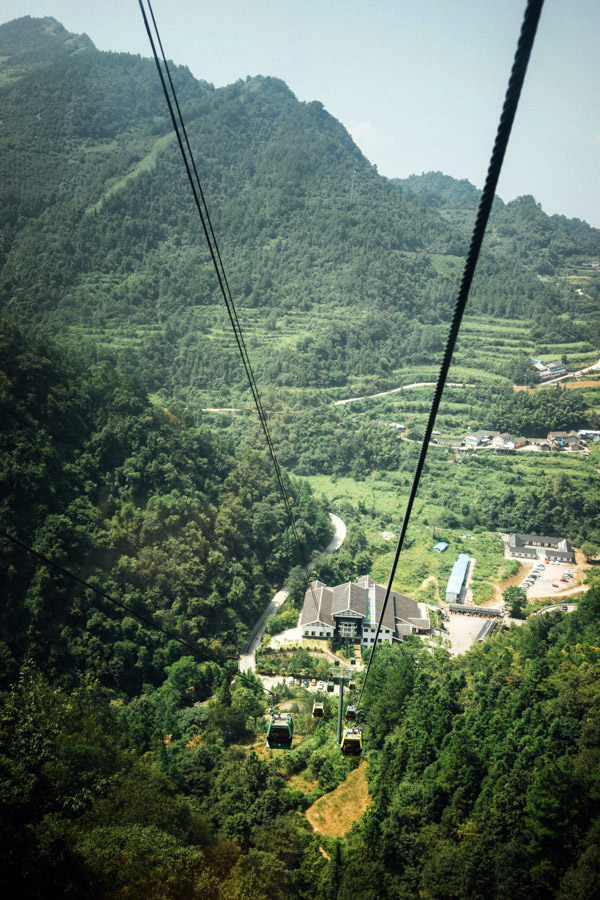
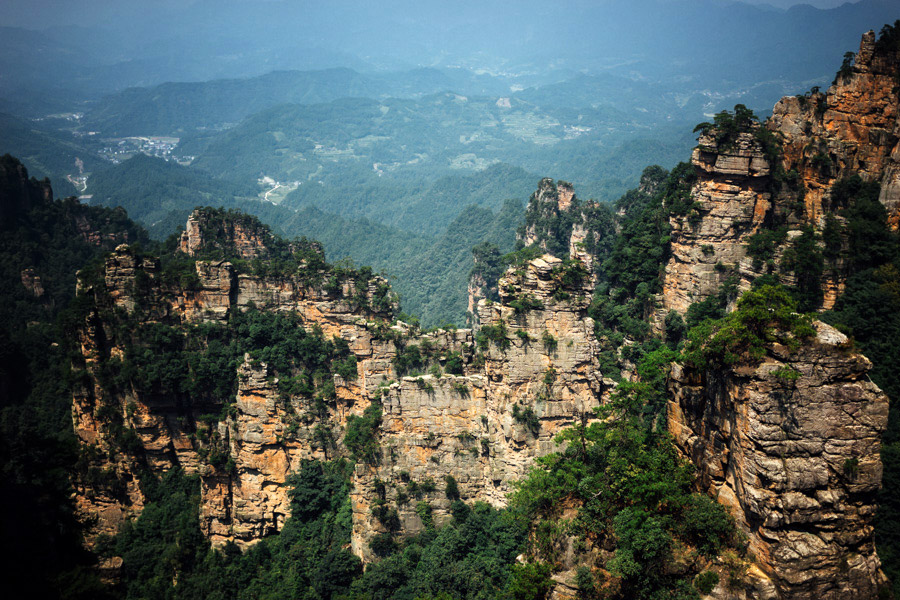
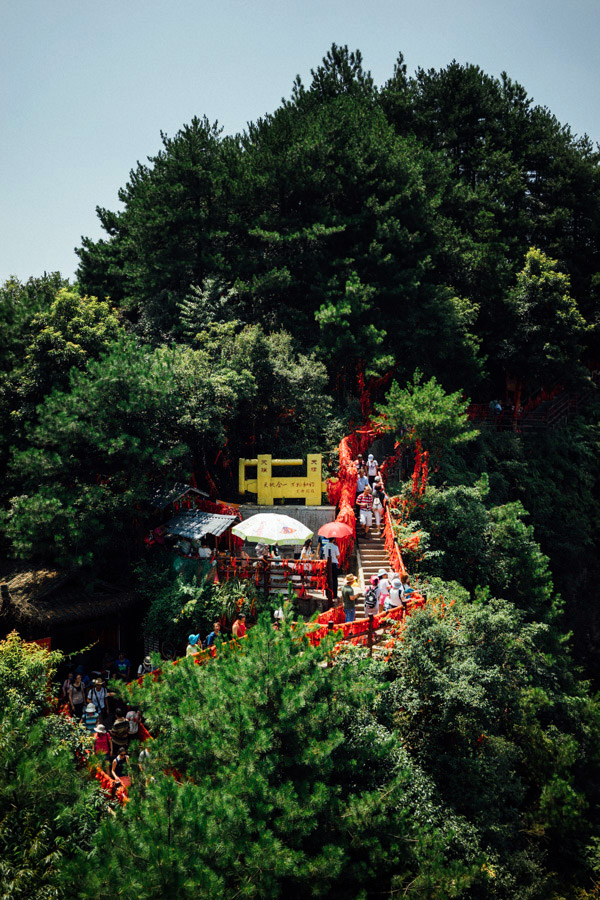
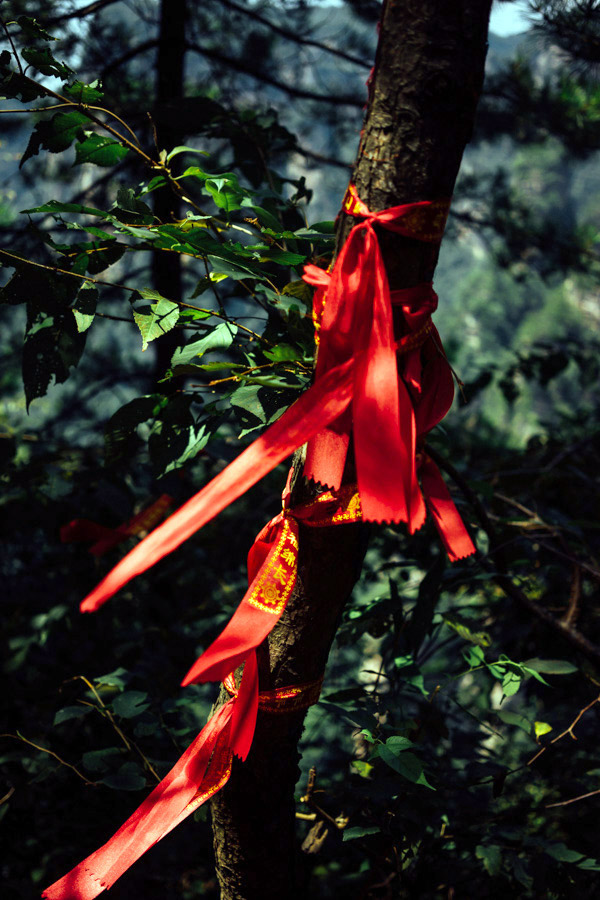
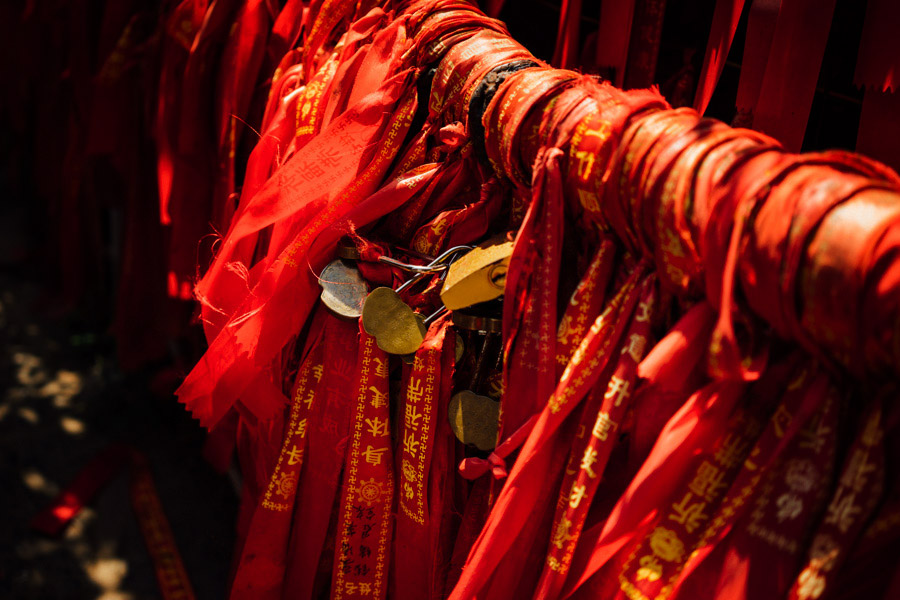
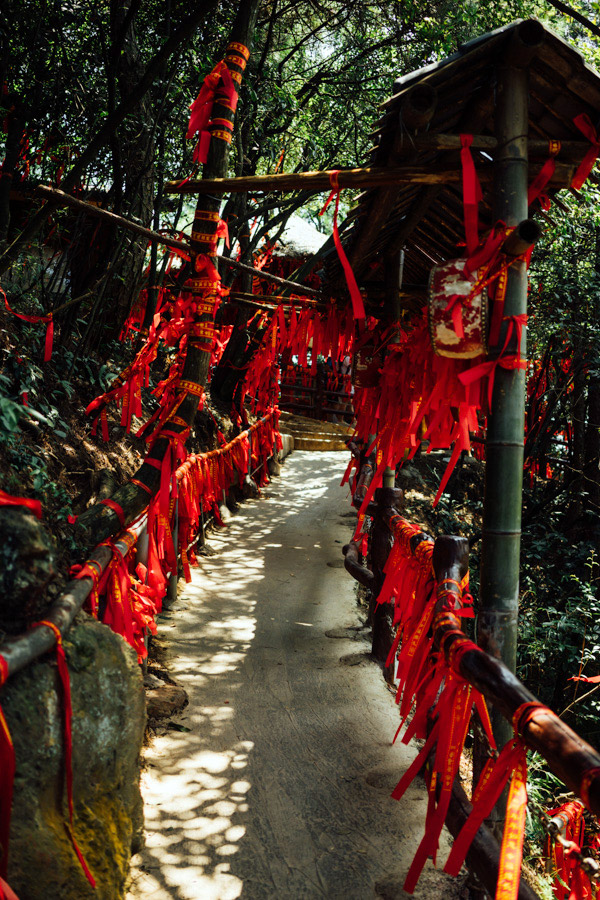
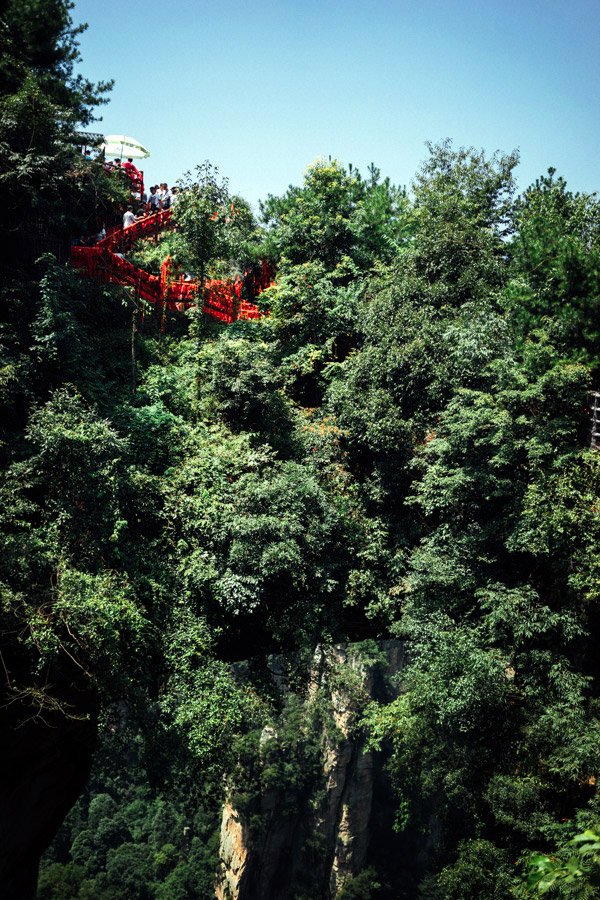
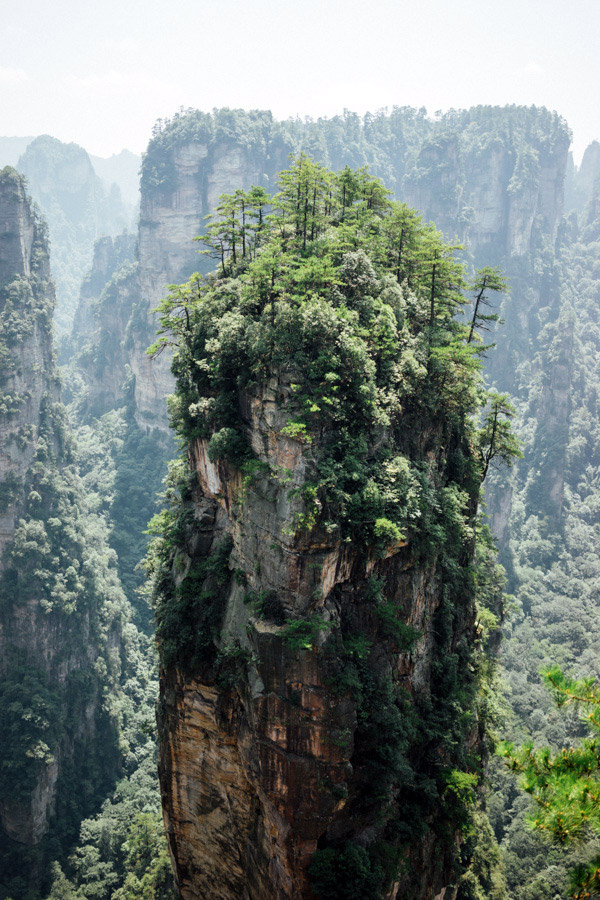
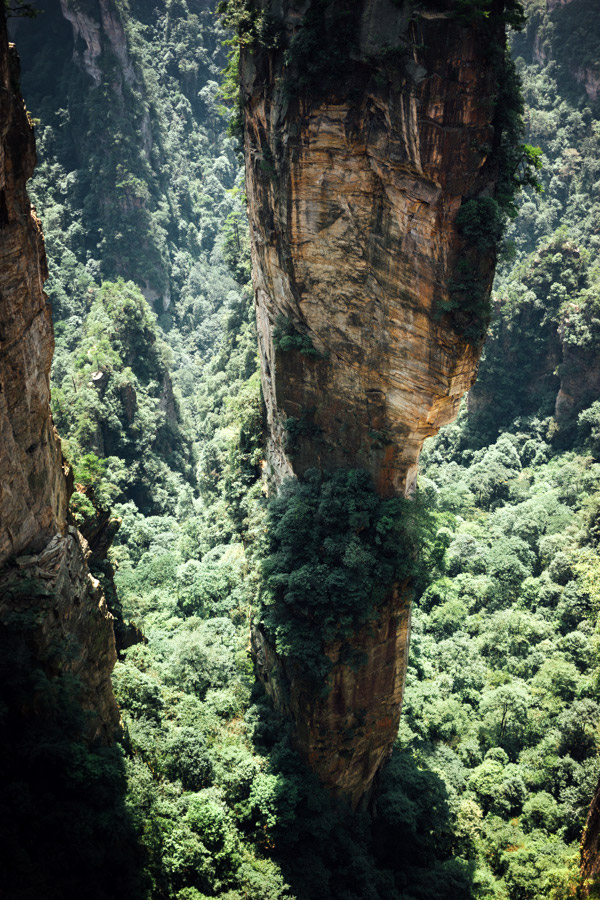
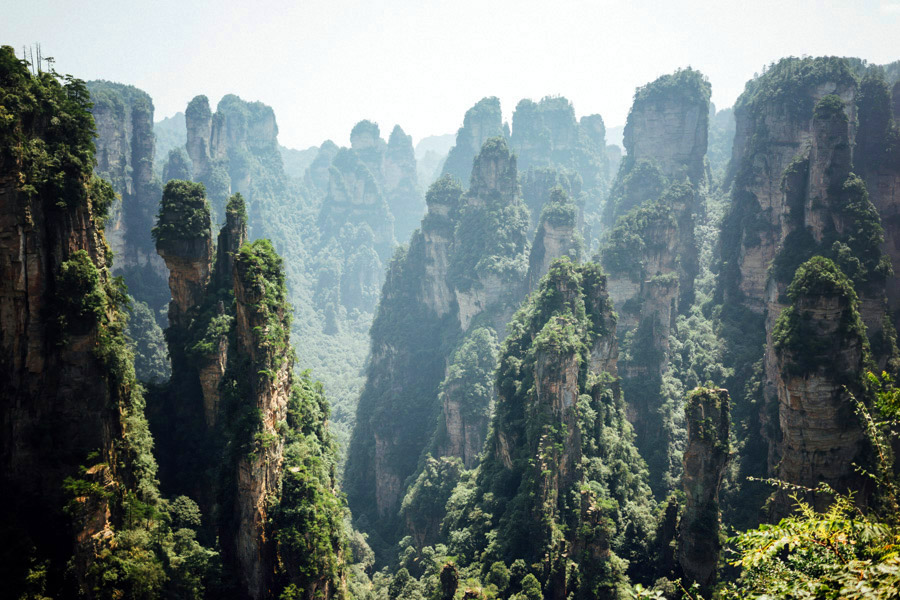
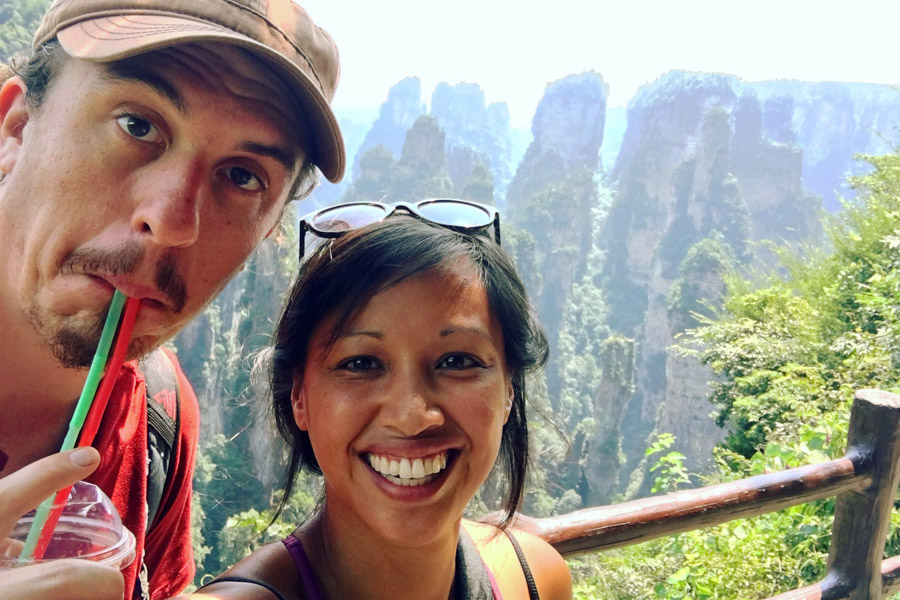
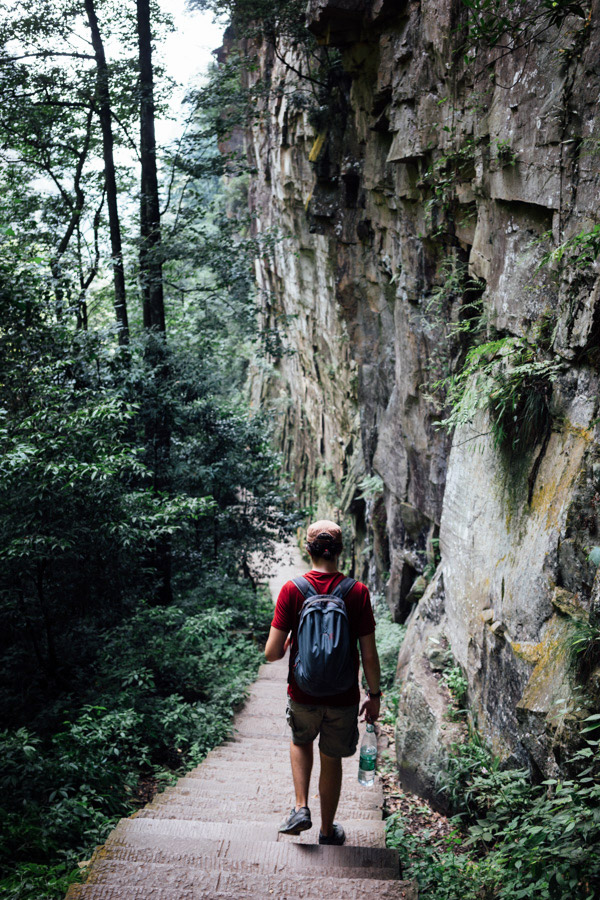
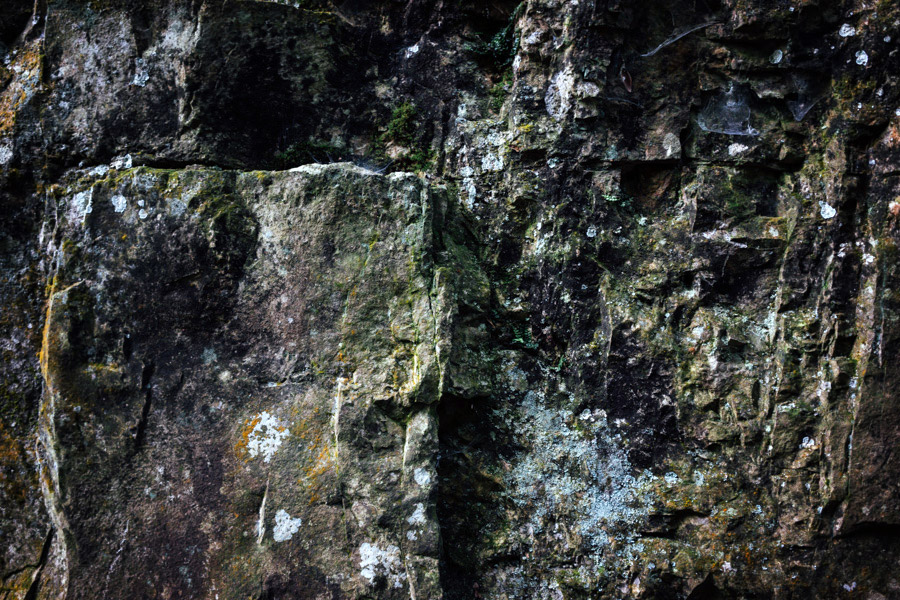
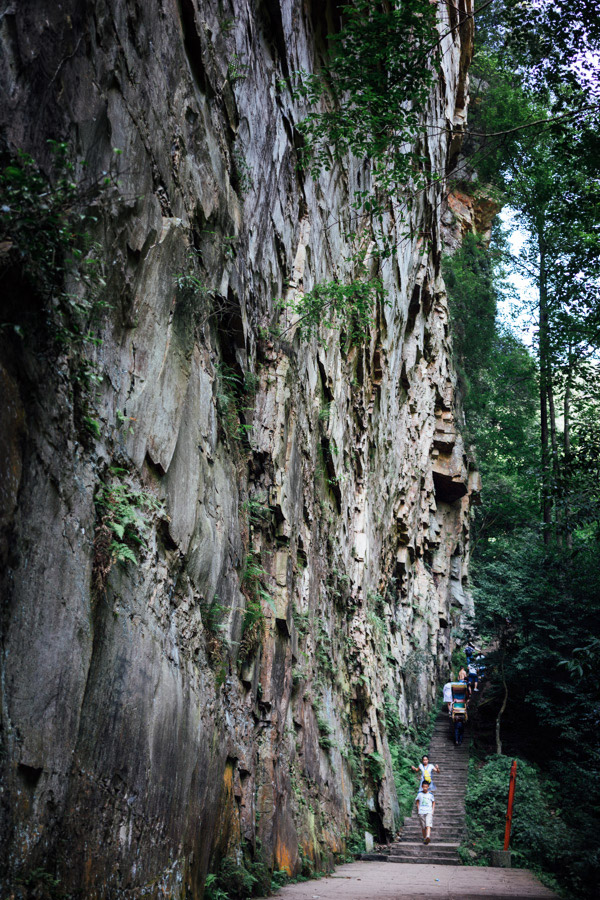
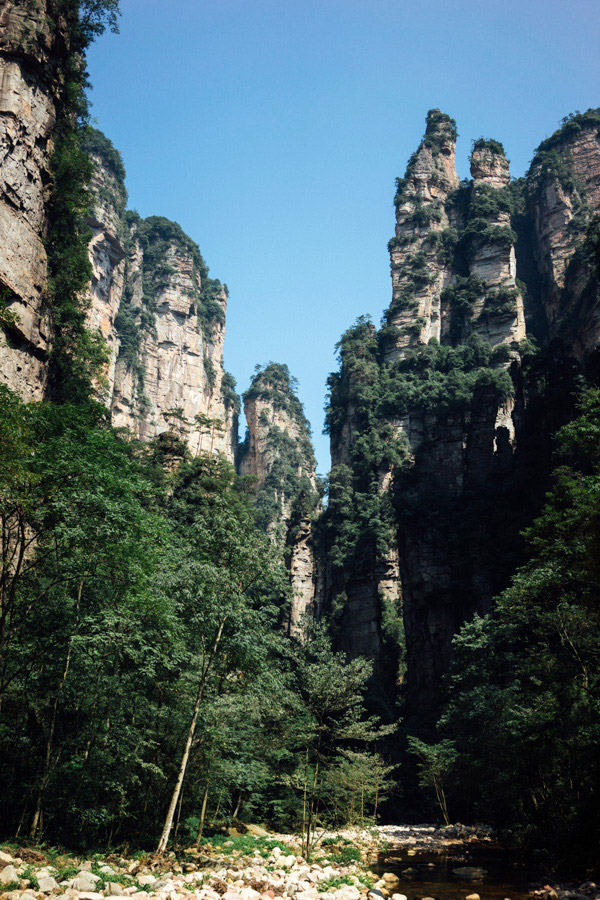
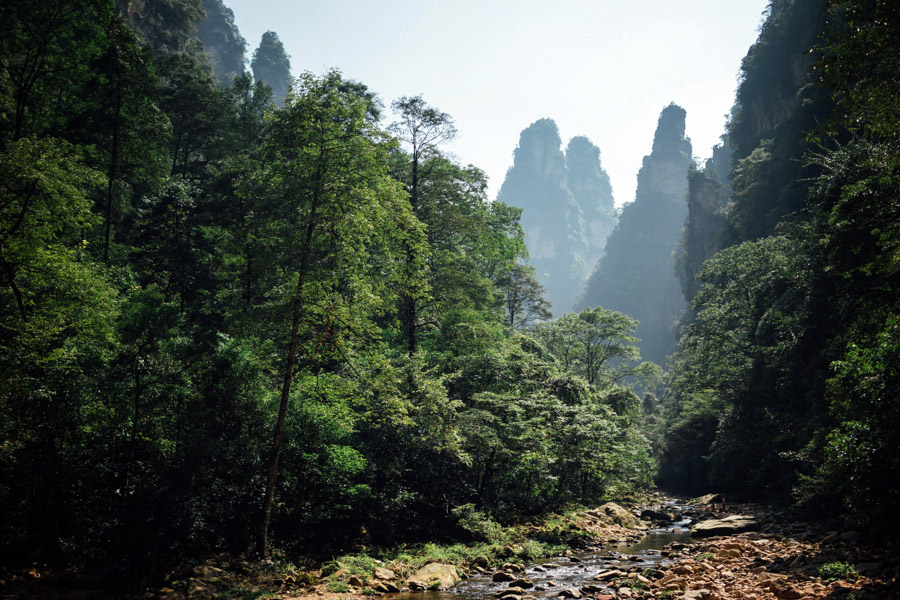
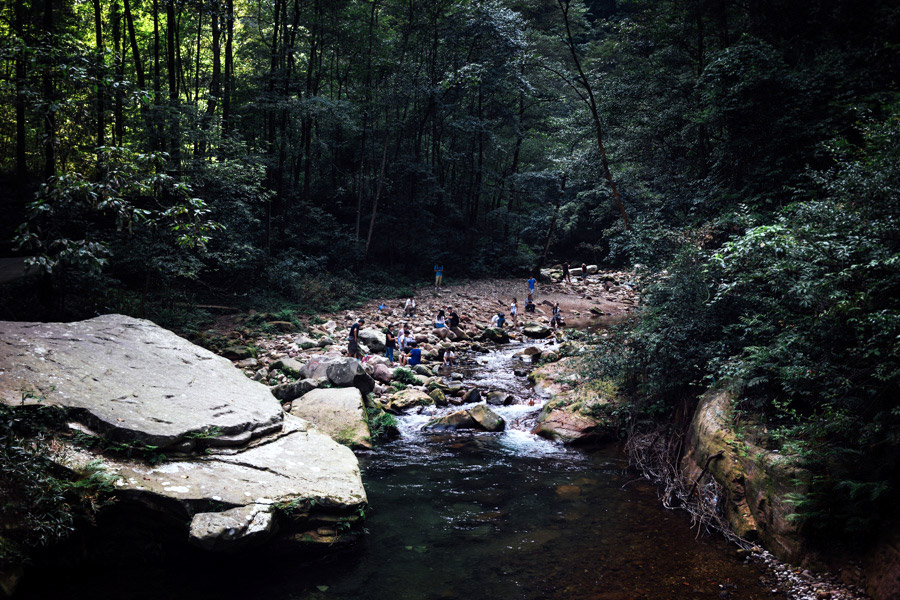
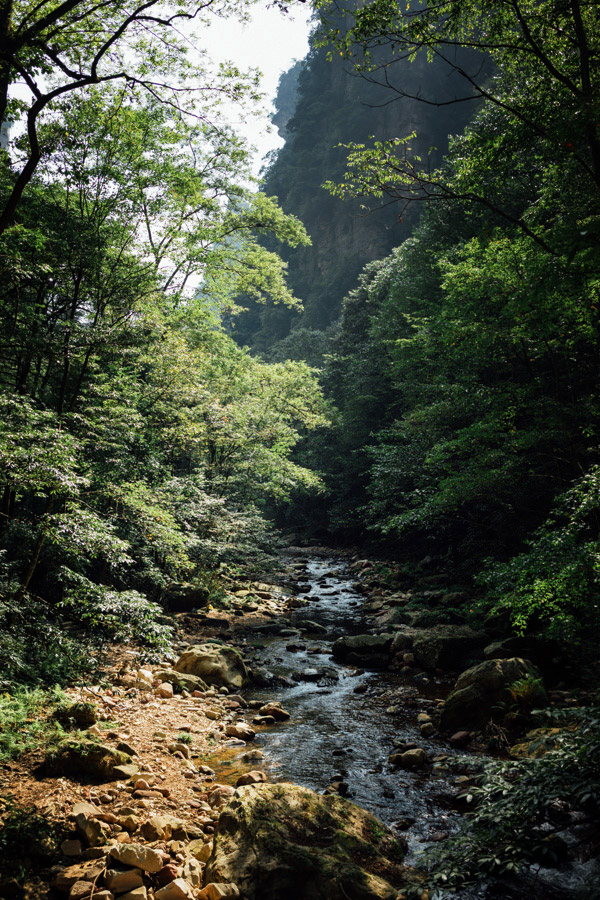
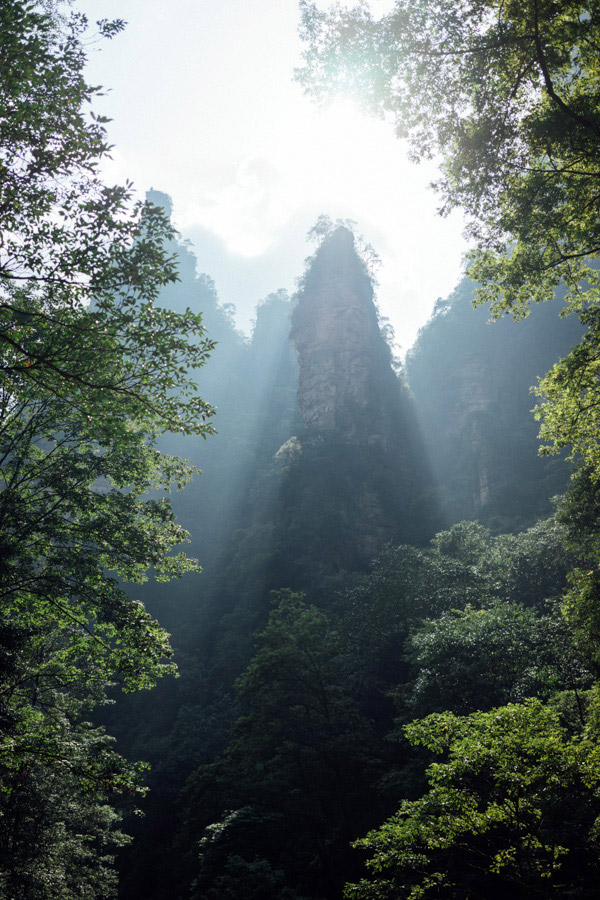
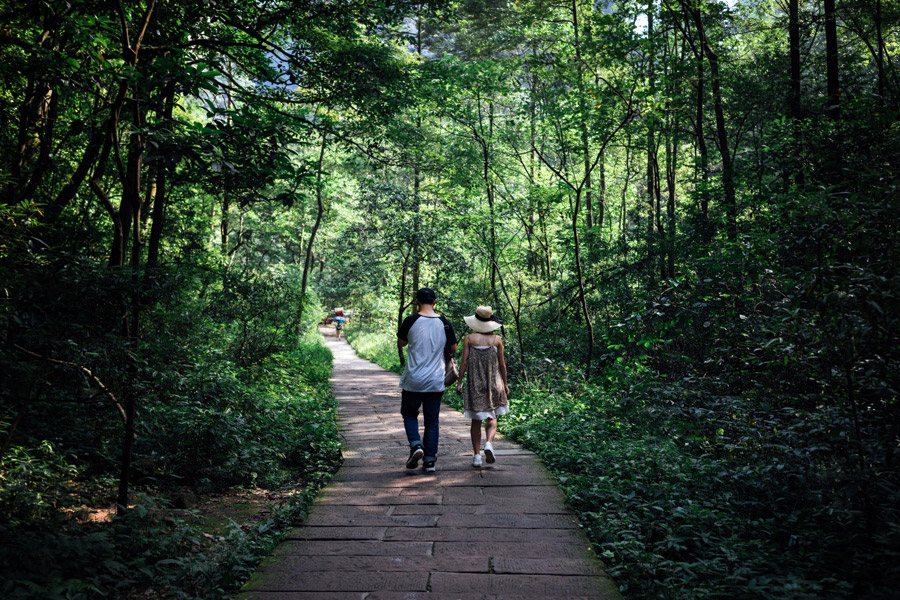
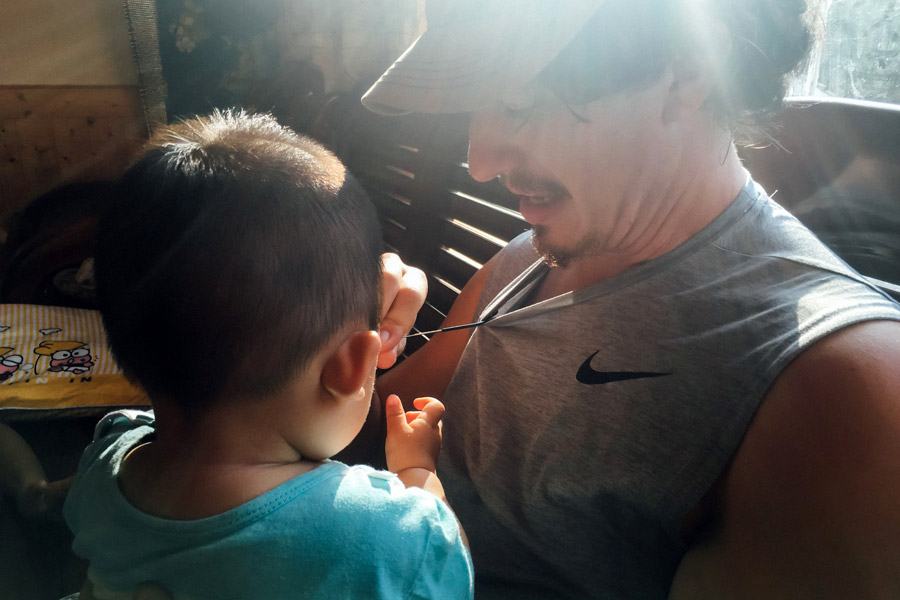
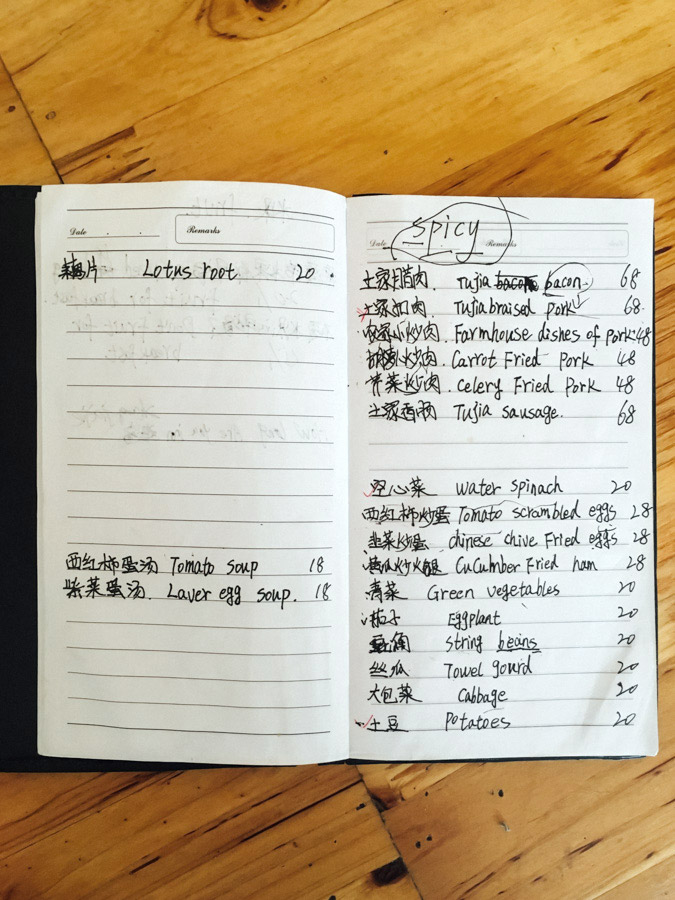
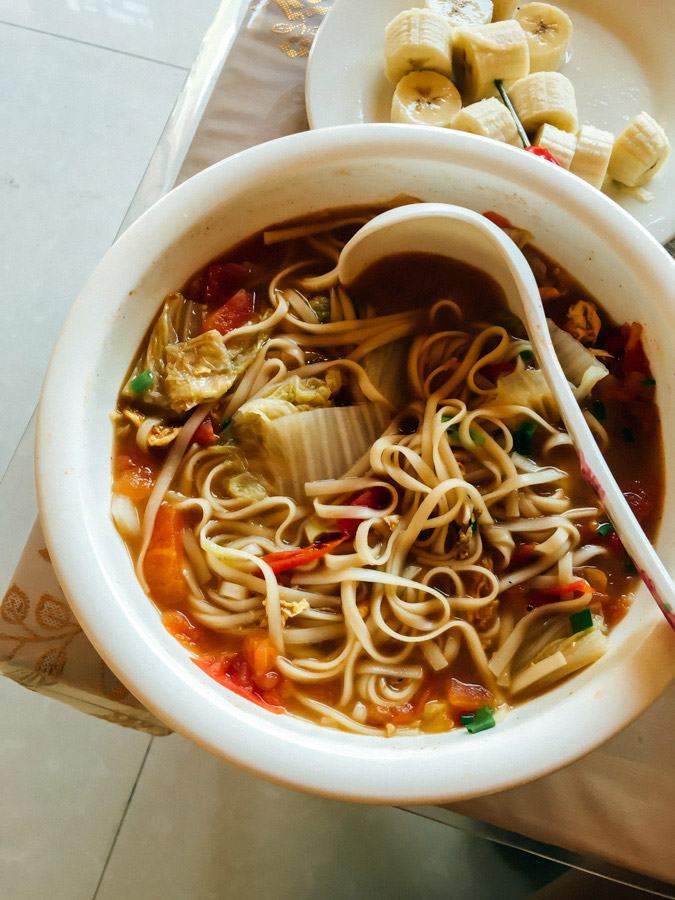
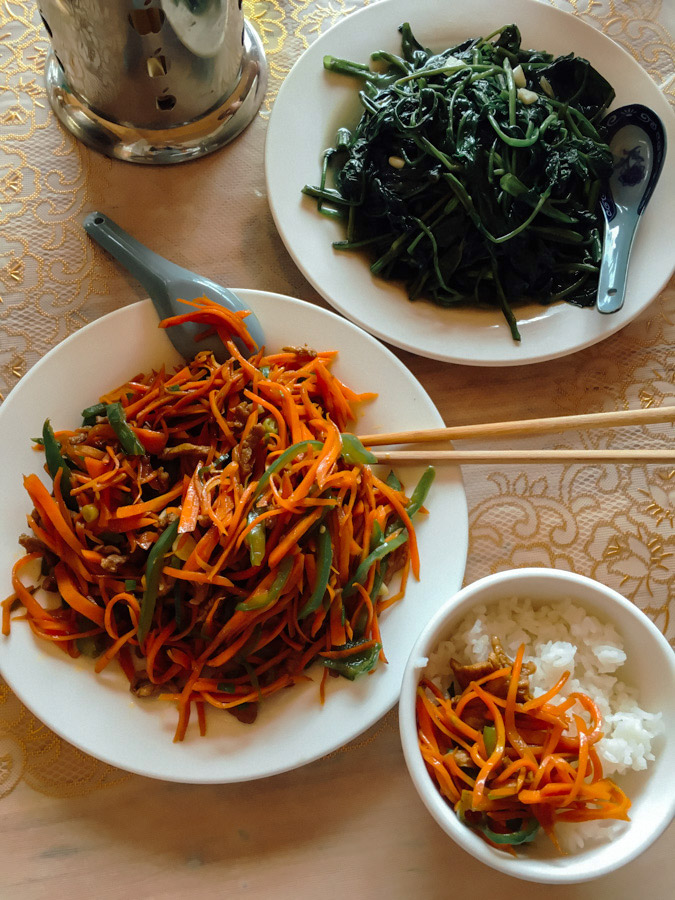
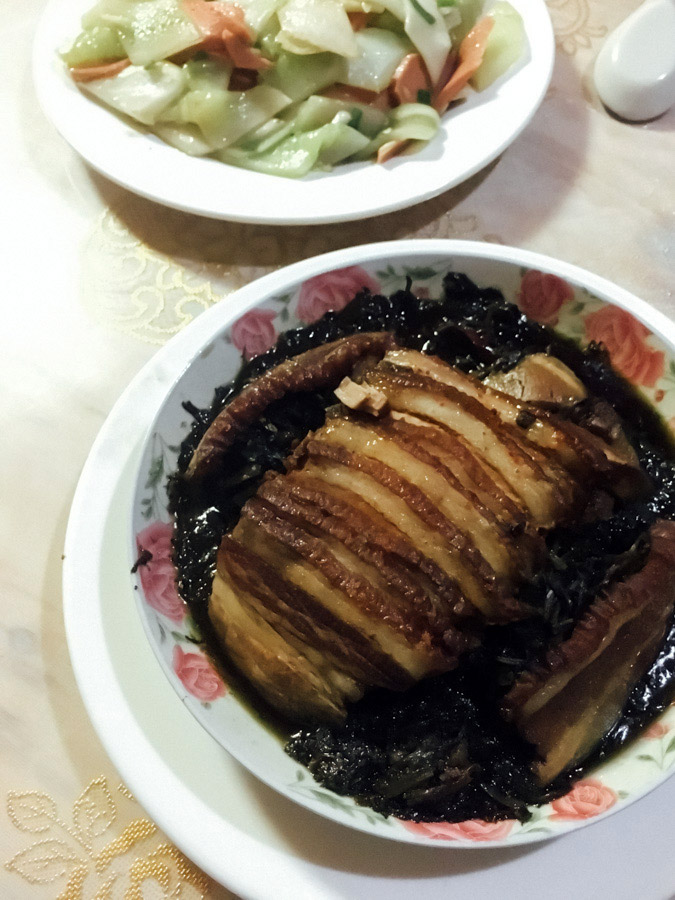
A long day of bus and train takes us to Shanghai, where we will do nothing for two days, waiting for our flight to Osaka. The People’s Republic of China exhausted us with ancient history, incredible sights, and strong character. We rest, catch up on photos, writing, and family back home. I somehow know I’ll be back, maybe without Madie, when work becomes reality again.
Links
- Although Hong Kong is actually part of China, it still has many exceptions for the traveler (in addition to a much different culture). Mainland China requires a $200 USD visa for all US and European (and more) citizens while Hong Kong does not. Make sure to check your nearest Chinese embassy.
- Our Hong Kong flight to Beijing was only 4 hours and around $150 USD. You can directly ferry into China from HK (but we had little to do in this part of the country).
- Beijing is full of incredible things to visit and is well connected via subway (thanks to the Olympic Games, we were told), but it is a really large city. We’d specifically recommend staying in the Dongcheng area on a hutong, the district with the Tiananmen Square, Forbidden City, Temple of Heaven, and more.
- The Great Wall is unmissable. Many day tours are available and will take you to different sections. We were recommended to go to Jinshanling for a three-hour hike on the wall, with fewer tourists than other areas.
- The bullet train took us from Beijing to Xi’an in less than five hours. Just make sure you get to the train station at least an hour early.
- Xi’an is the home of the Terracotta Army and a few other sights. You do not need a tour to get there, public buses get there fast and you can easily find a certified English speaking guide at the entrance.
- A cheap hour-long flight took us to Zhangjiajie. The town is actually quite far from the park, so we stayed at one of the lesser frequented entrances of the park, Yangjiajie on the Western part. We stayed at the Yangjiajie Inn.
- We managed to get to Shanghai by bus and train in one day, while not obvious to sort out, we had plenty of time to transfer via Changsha.
